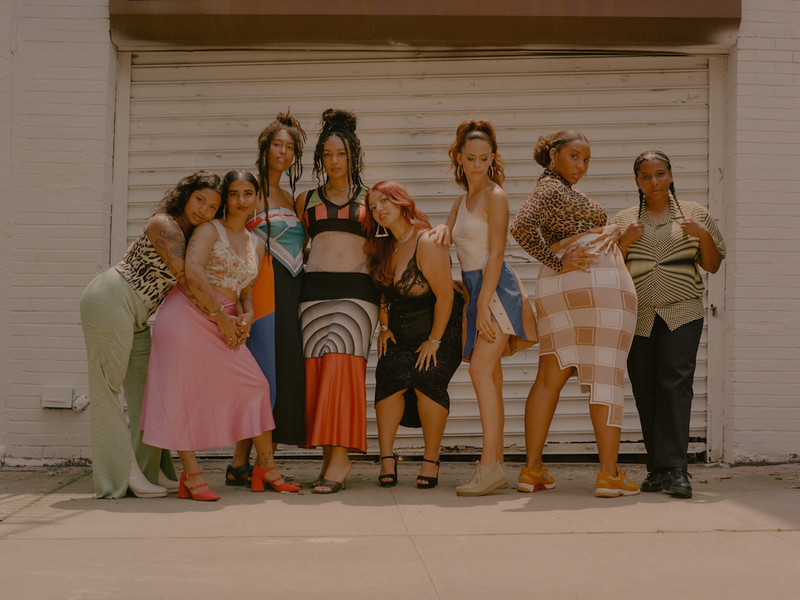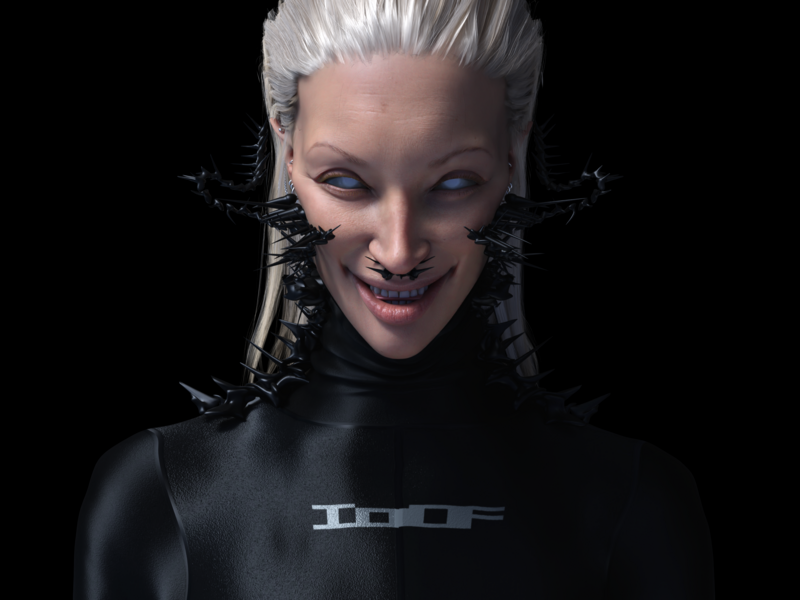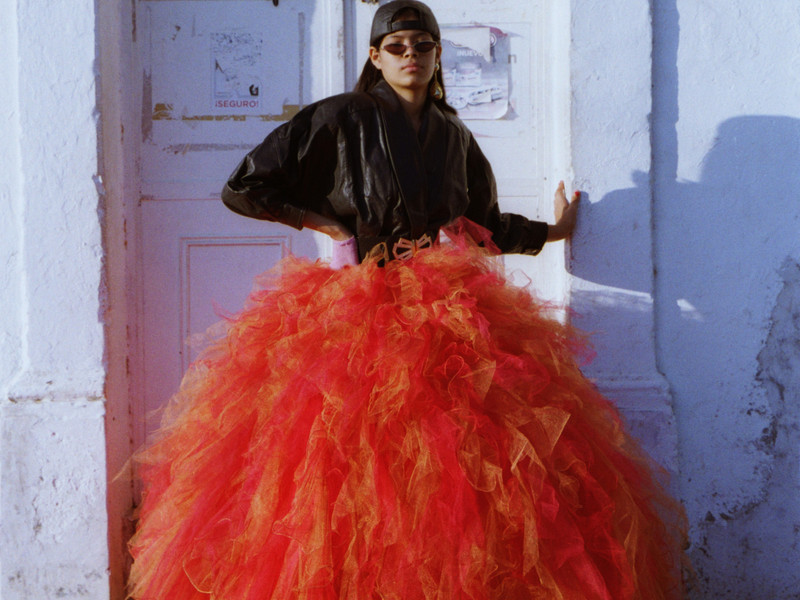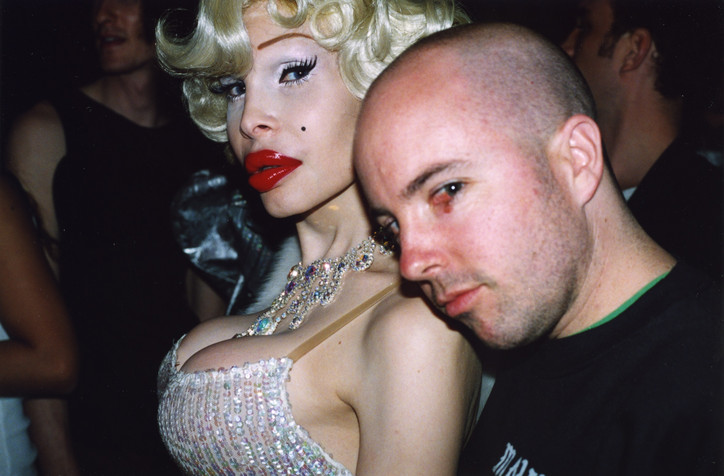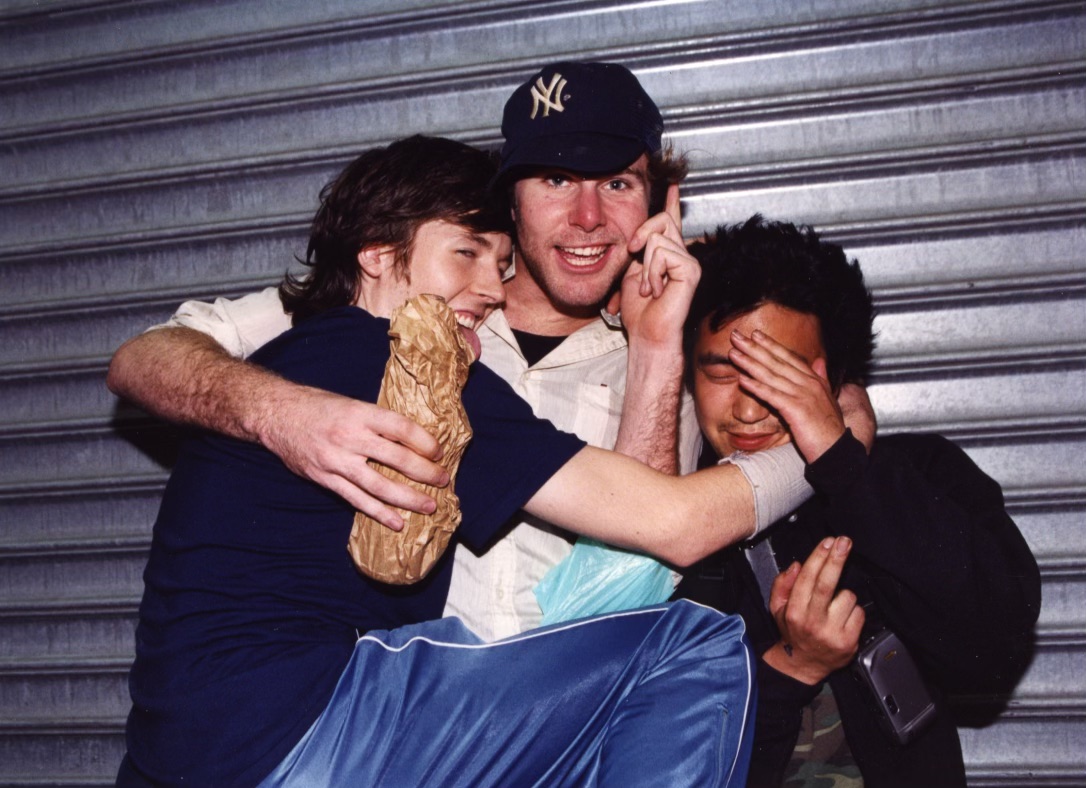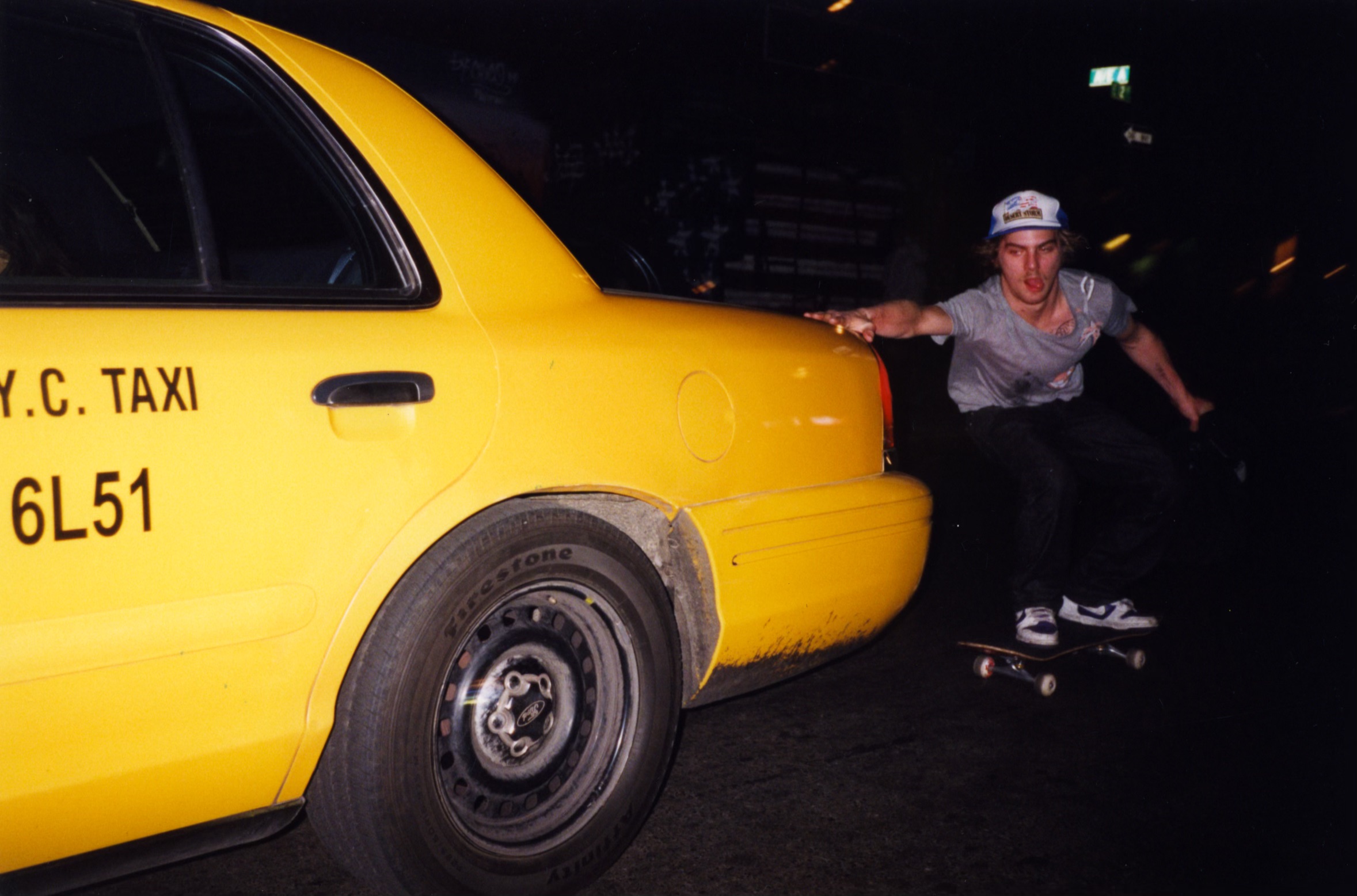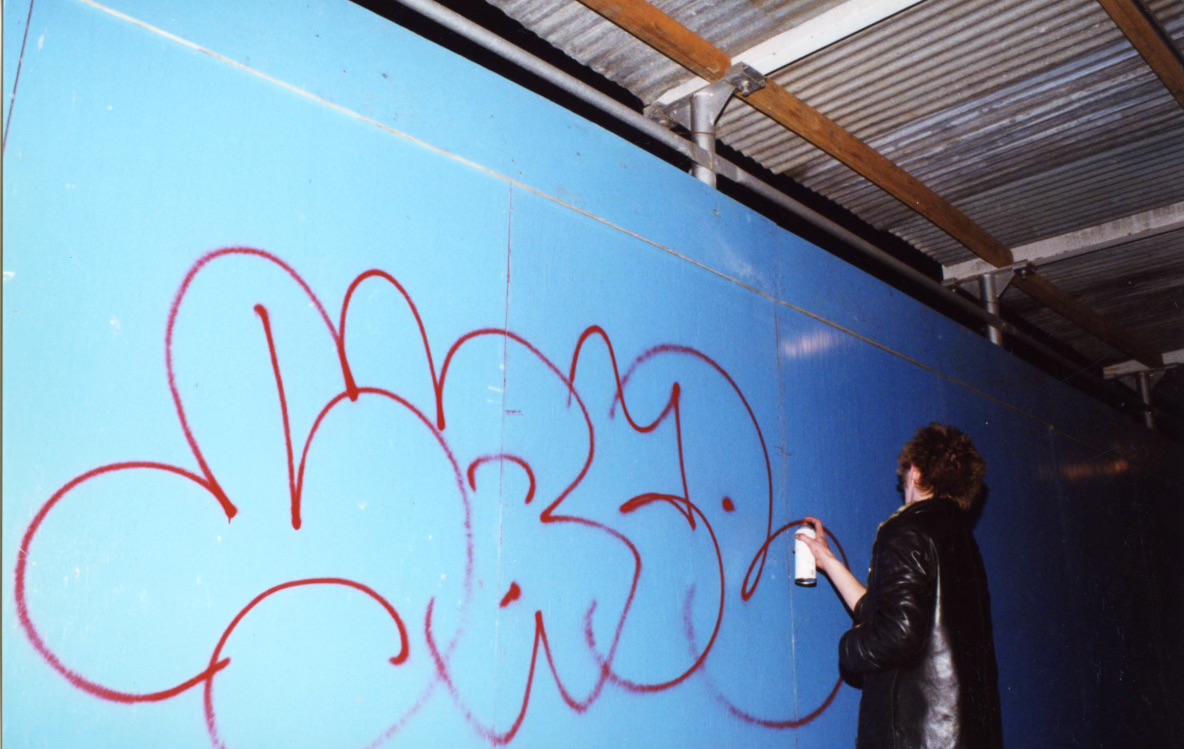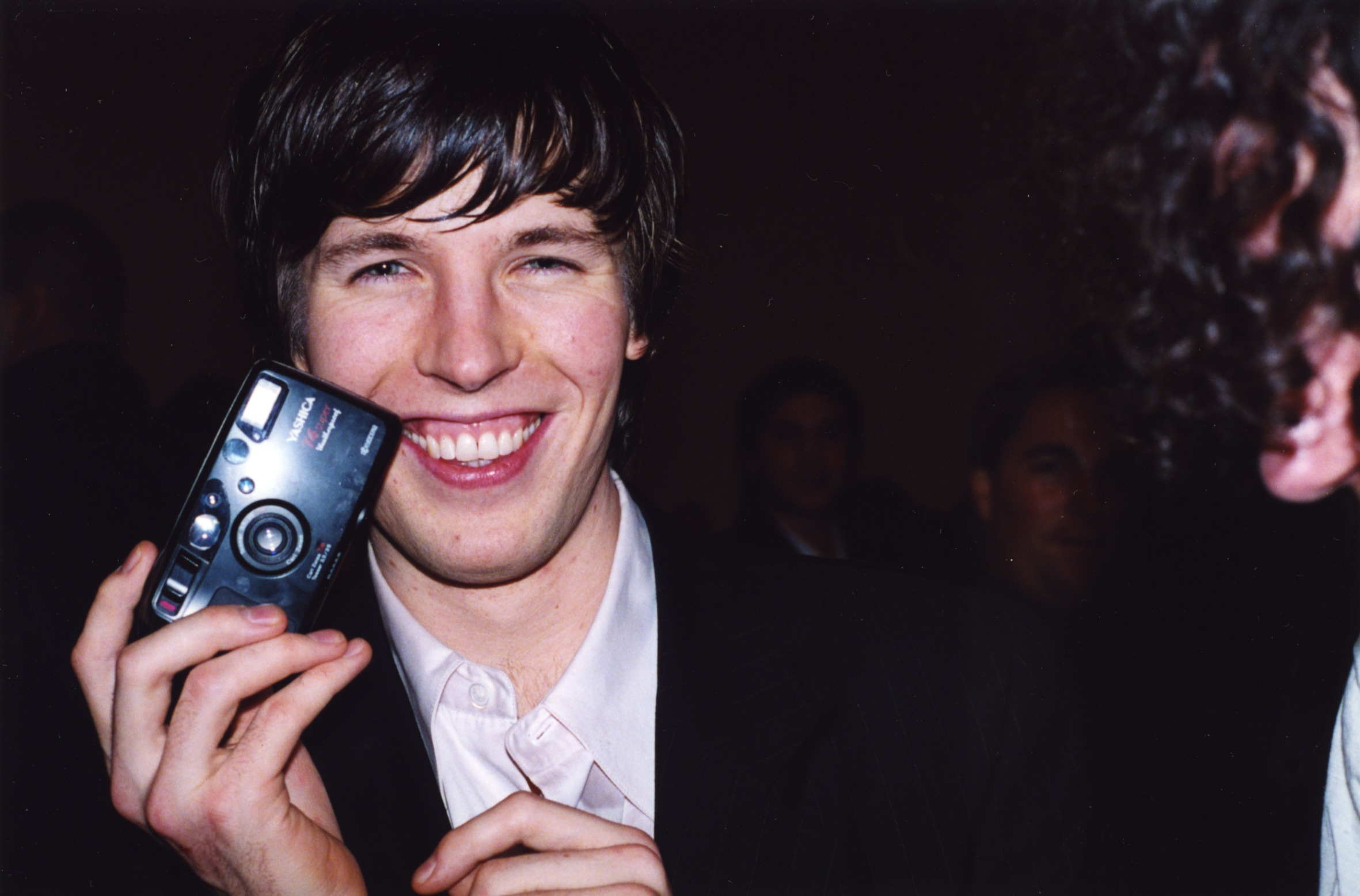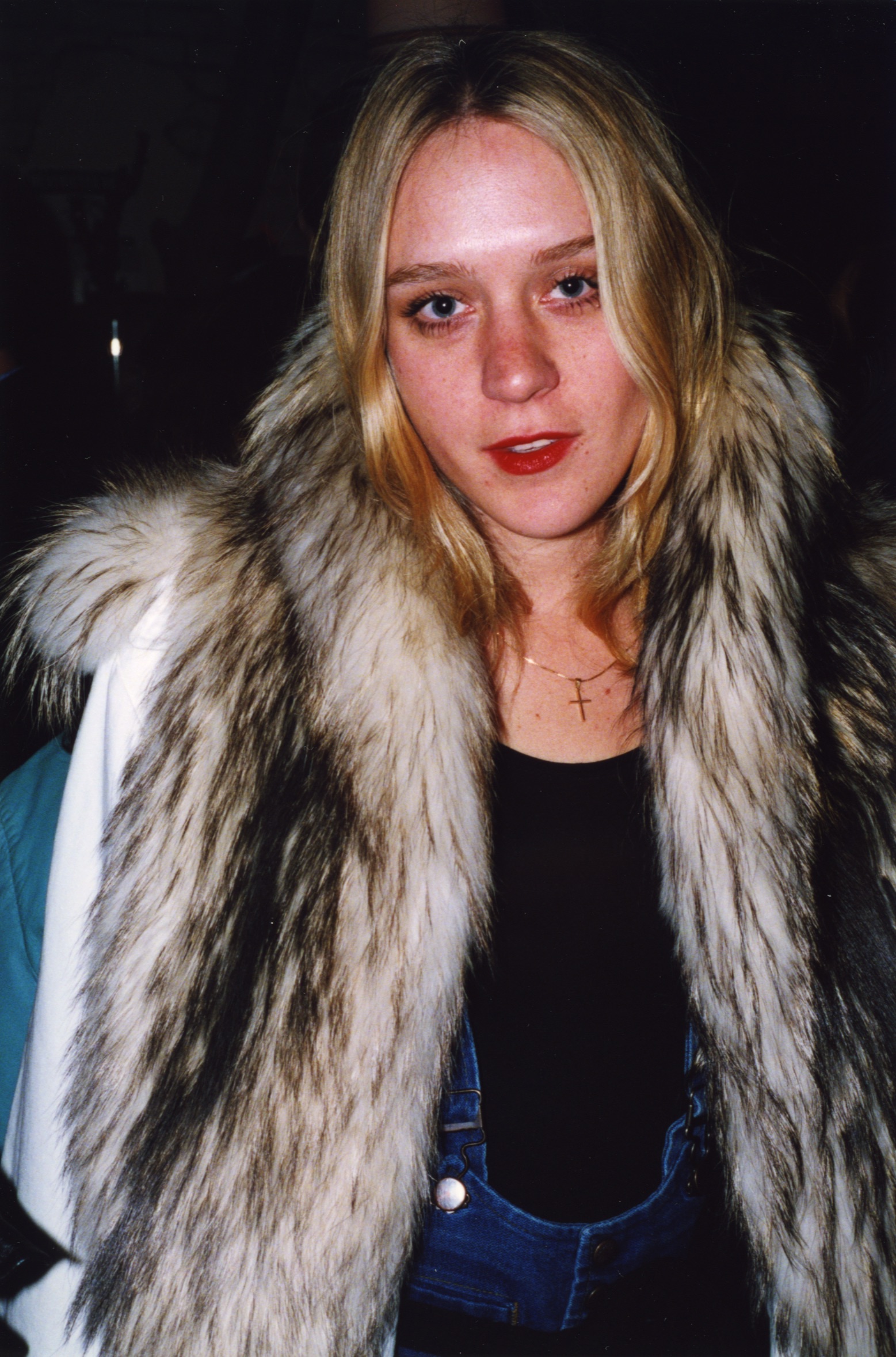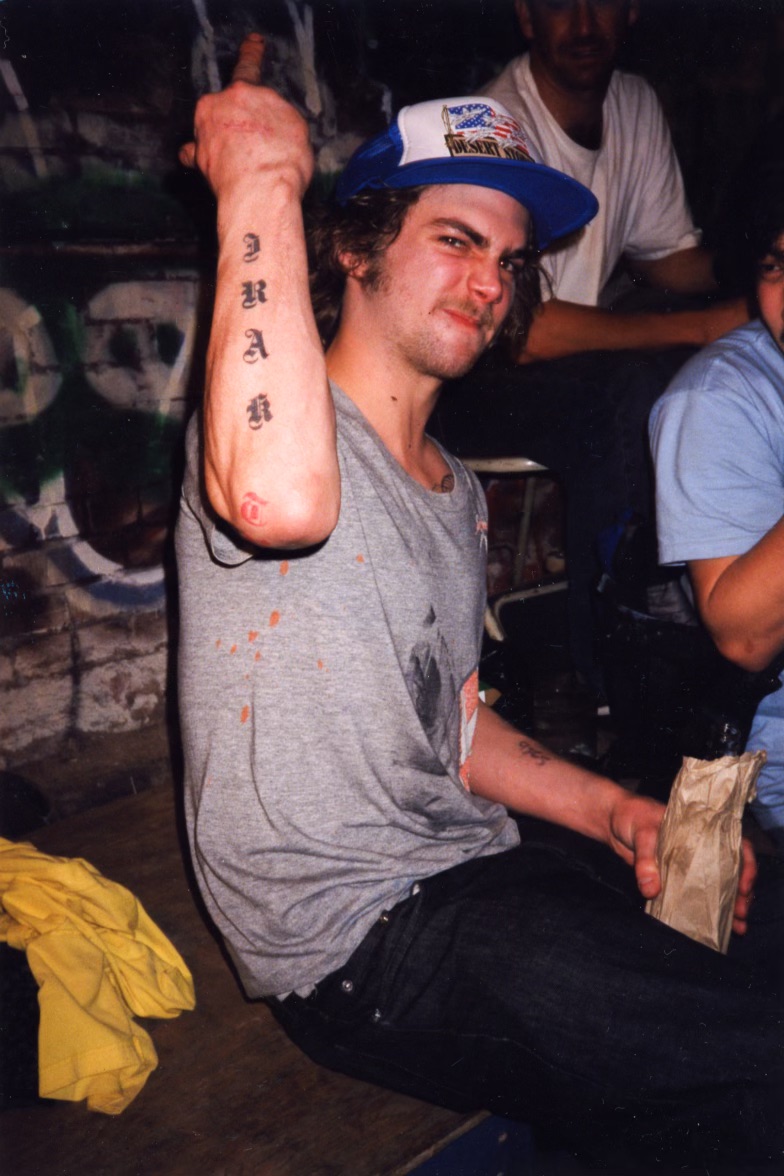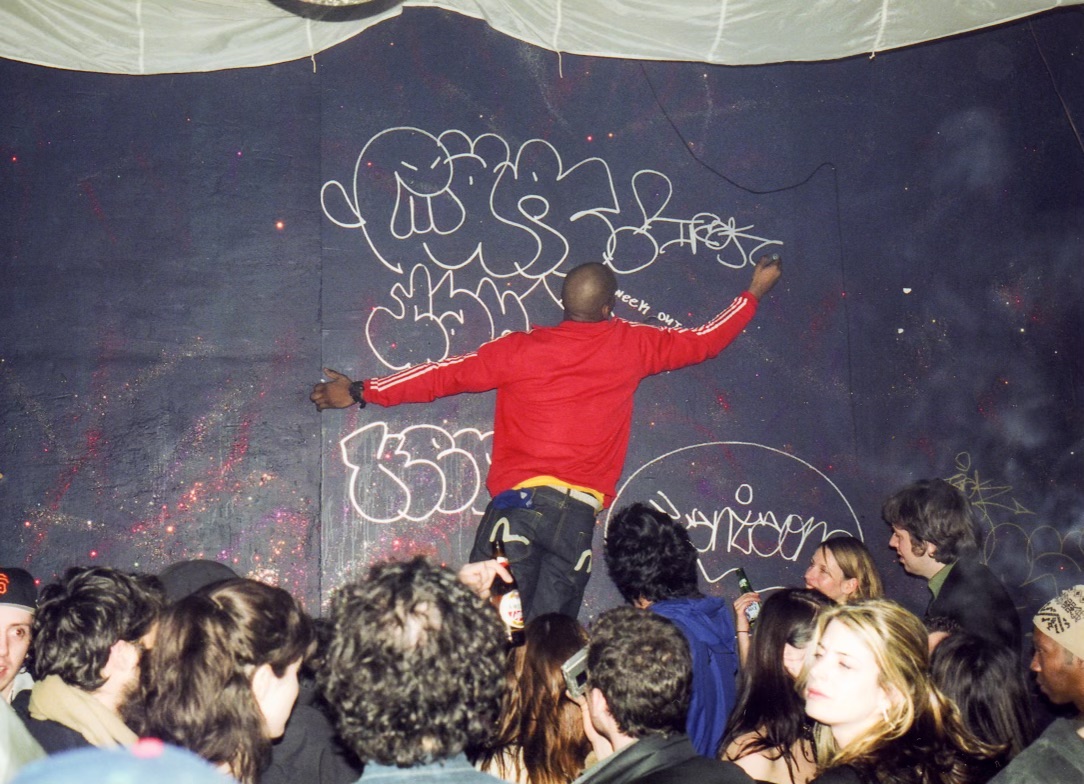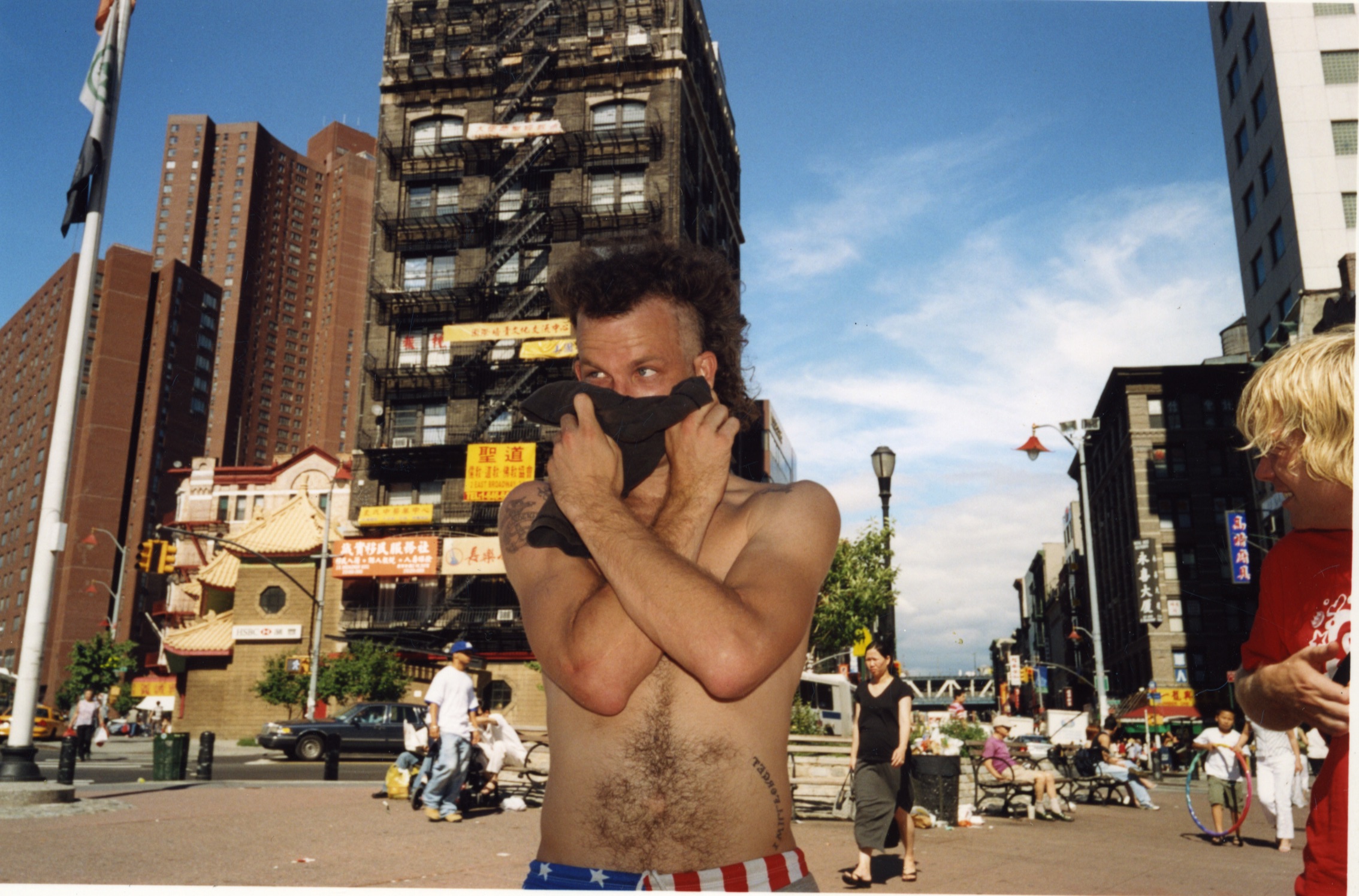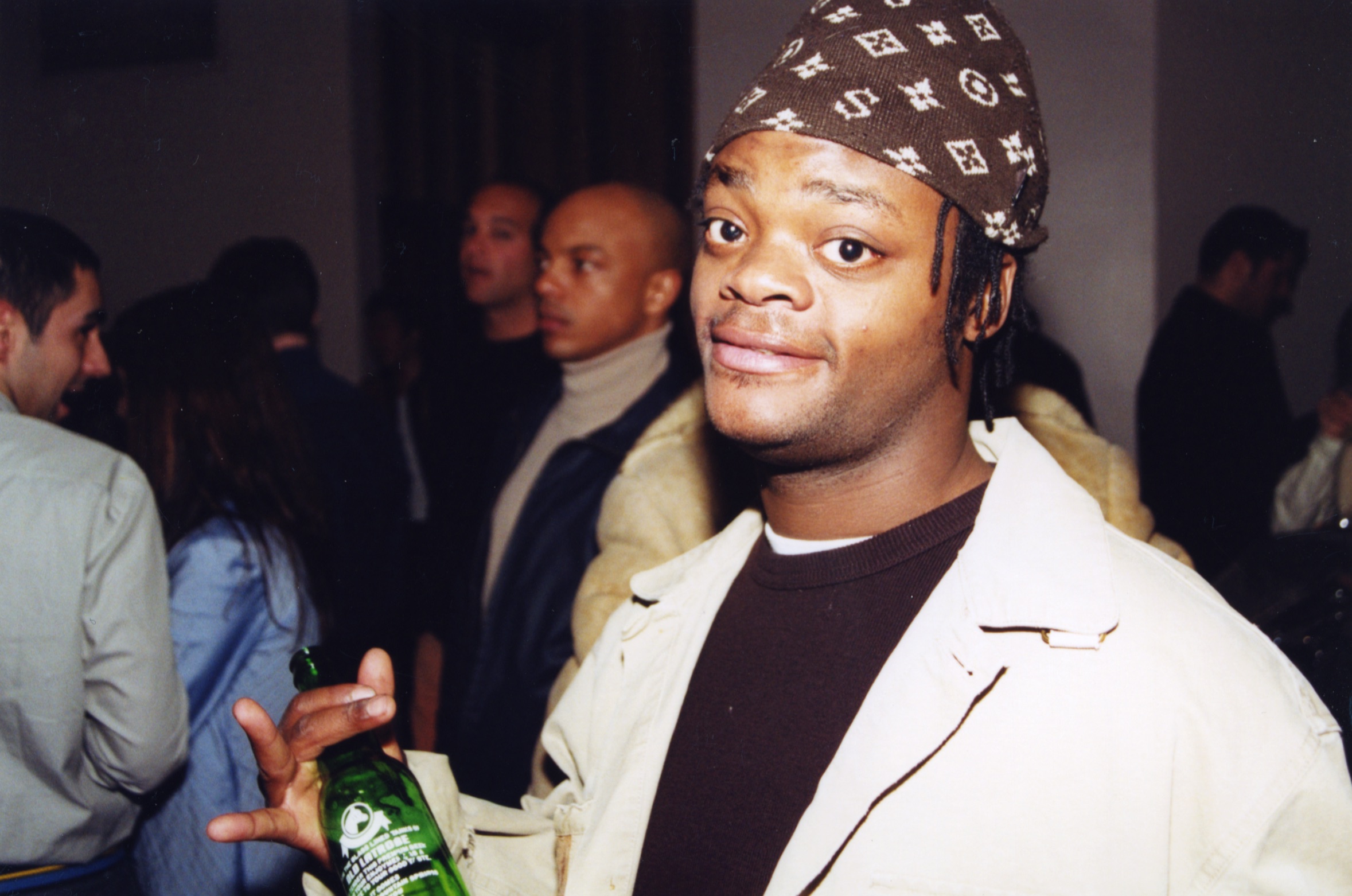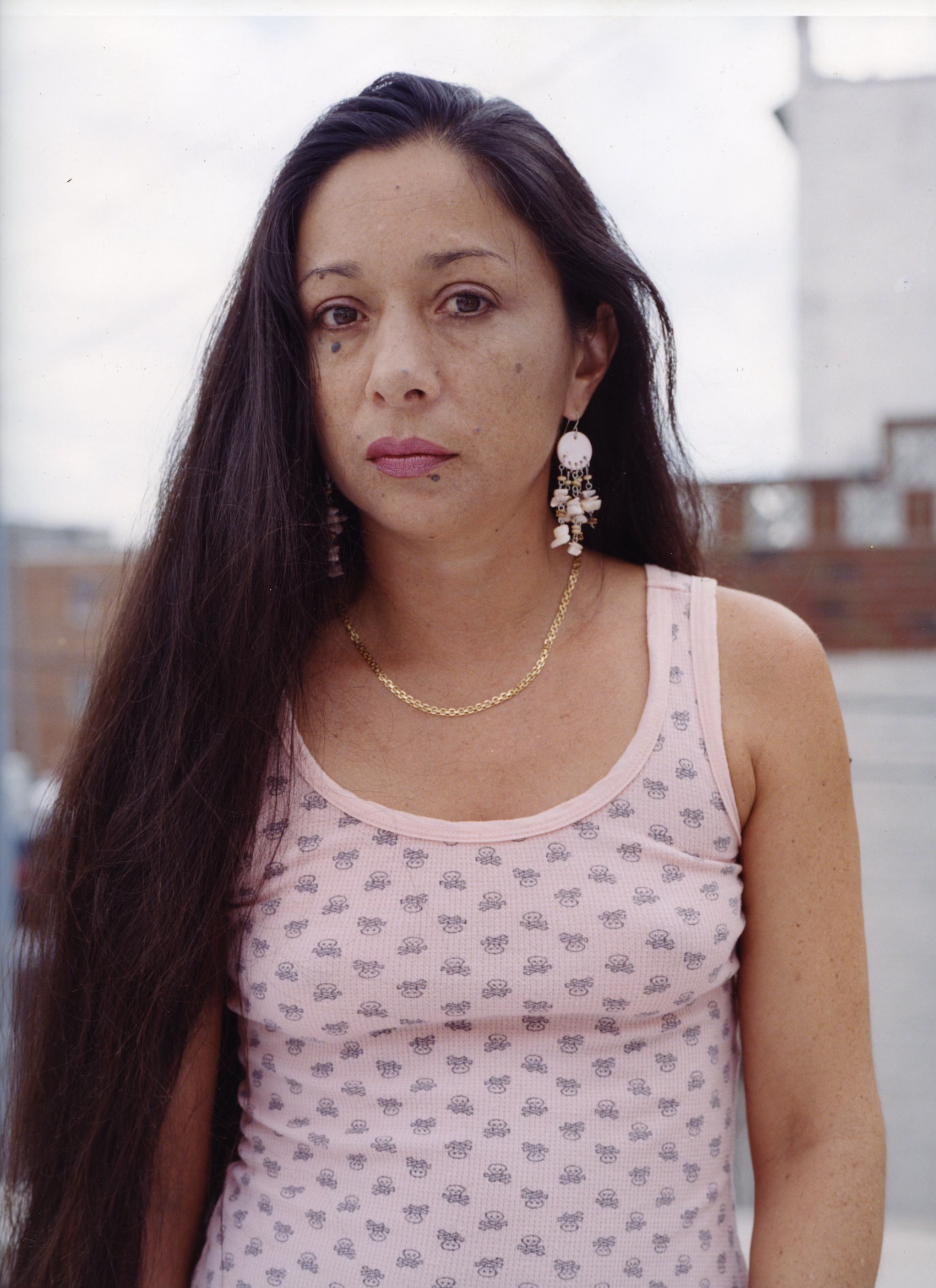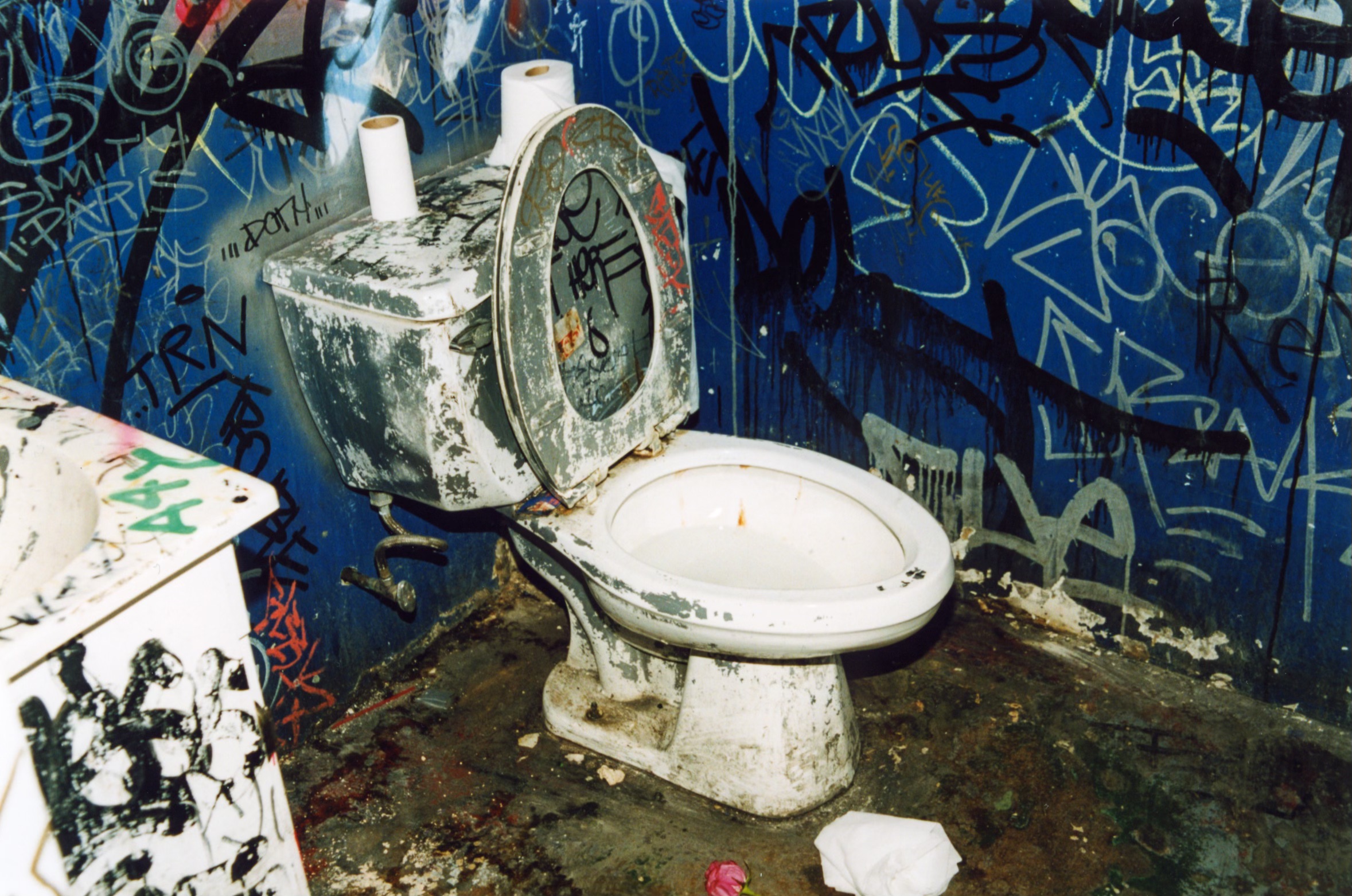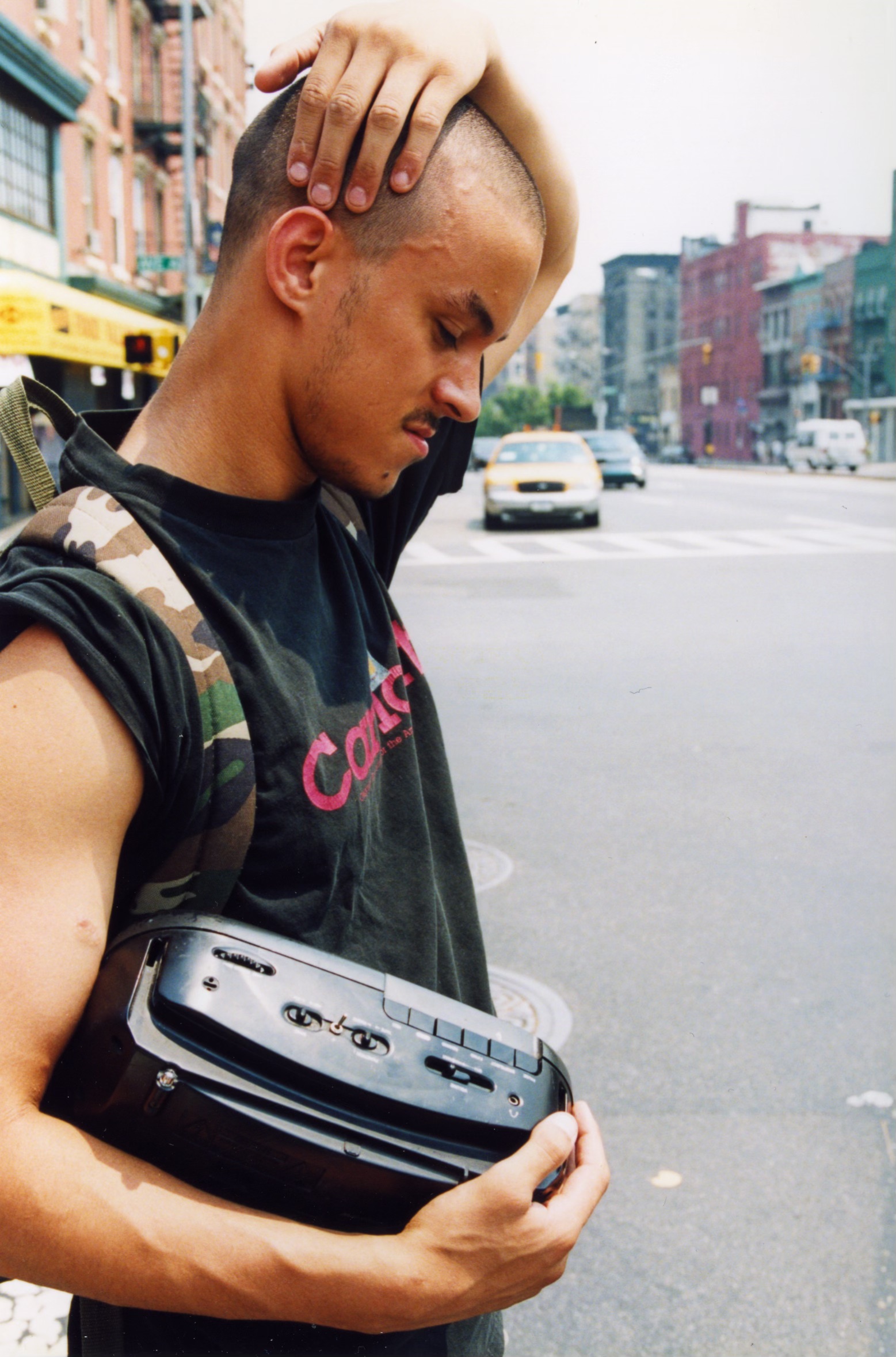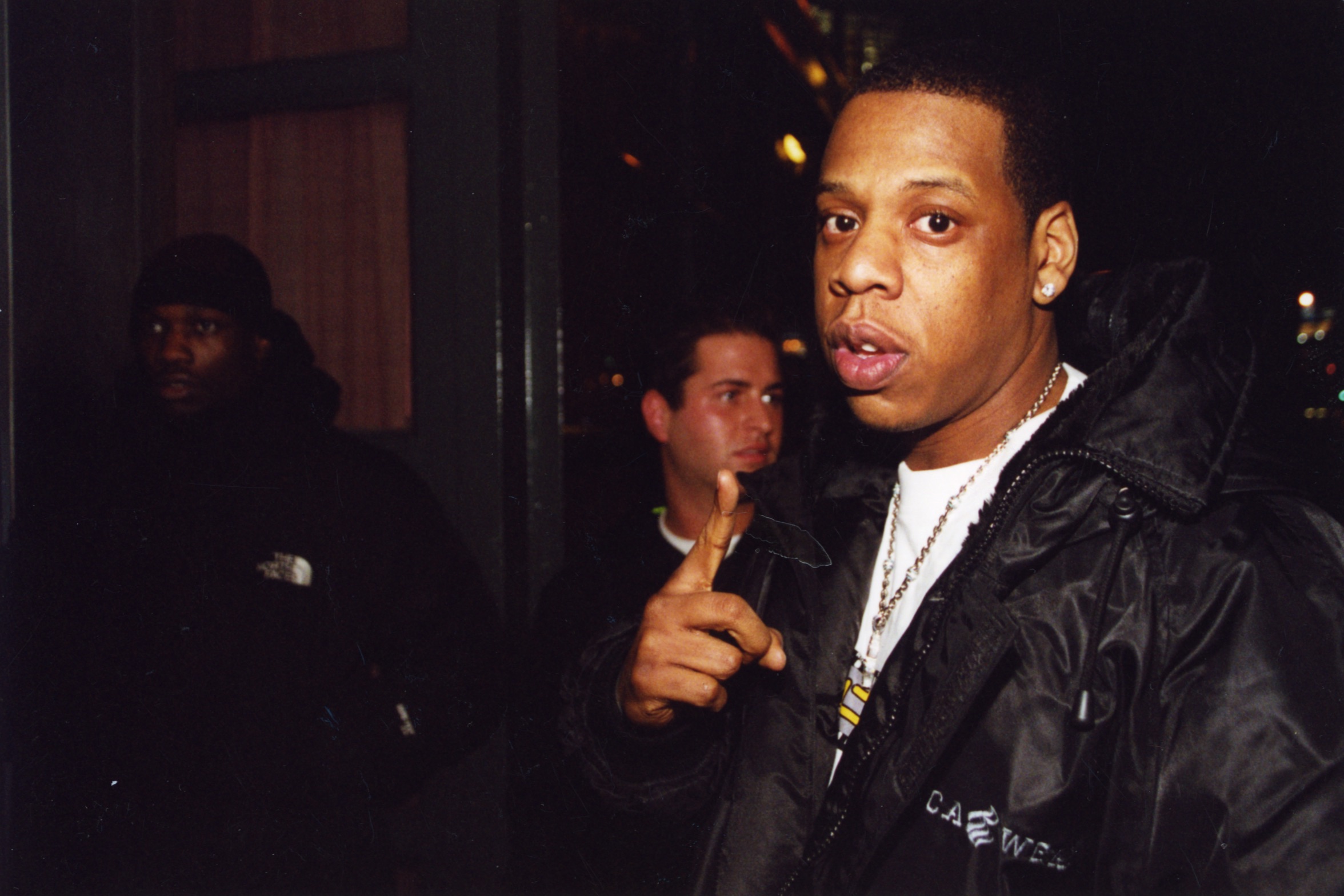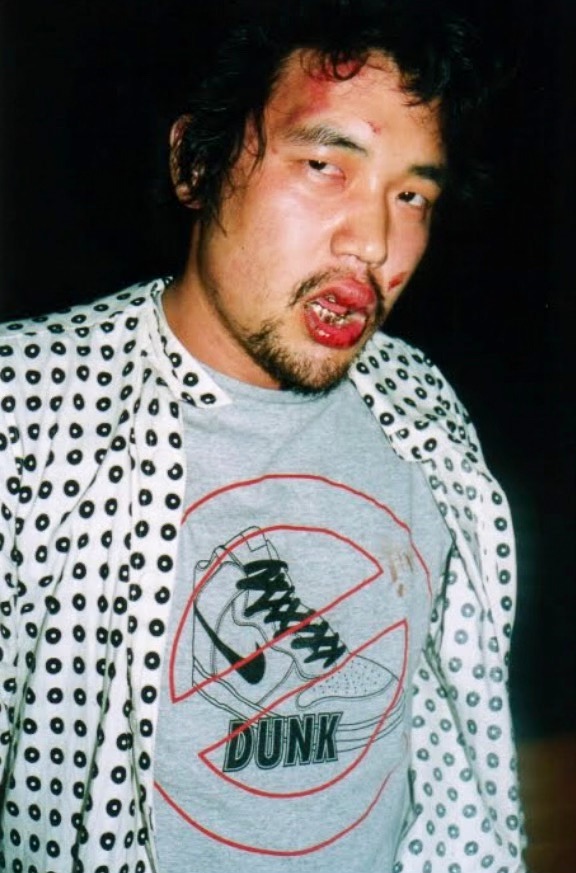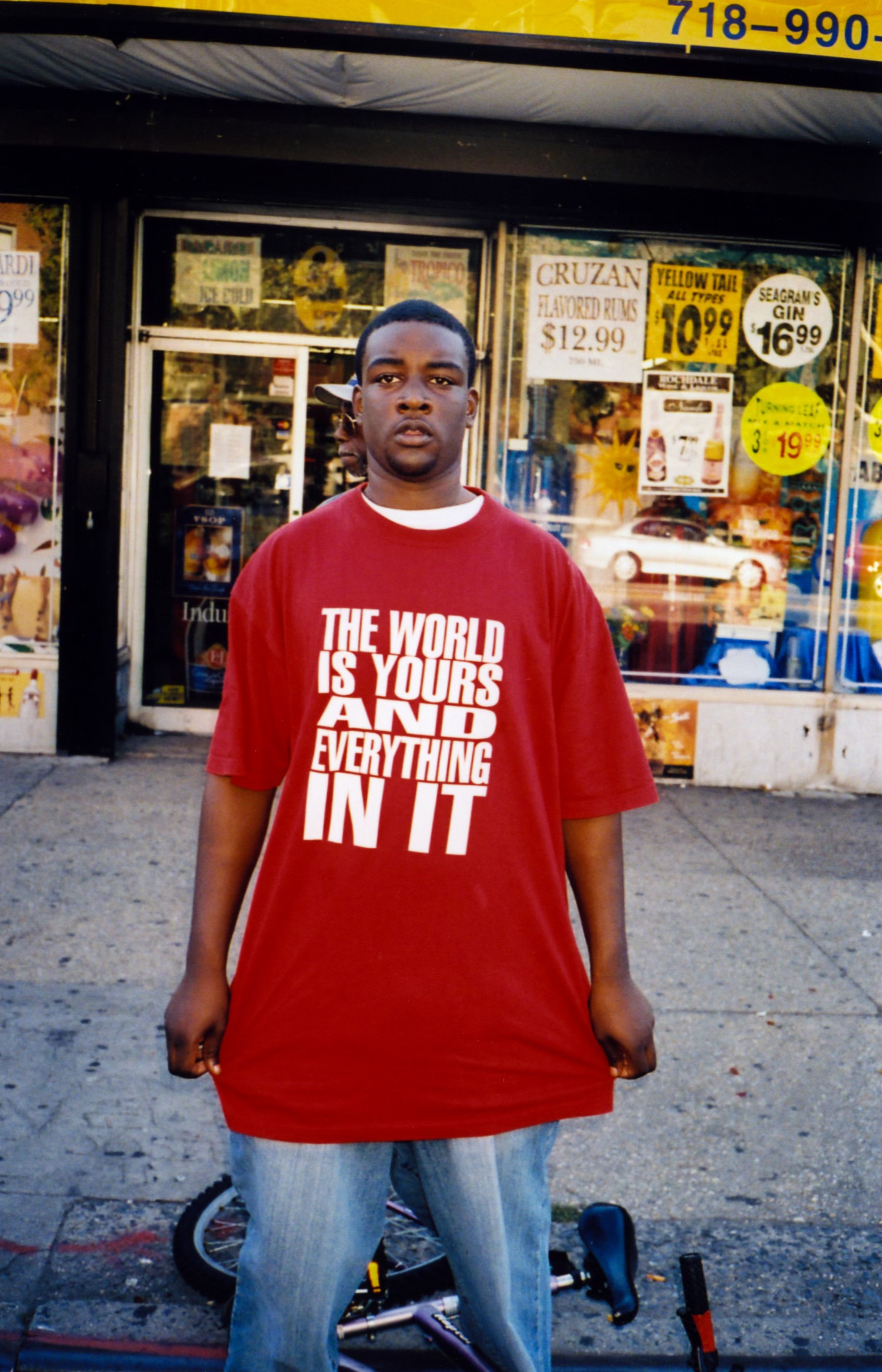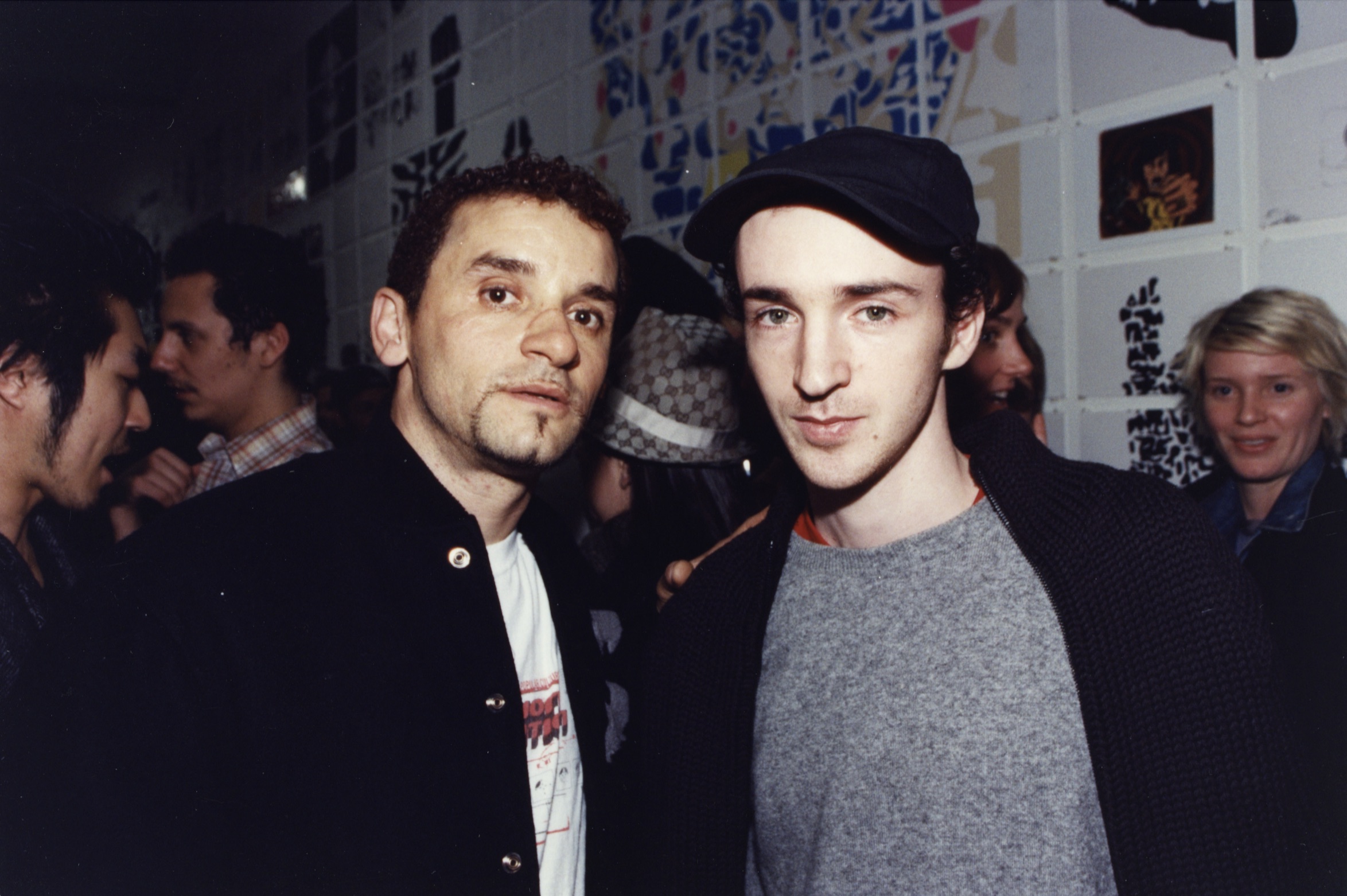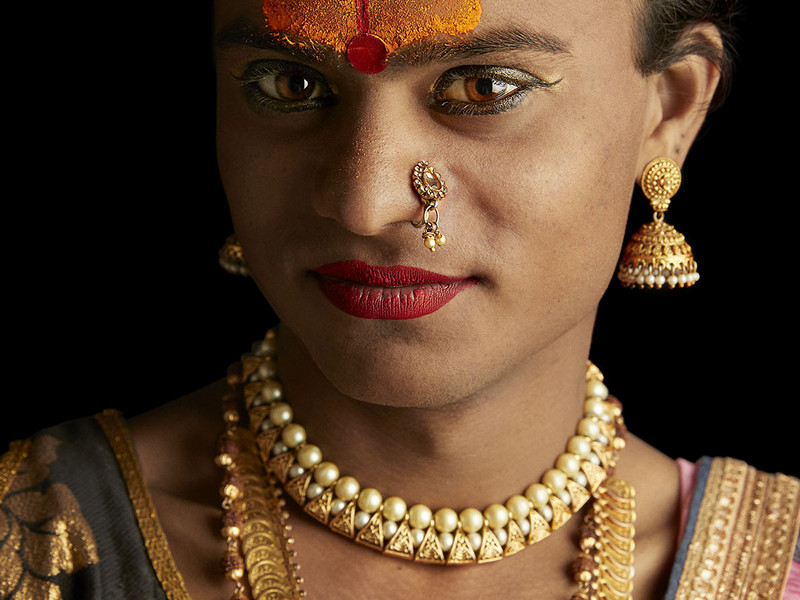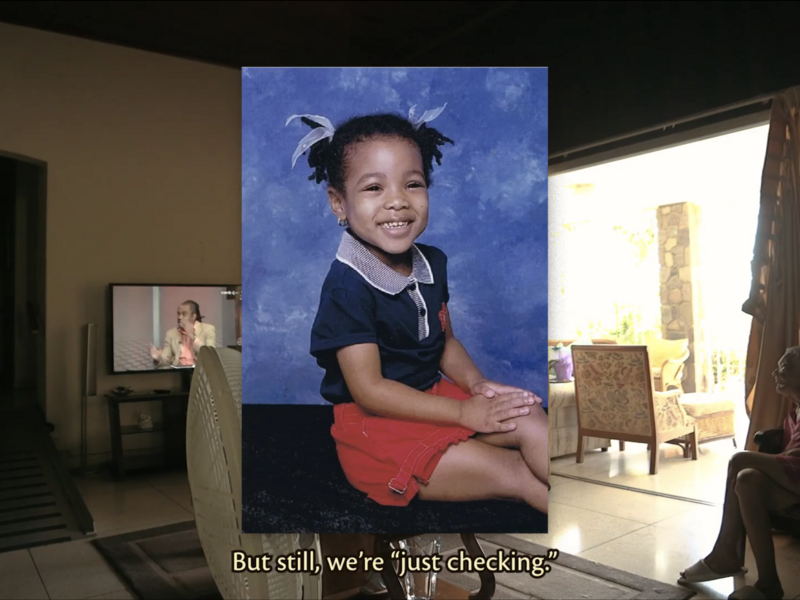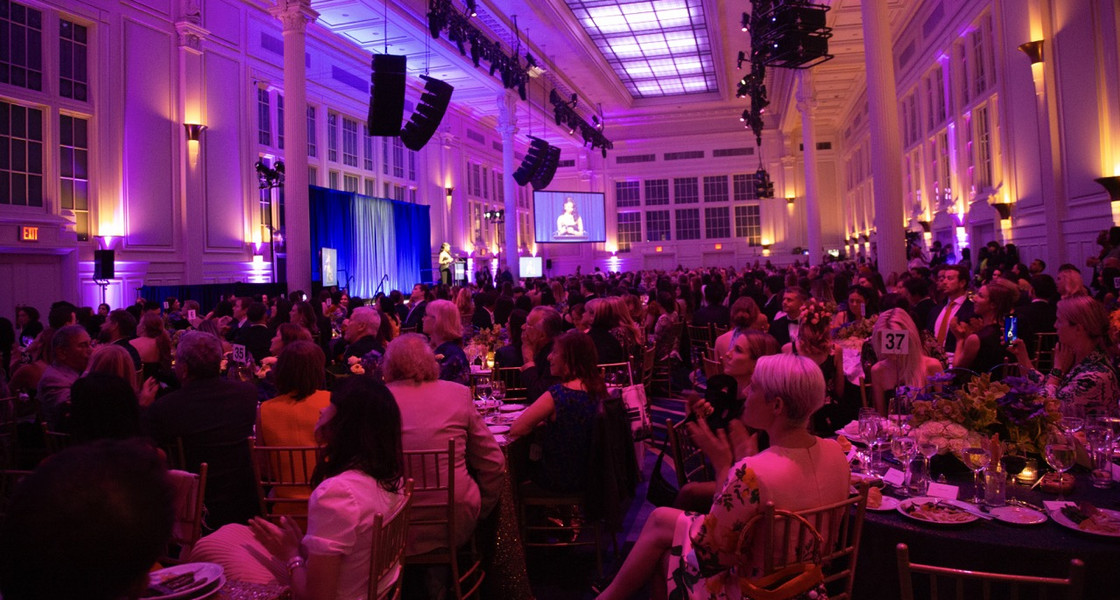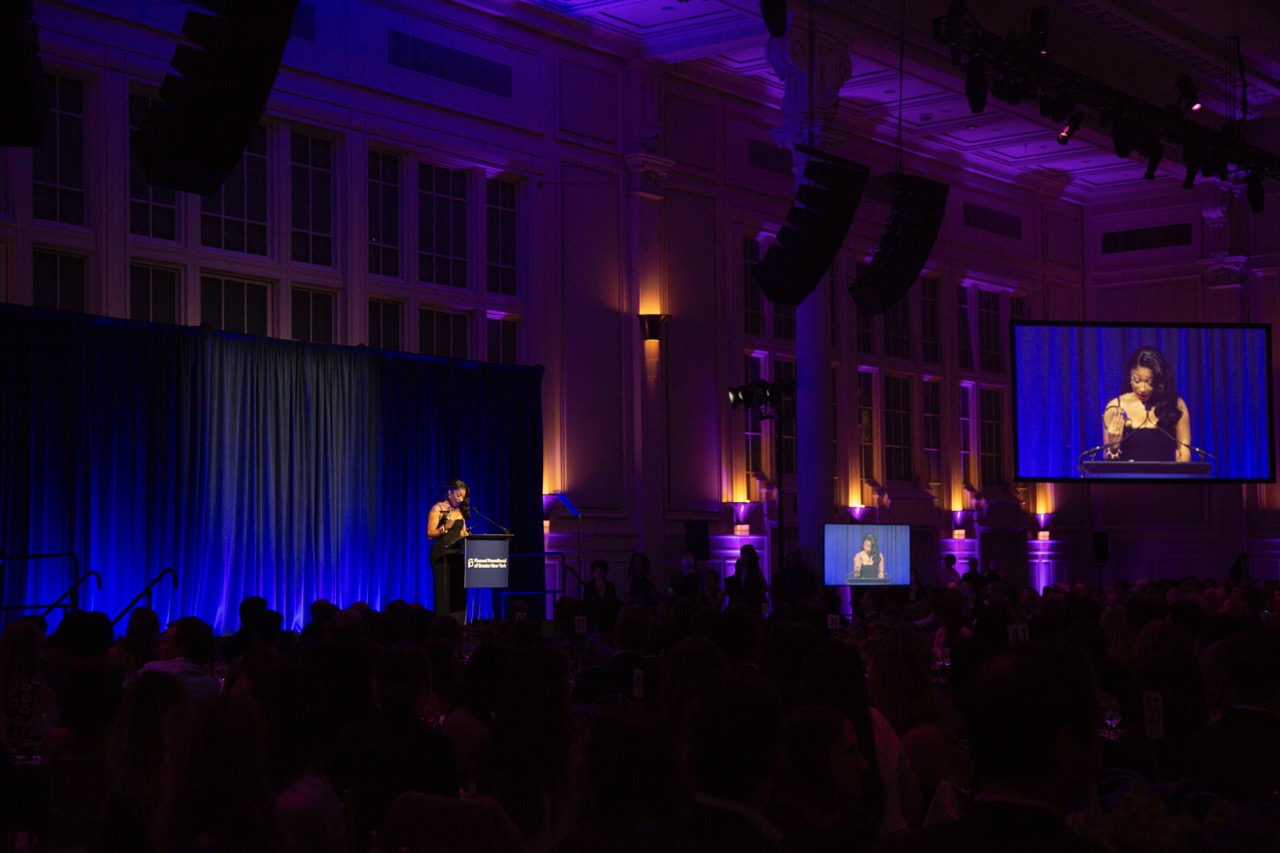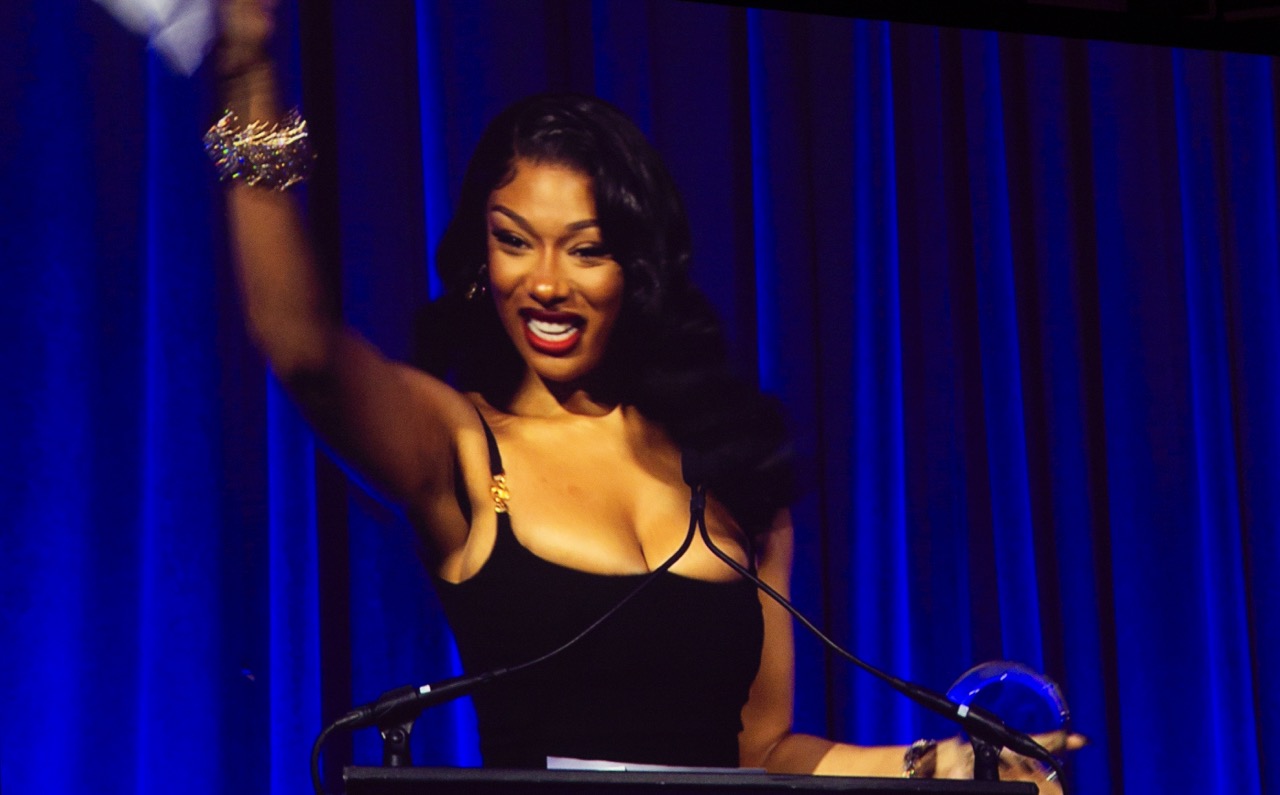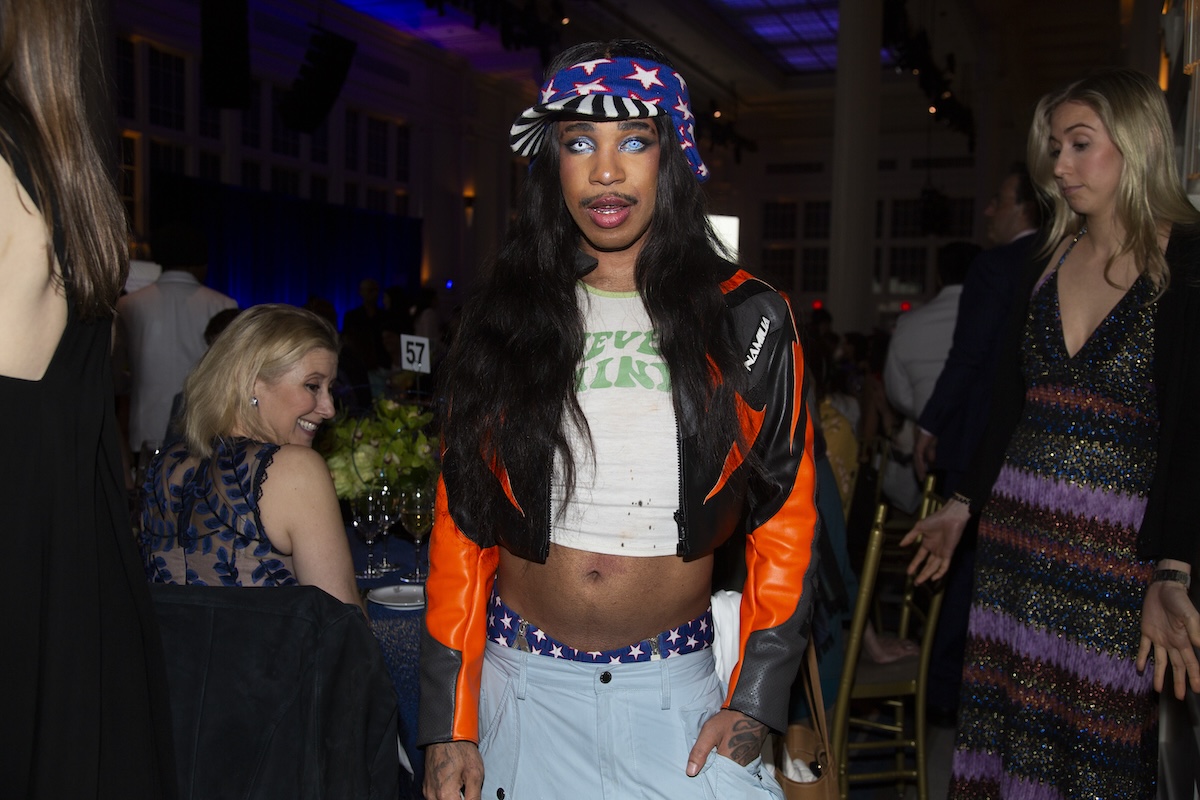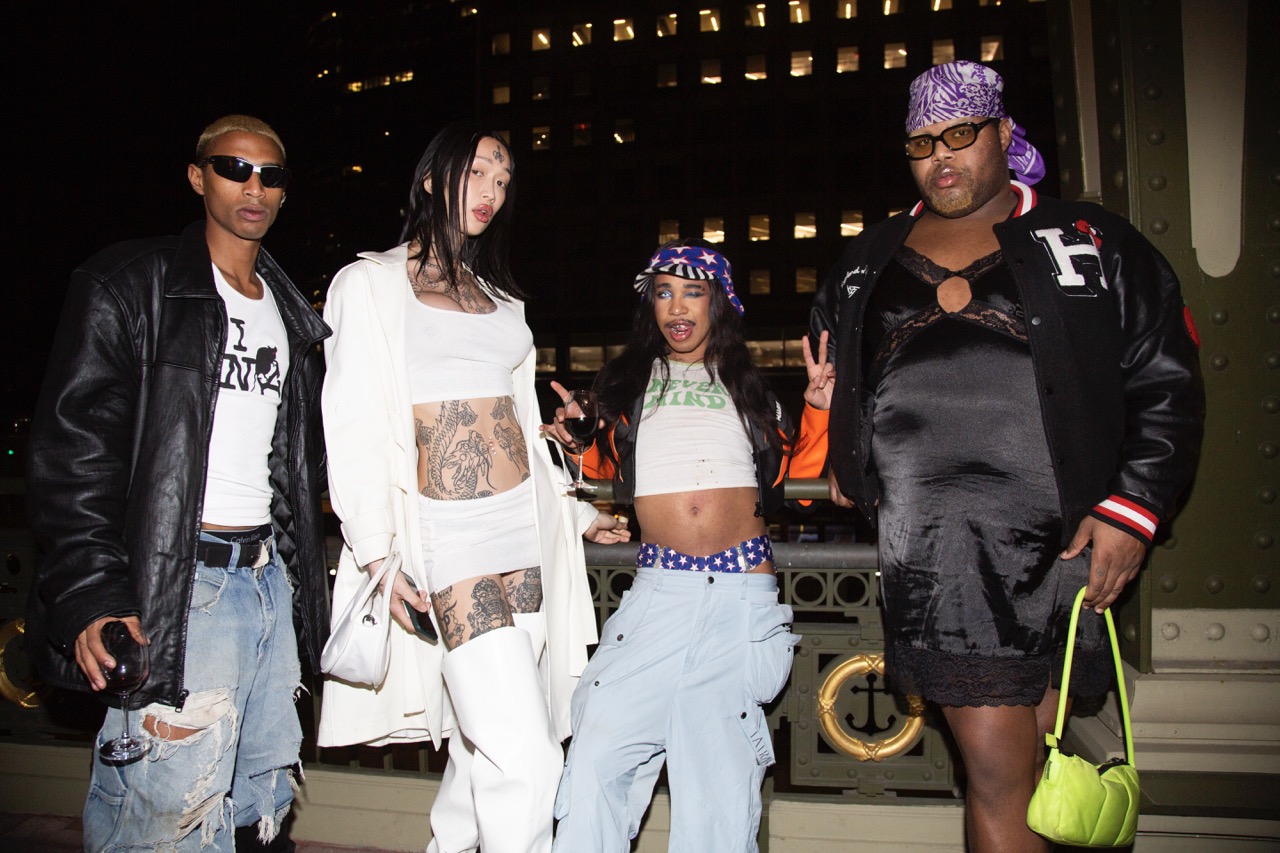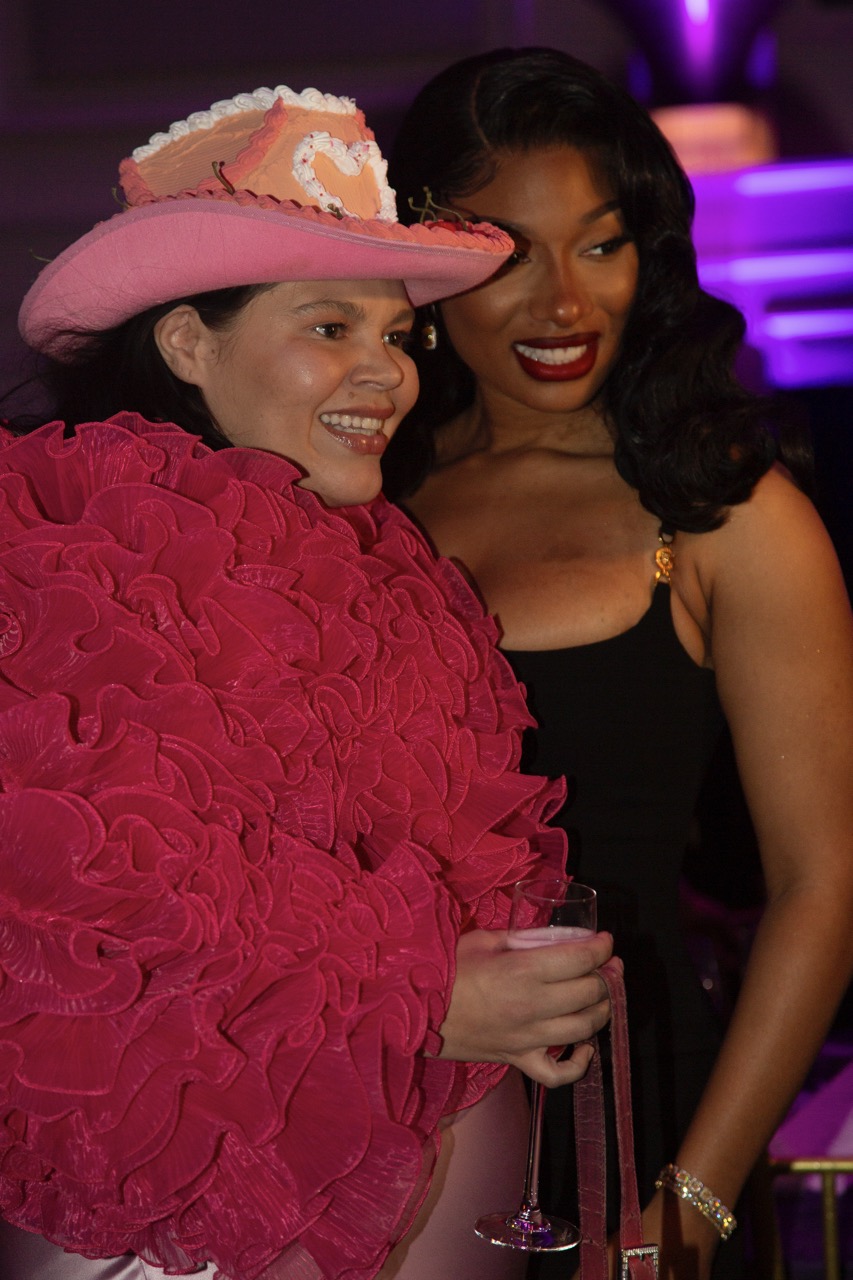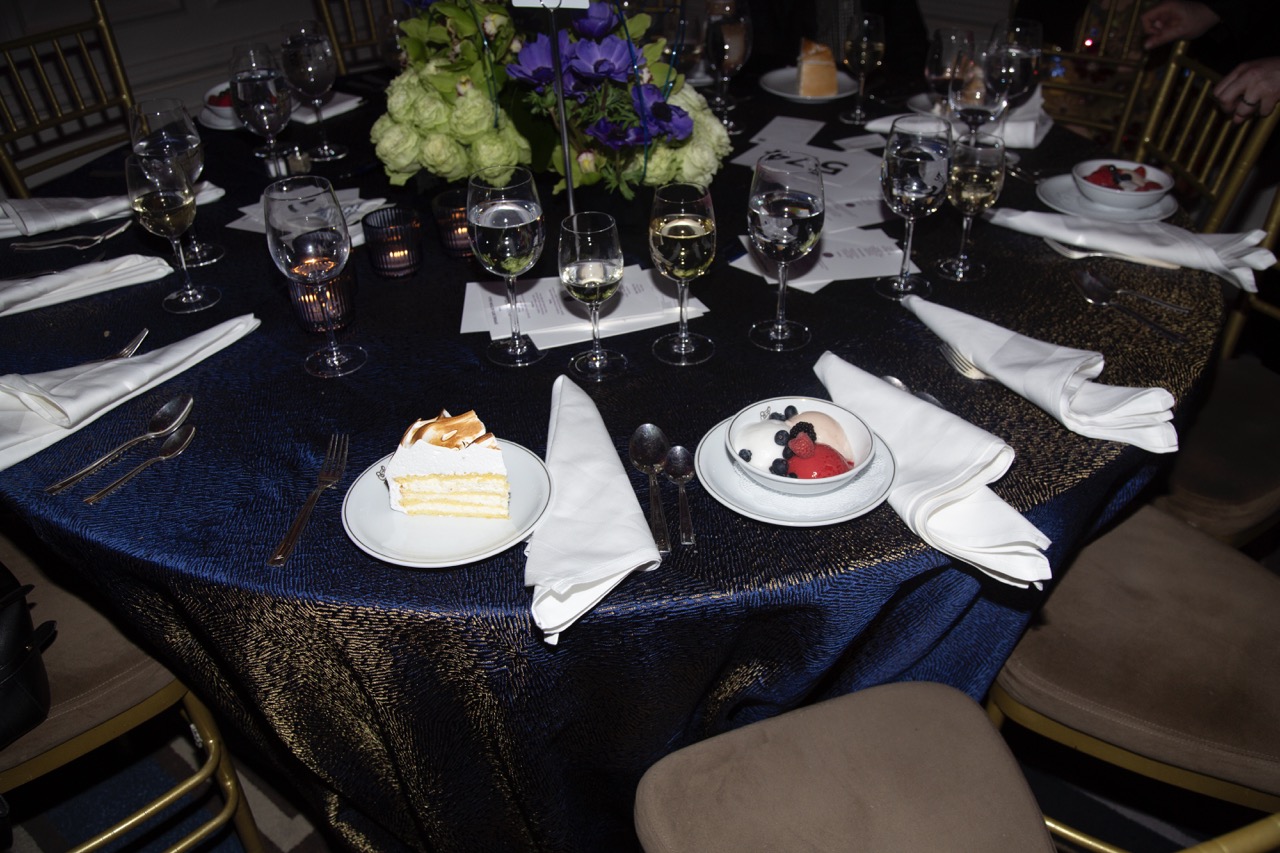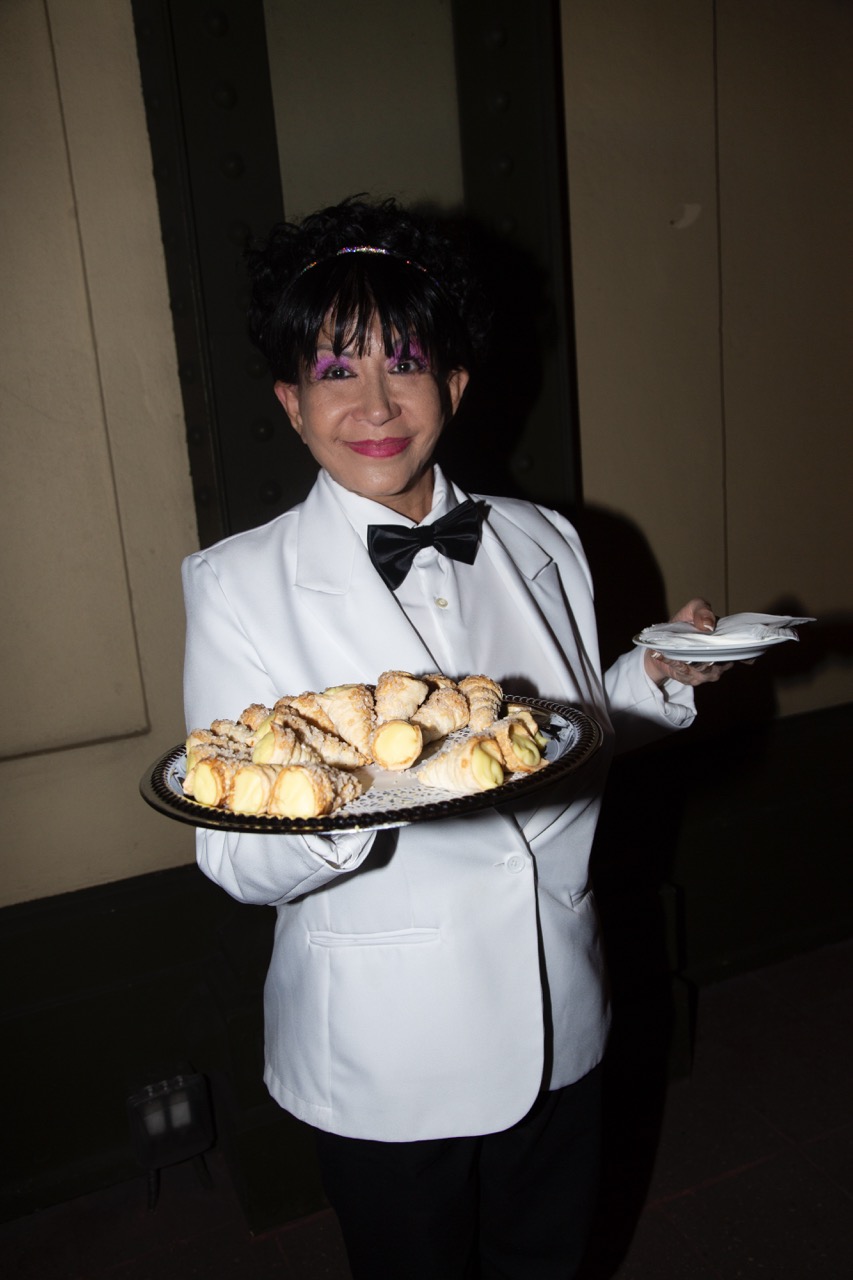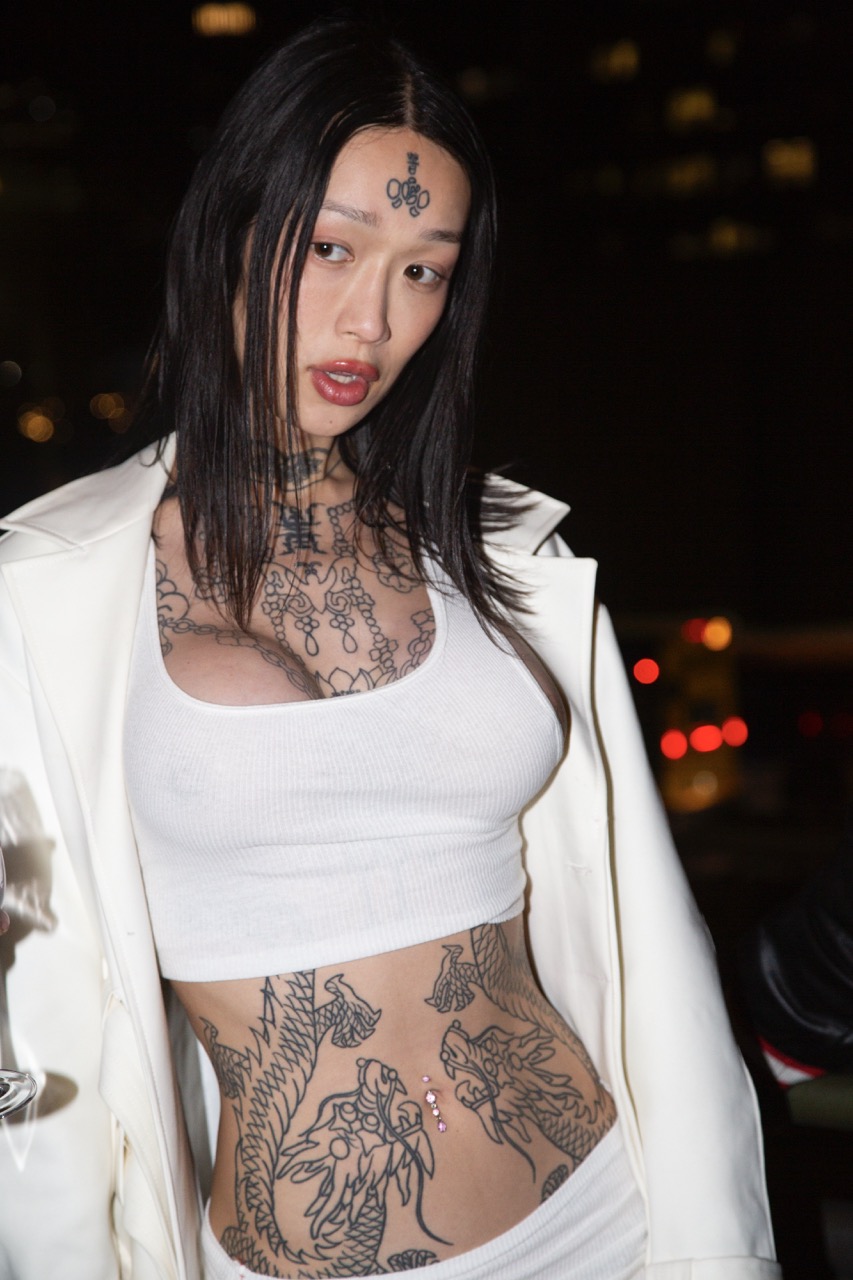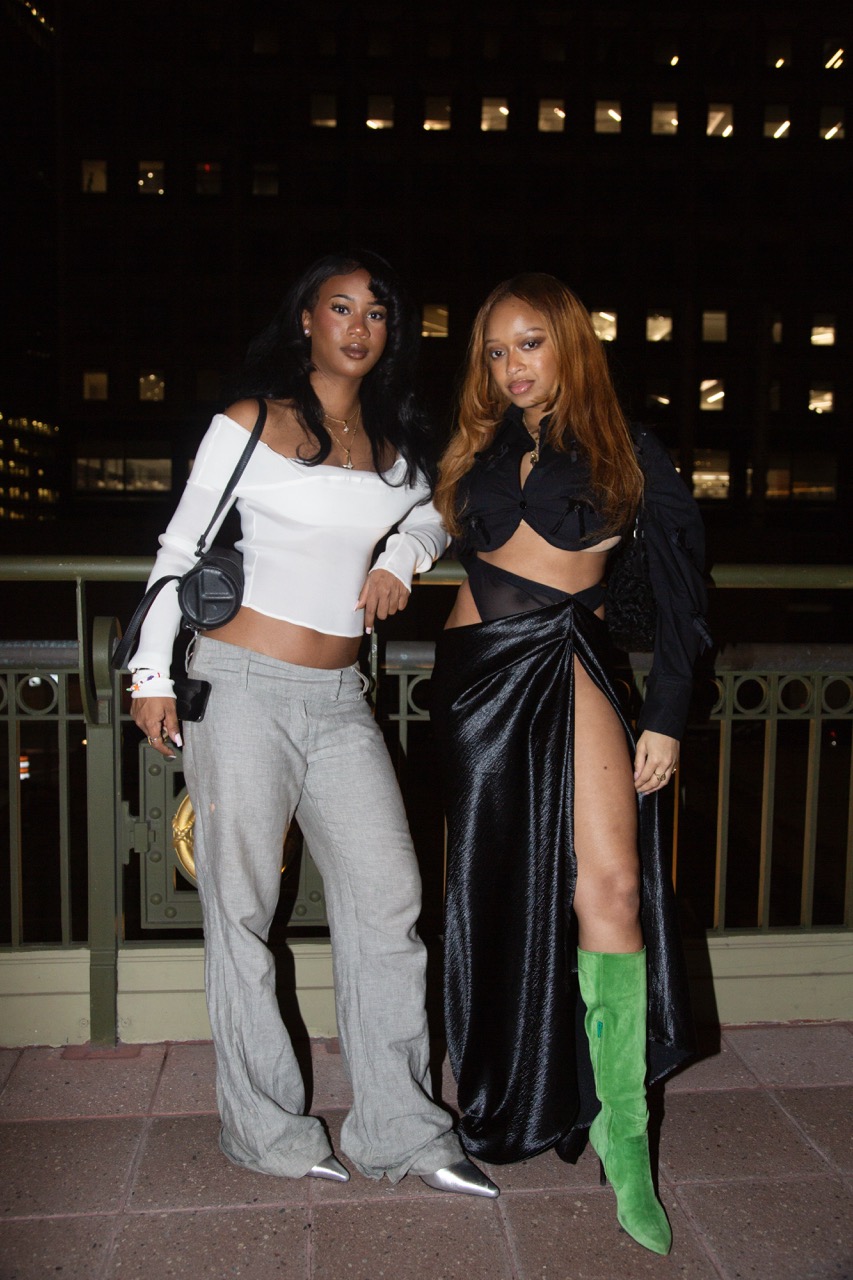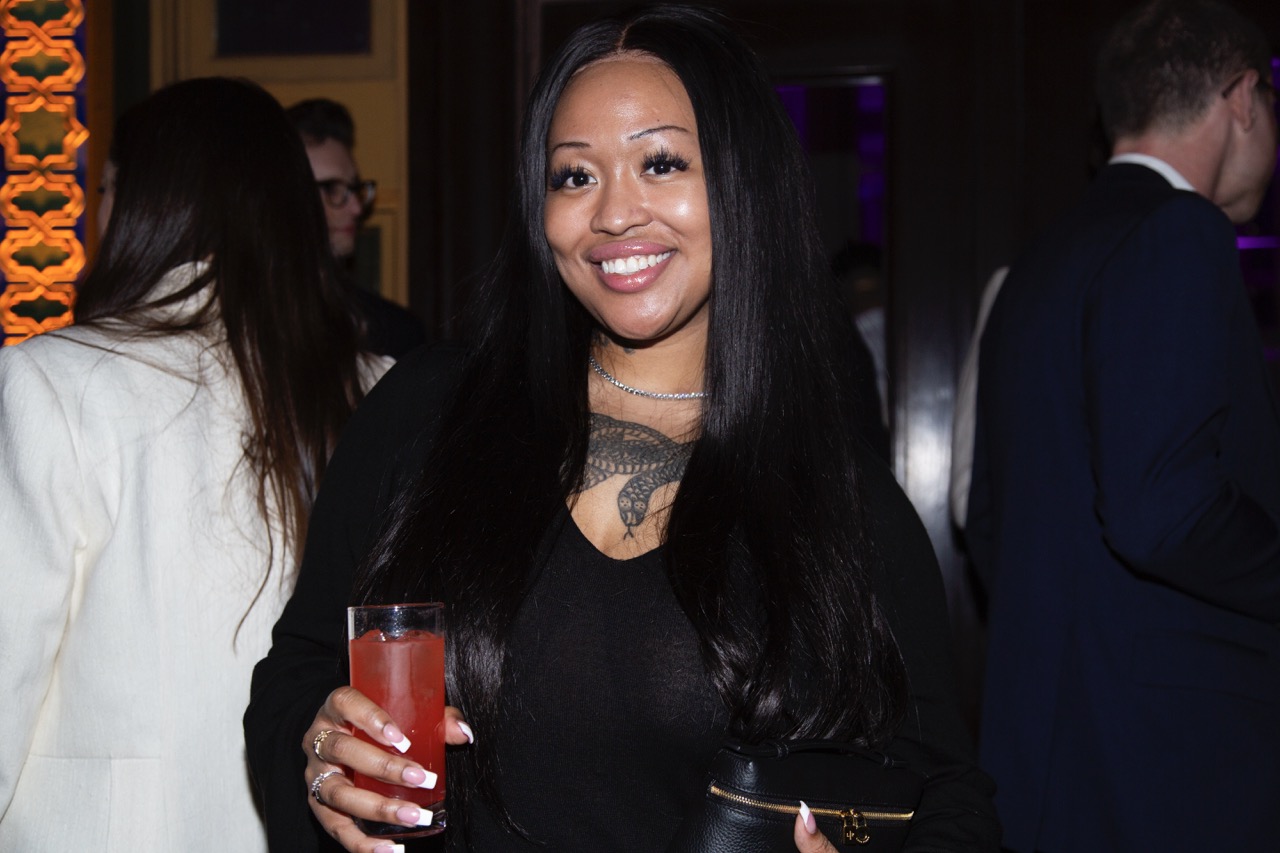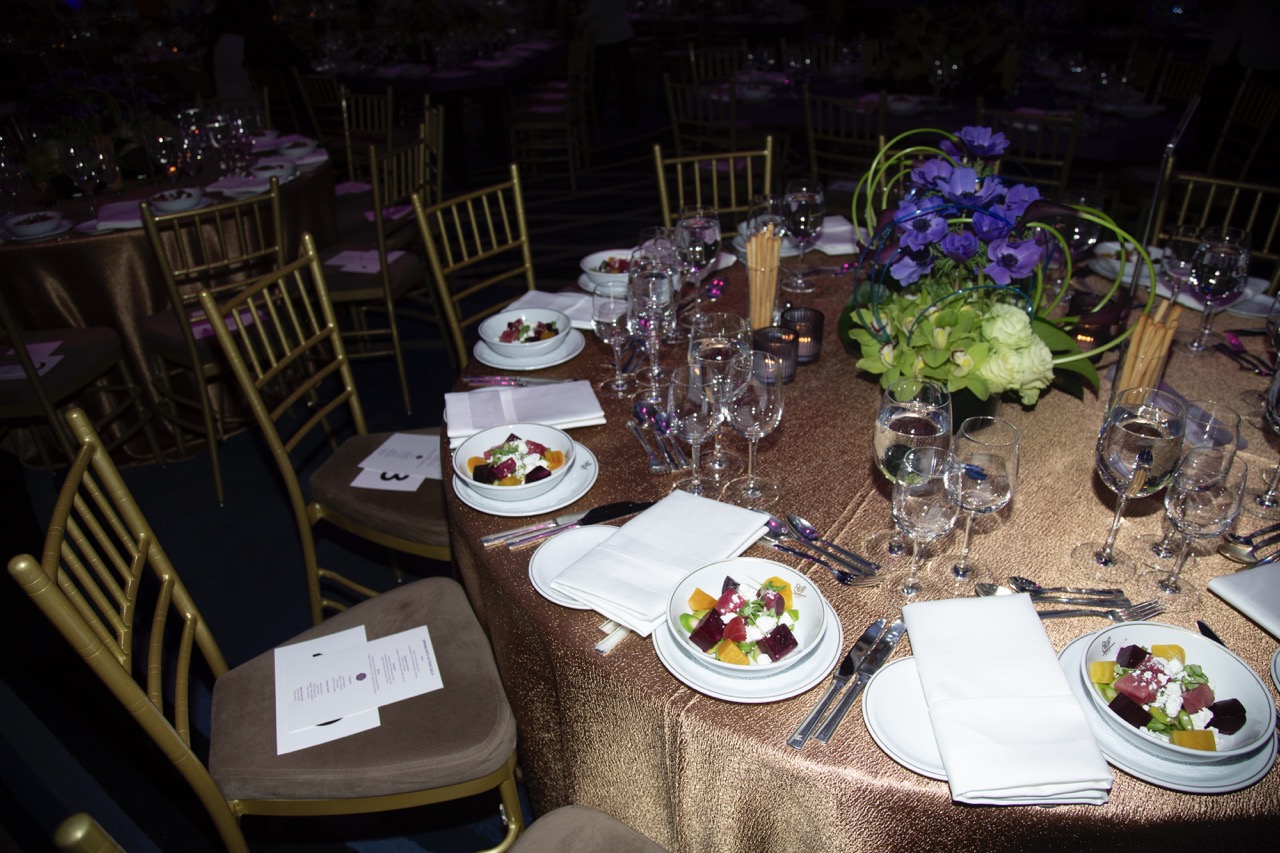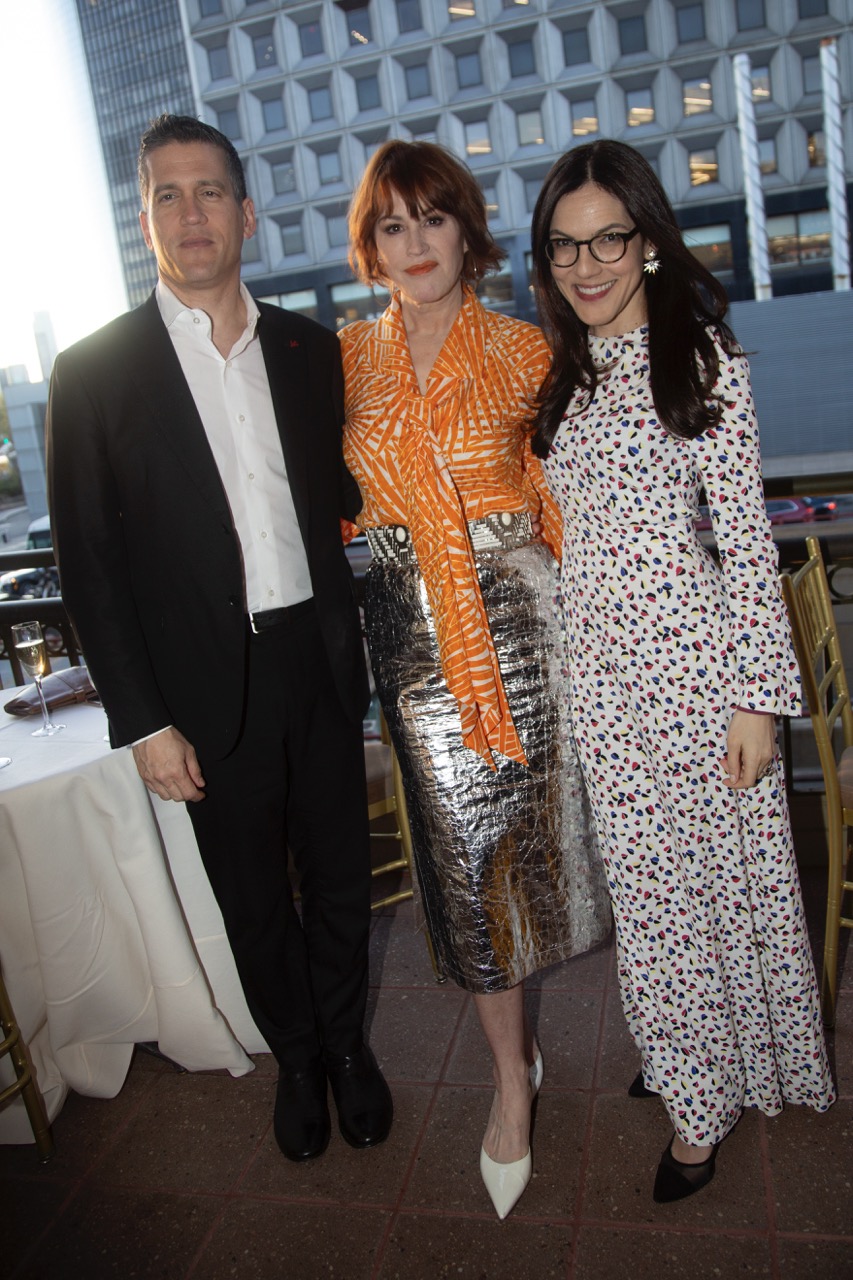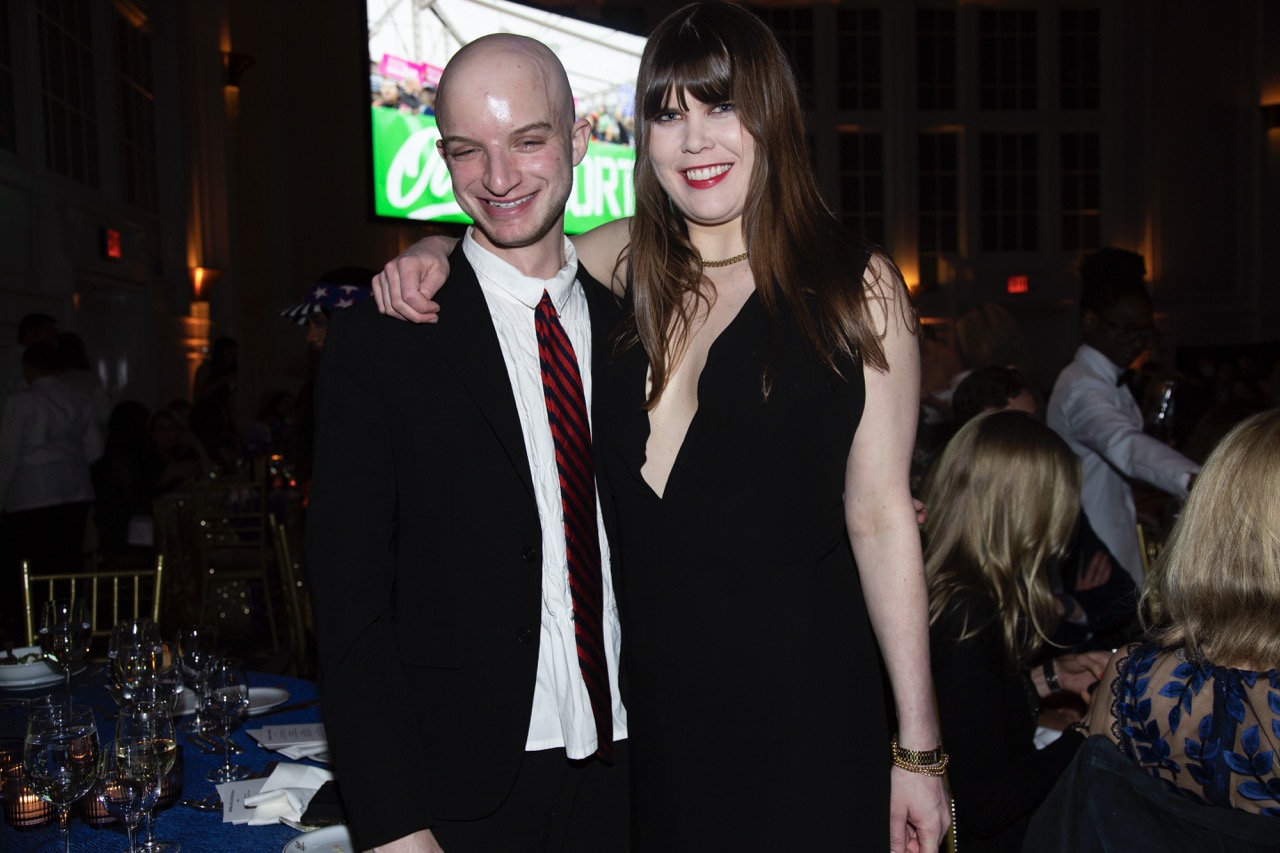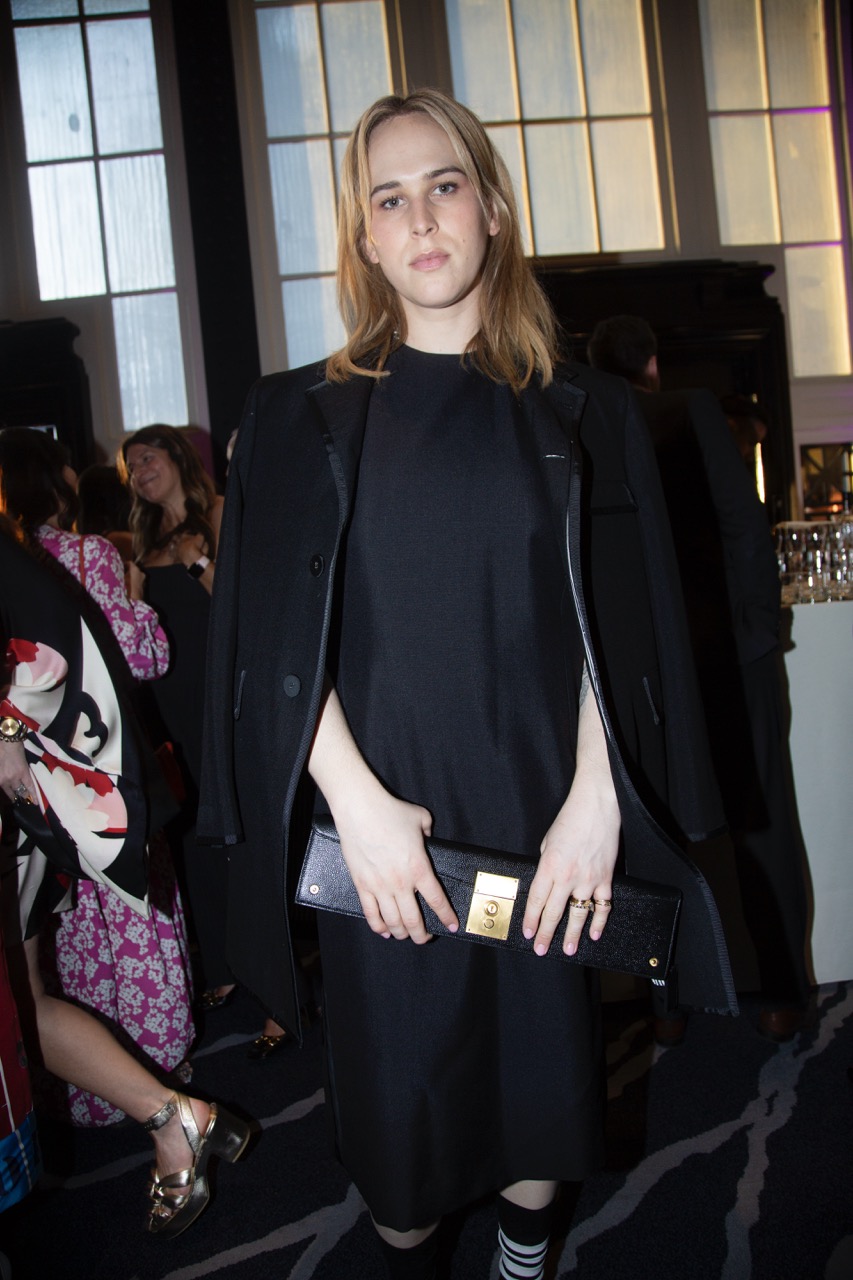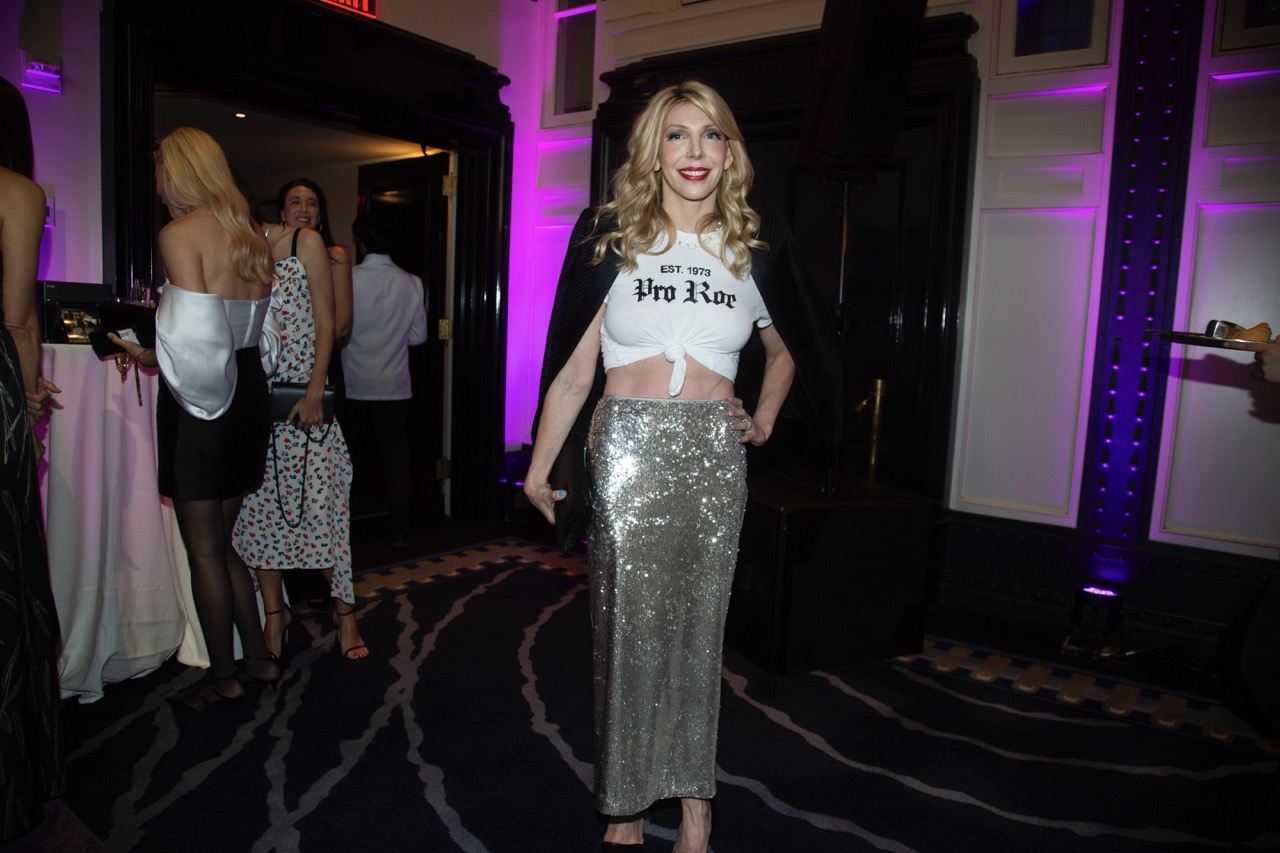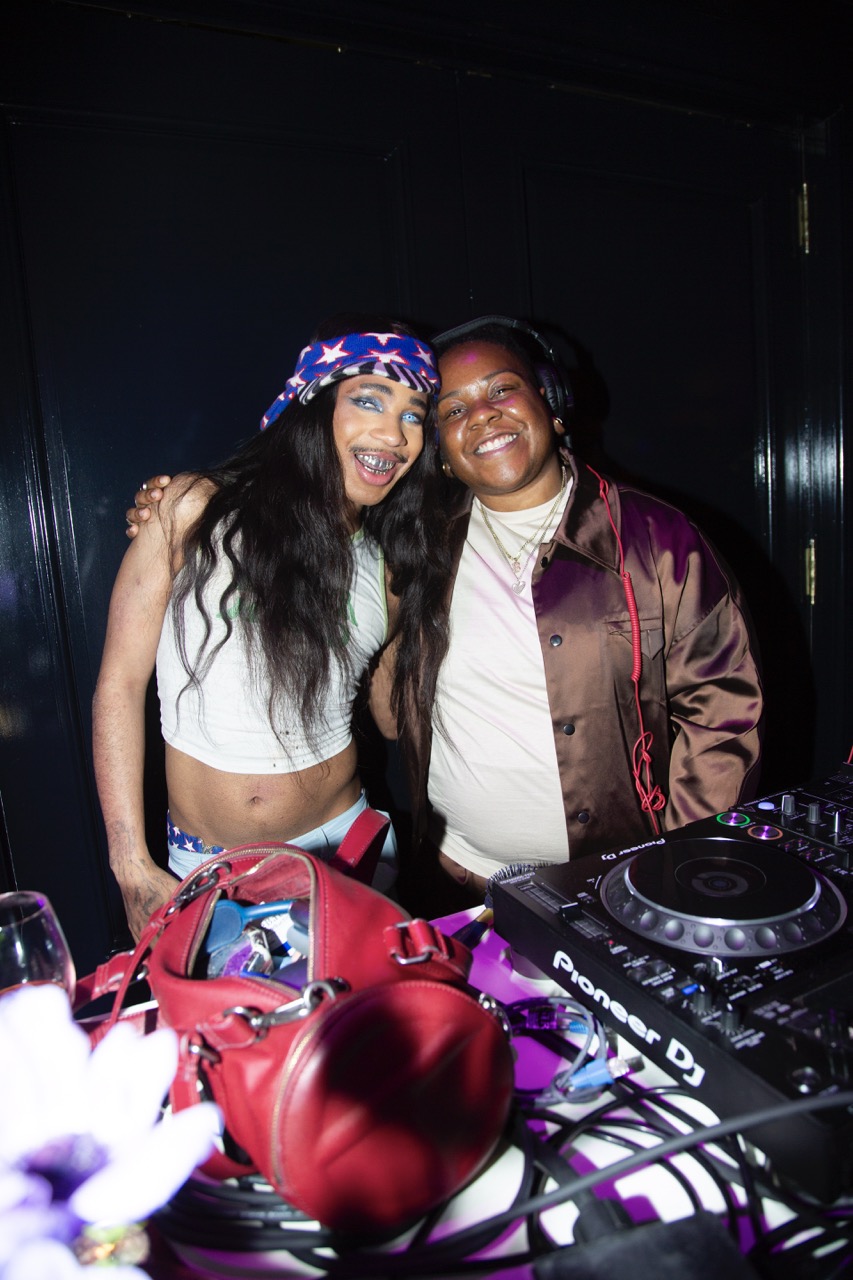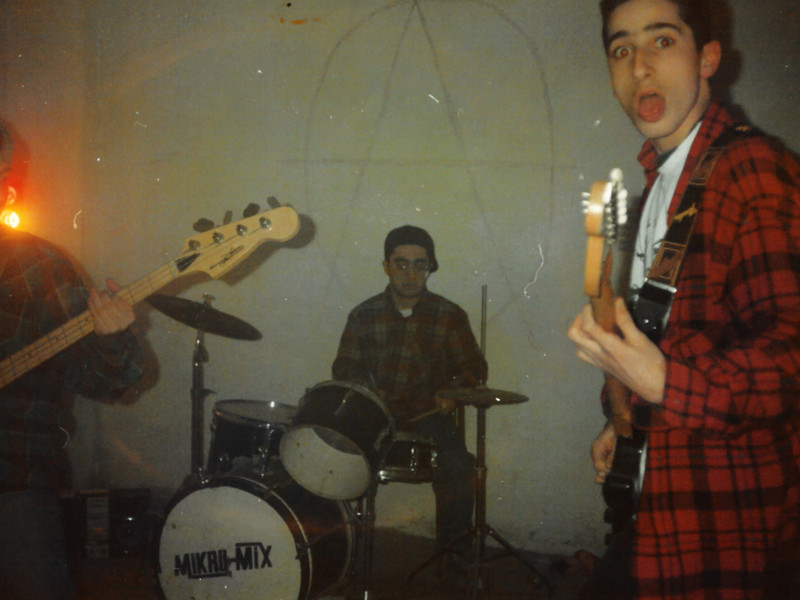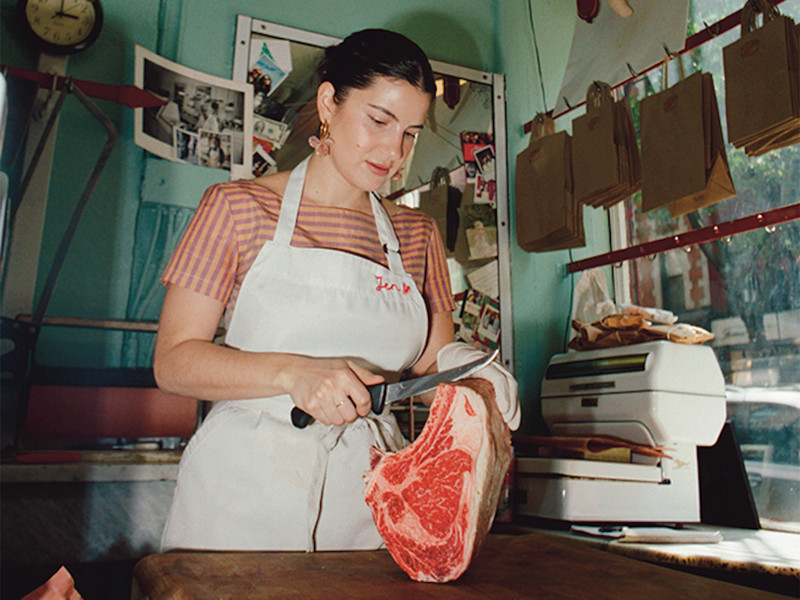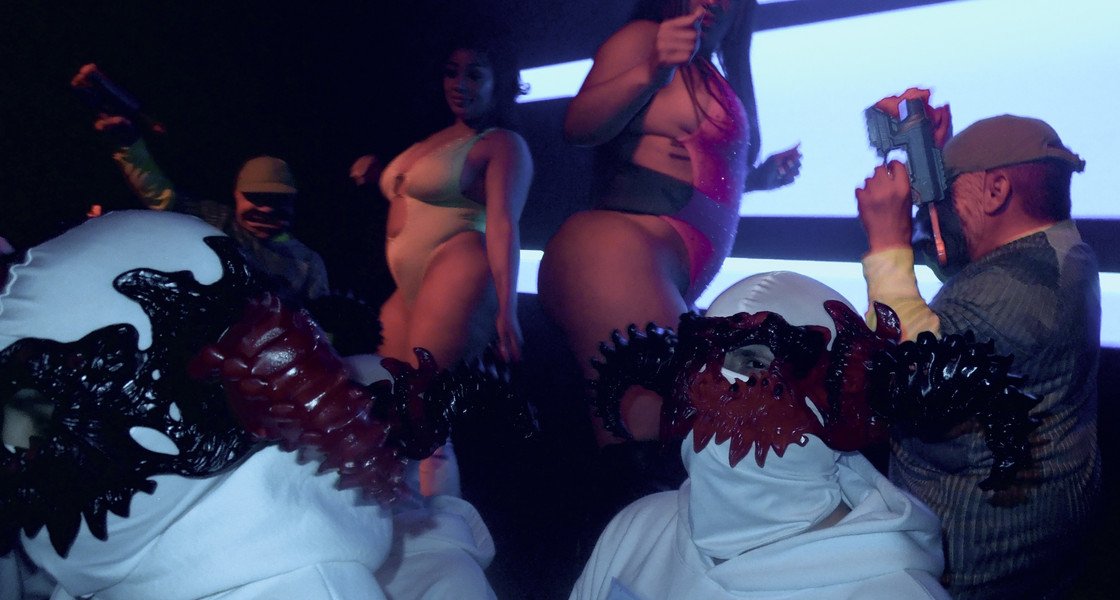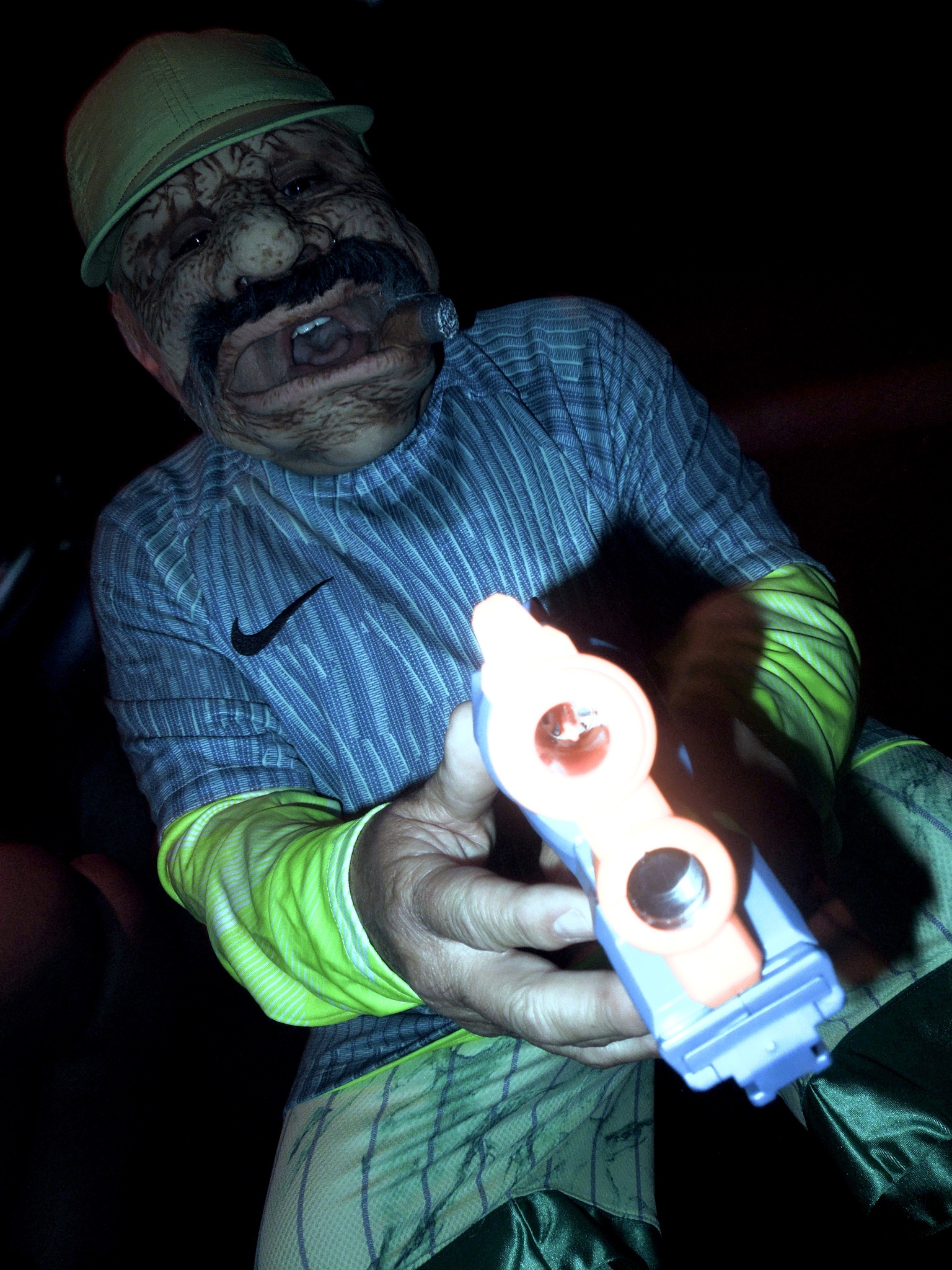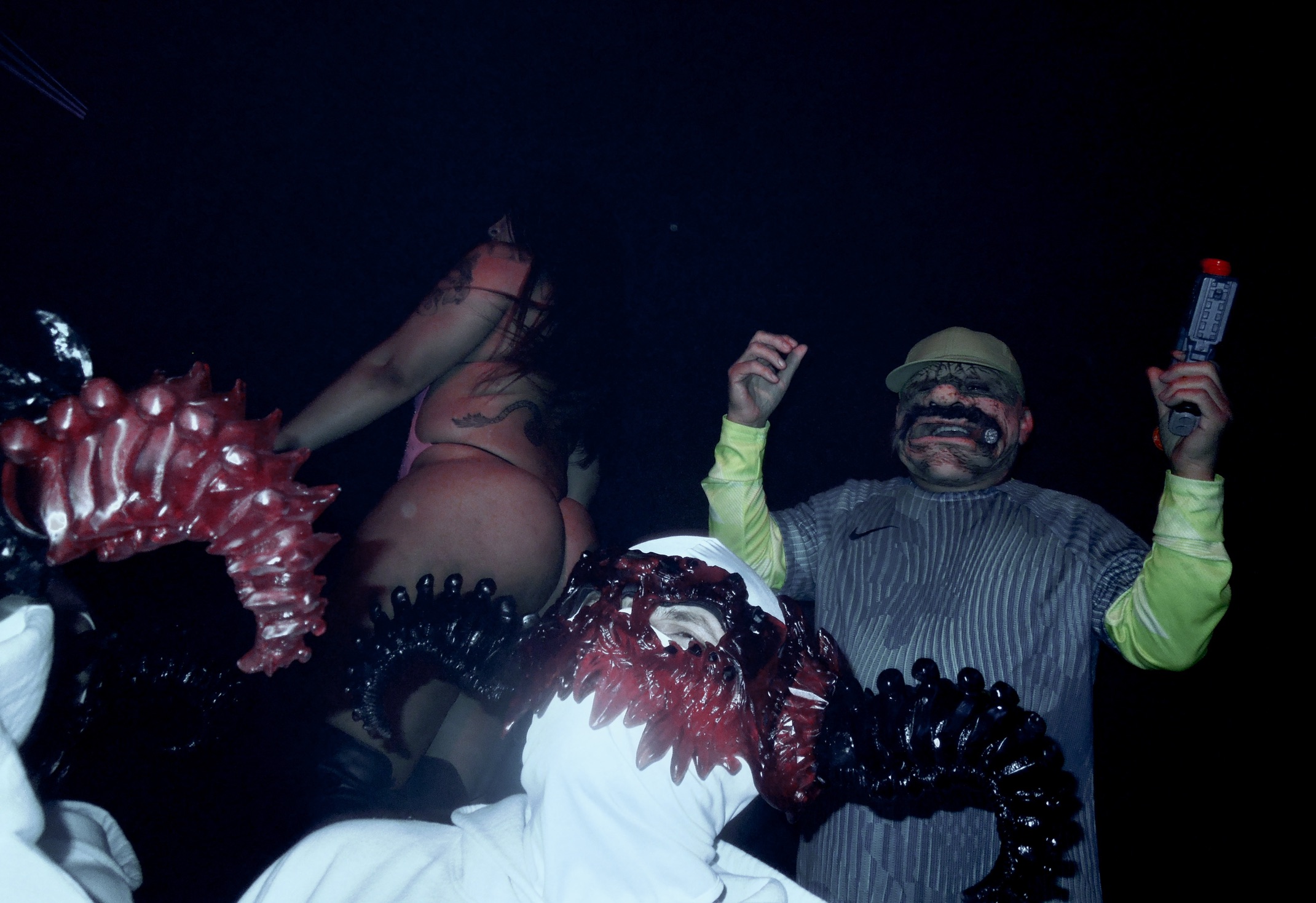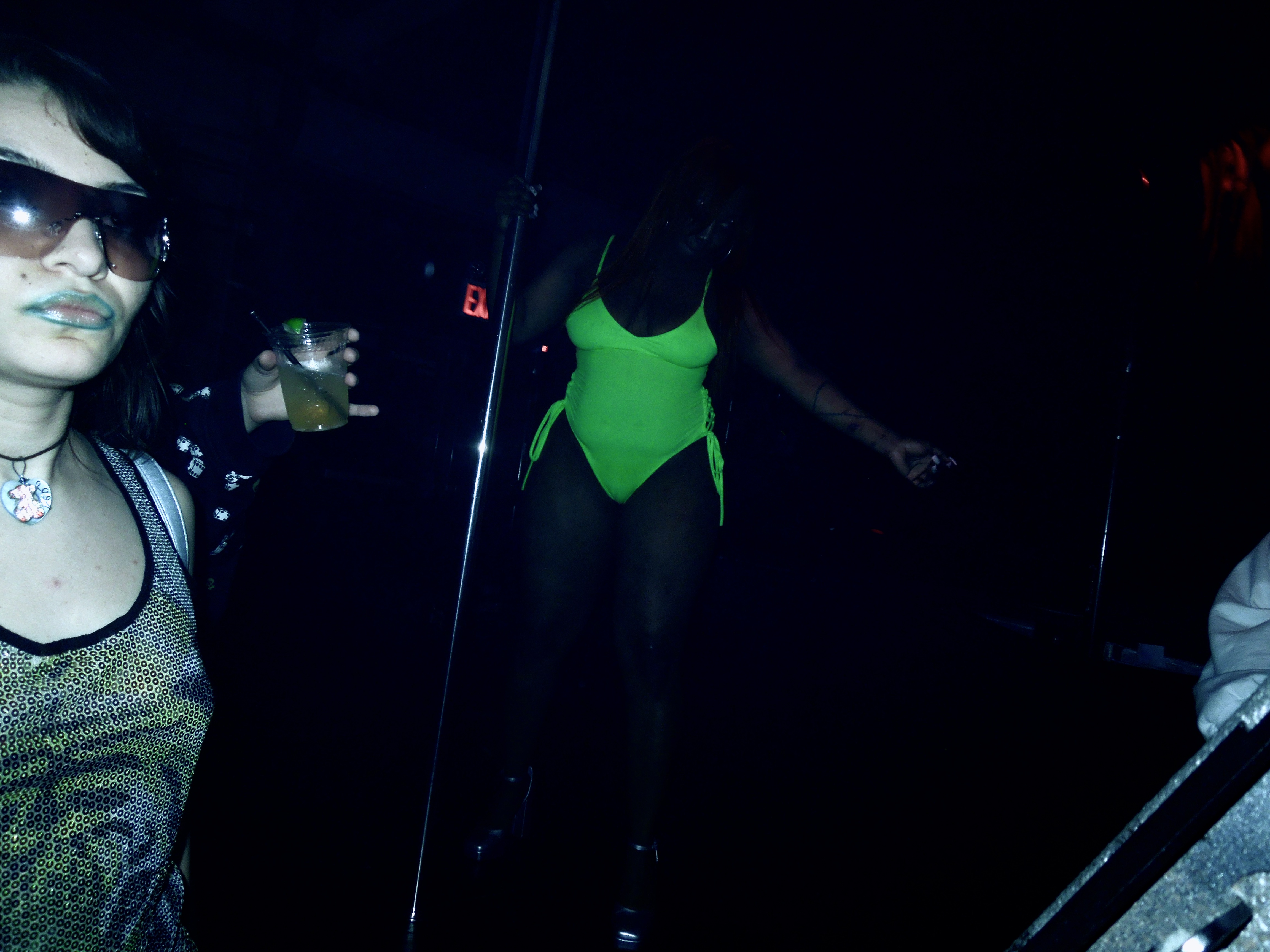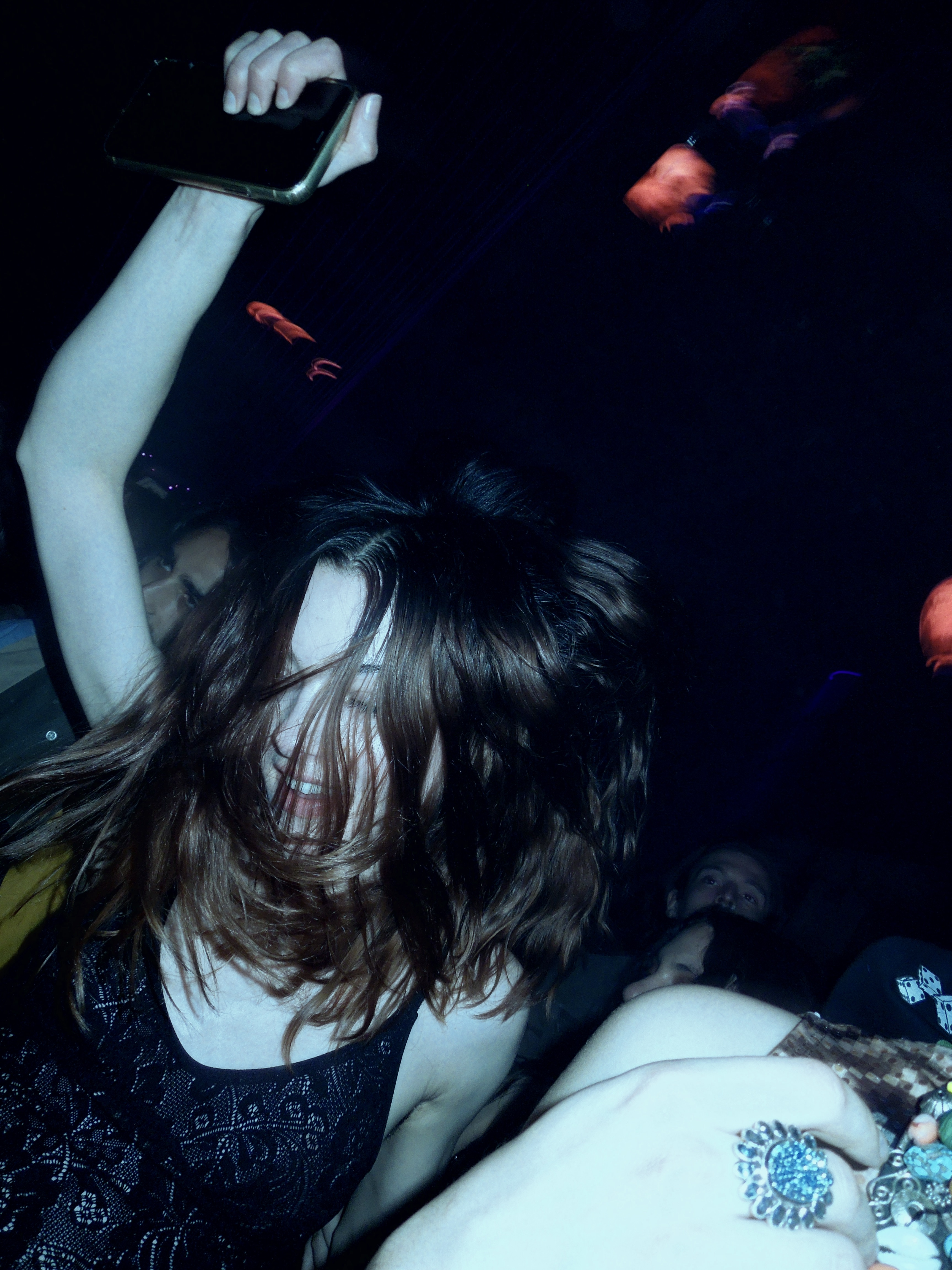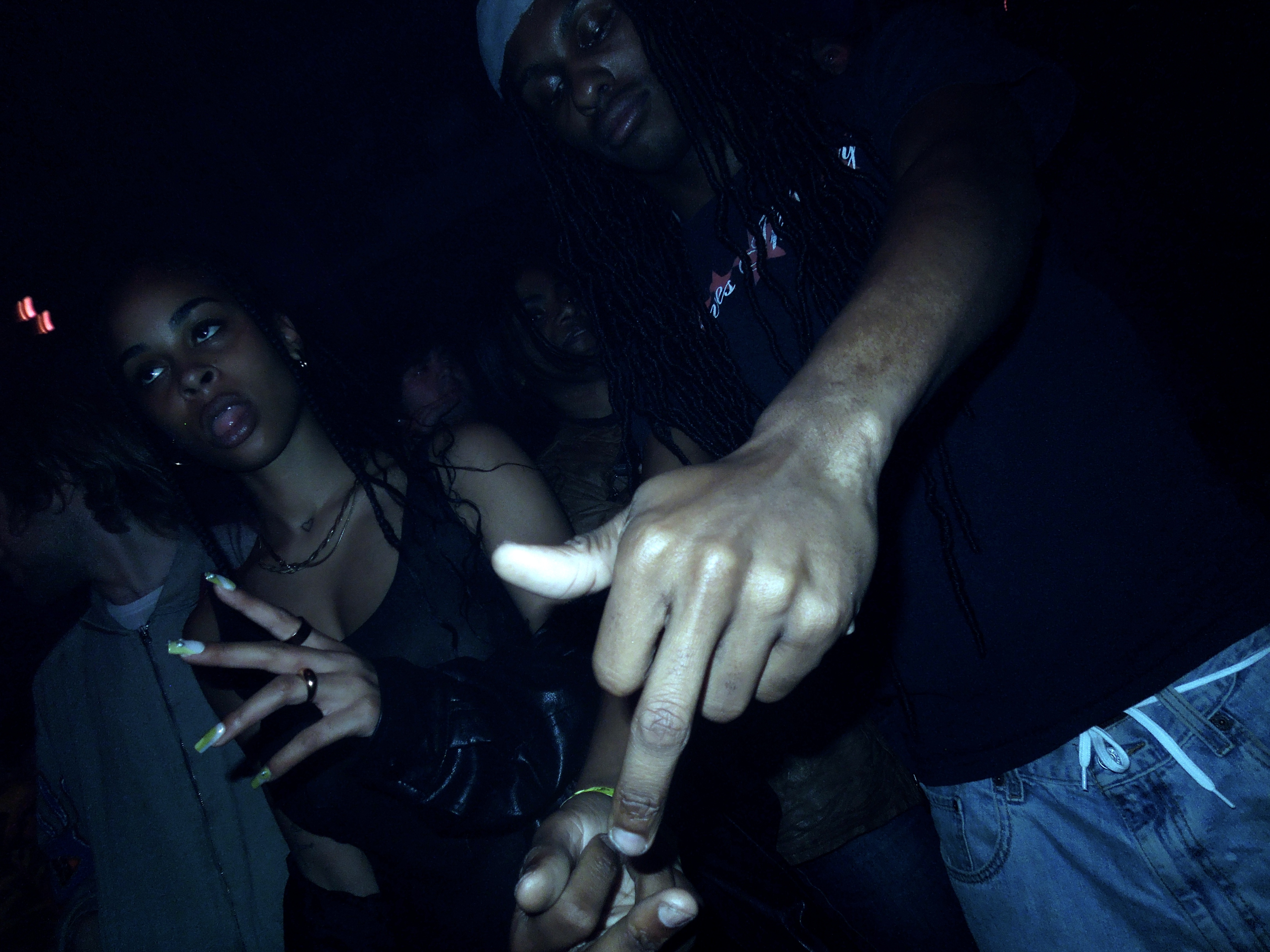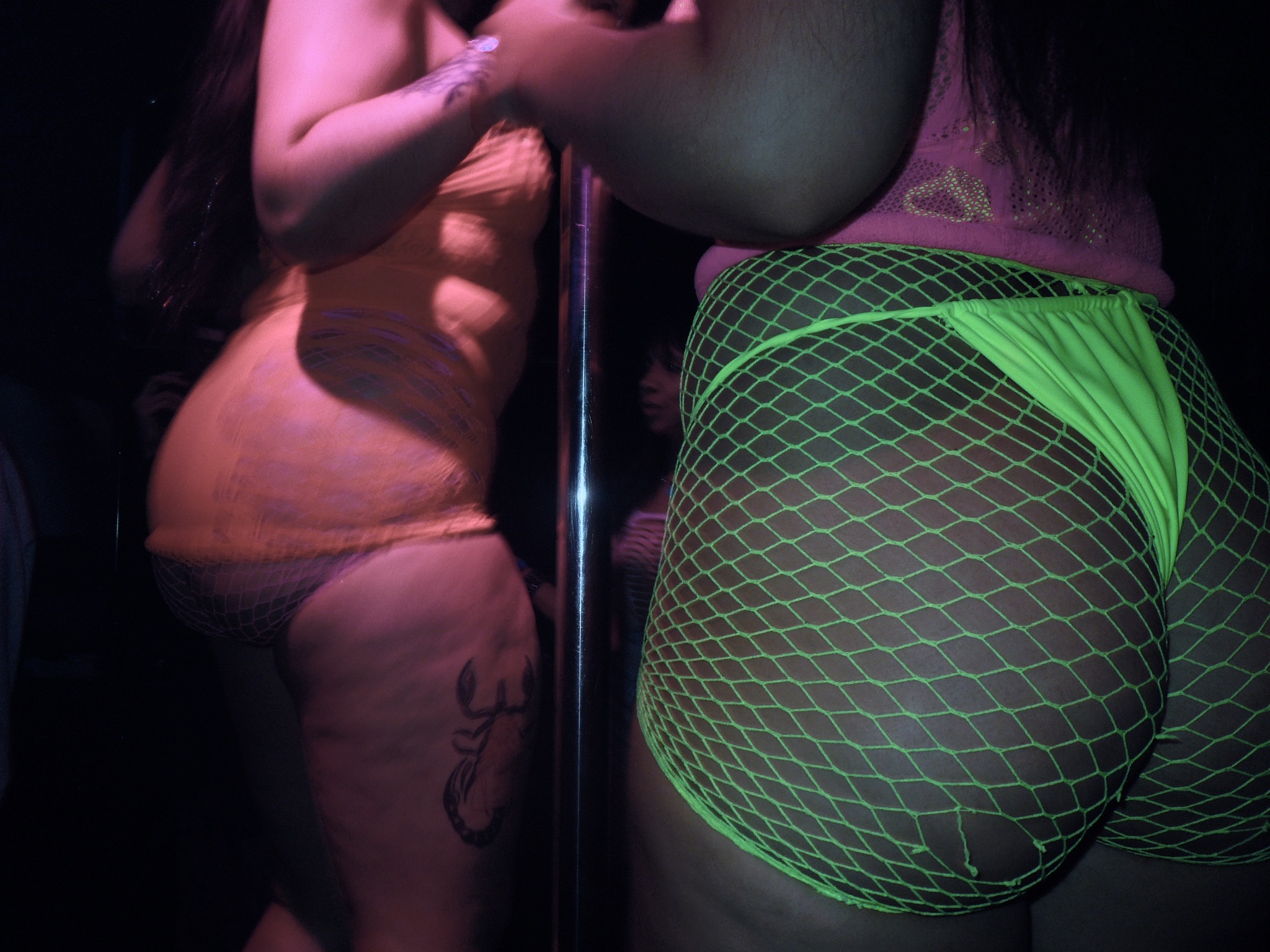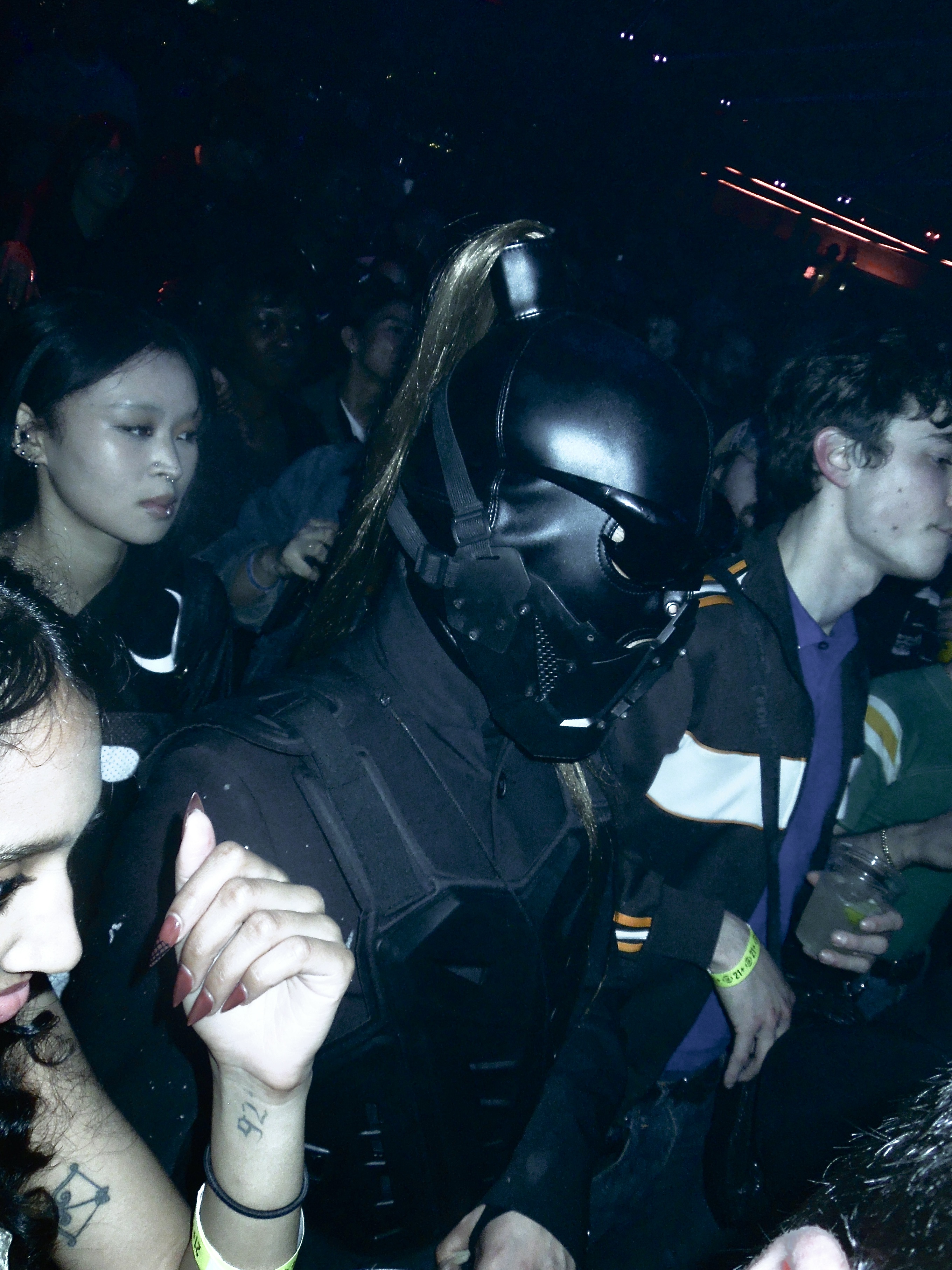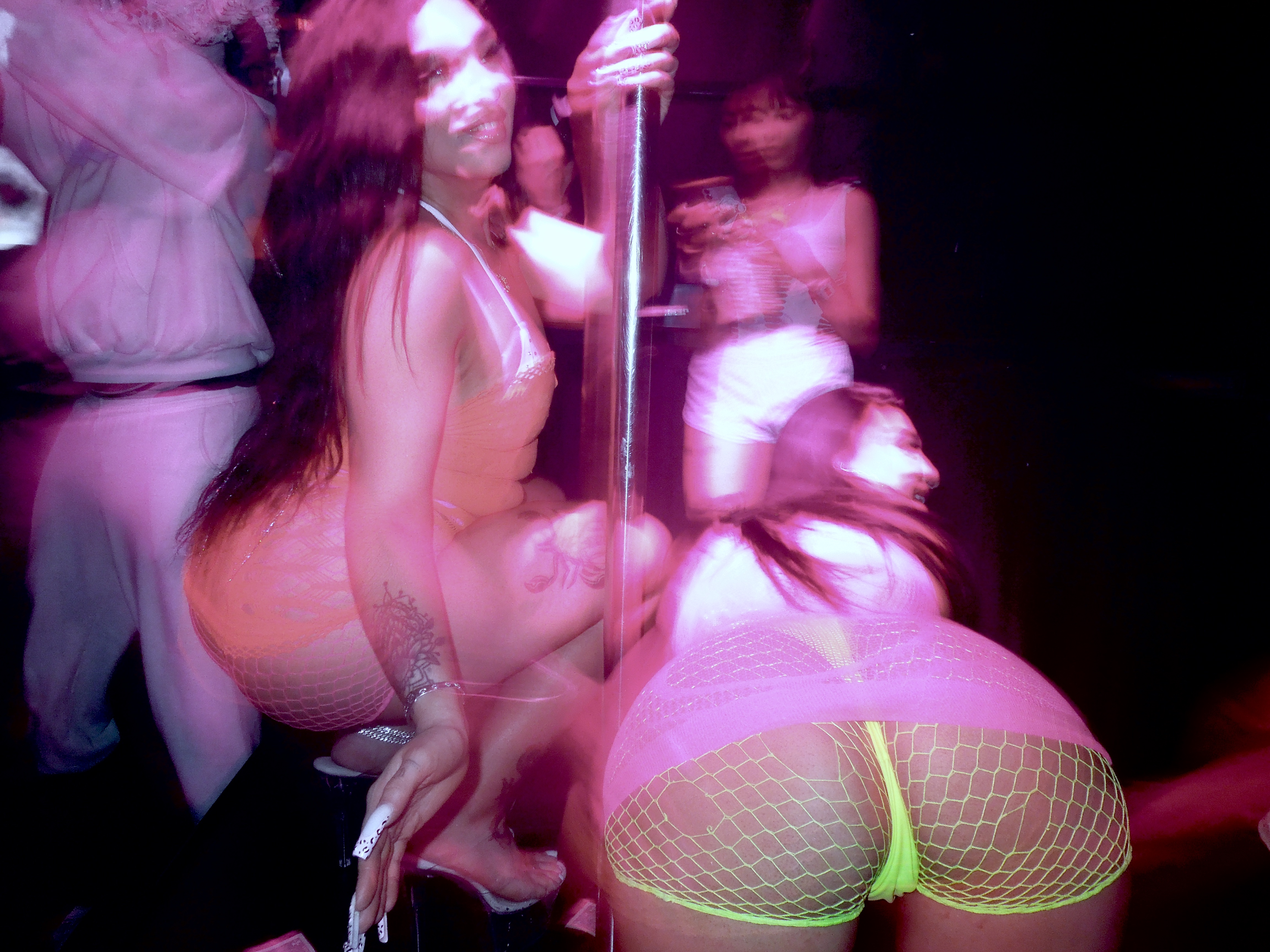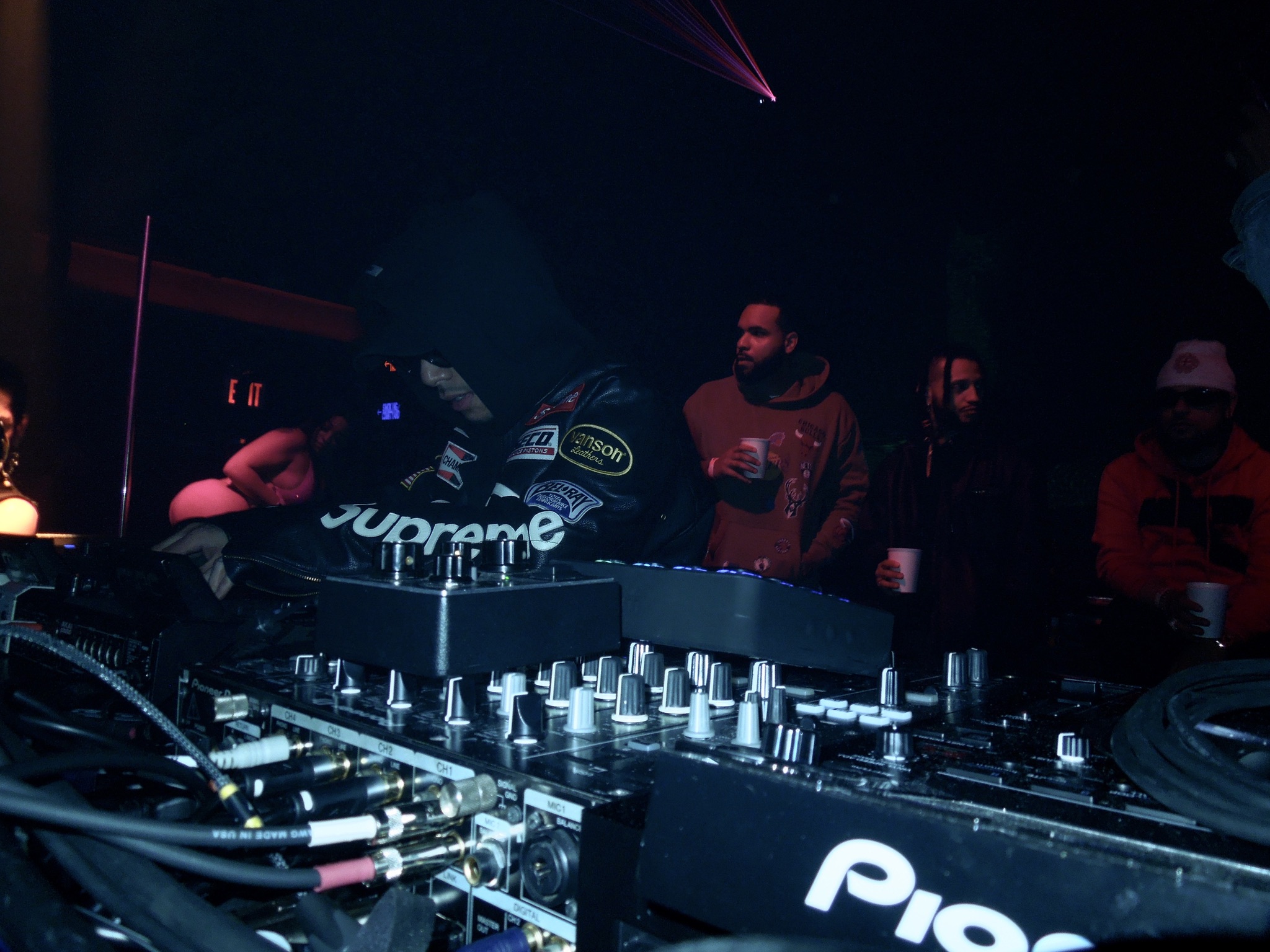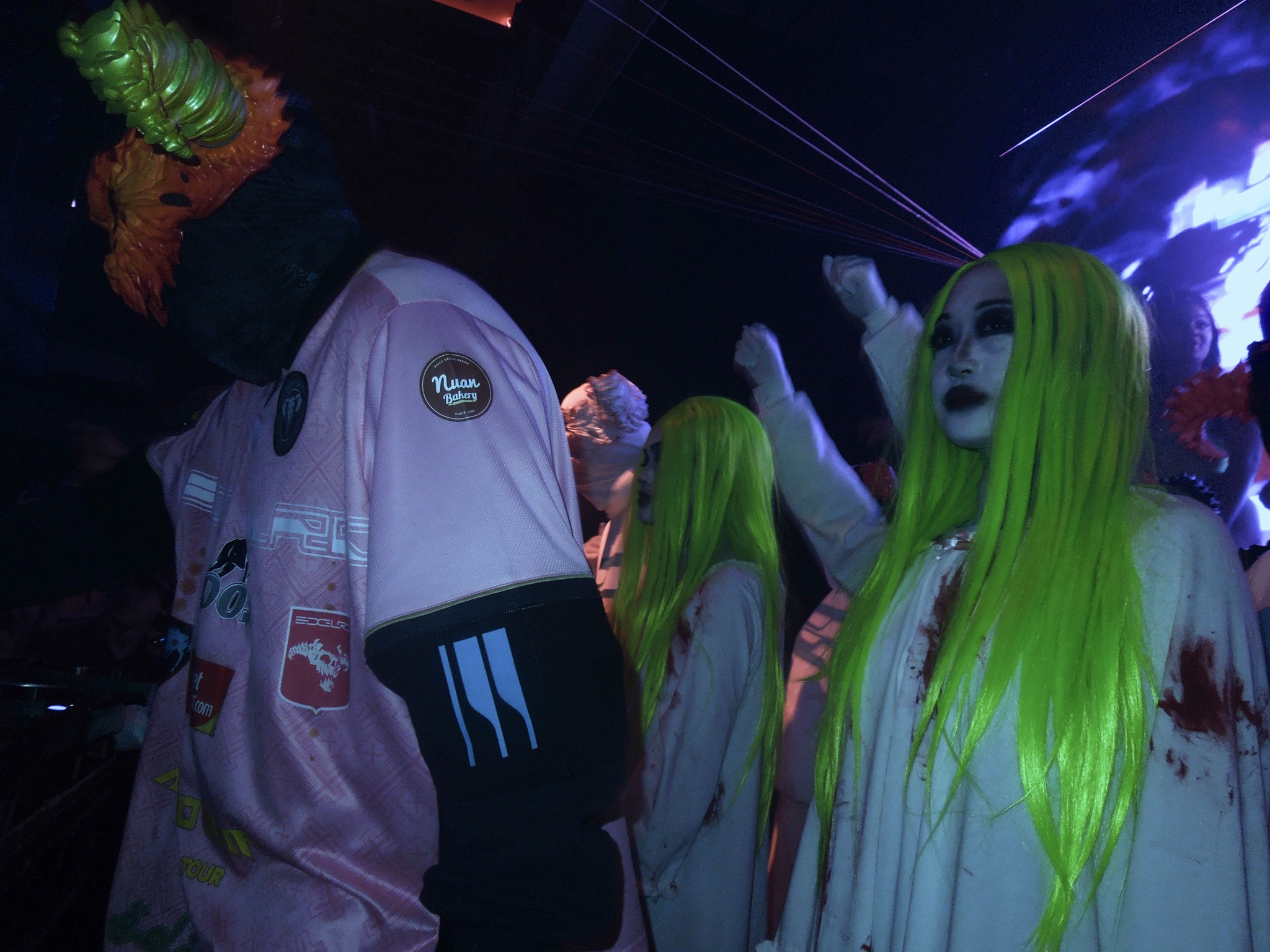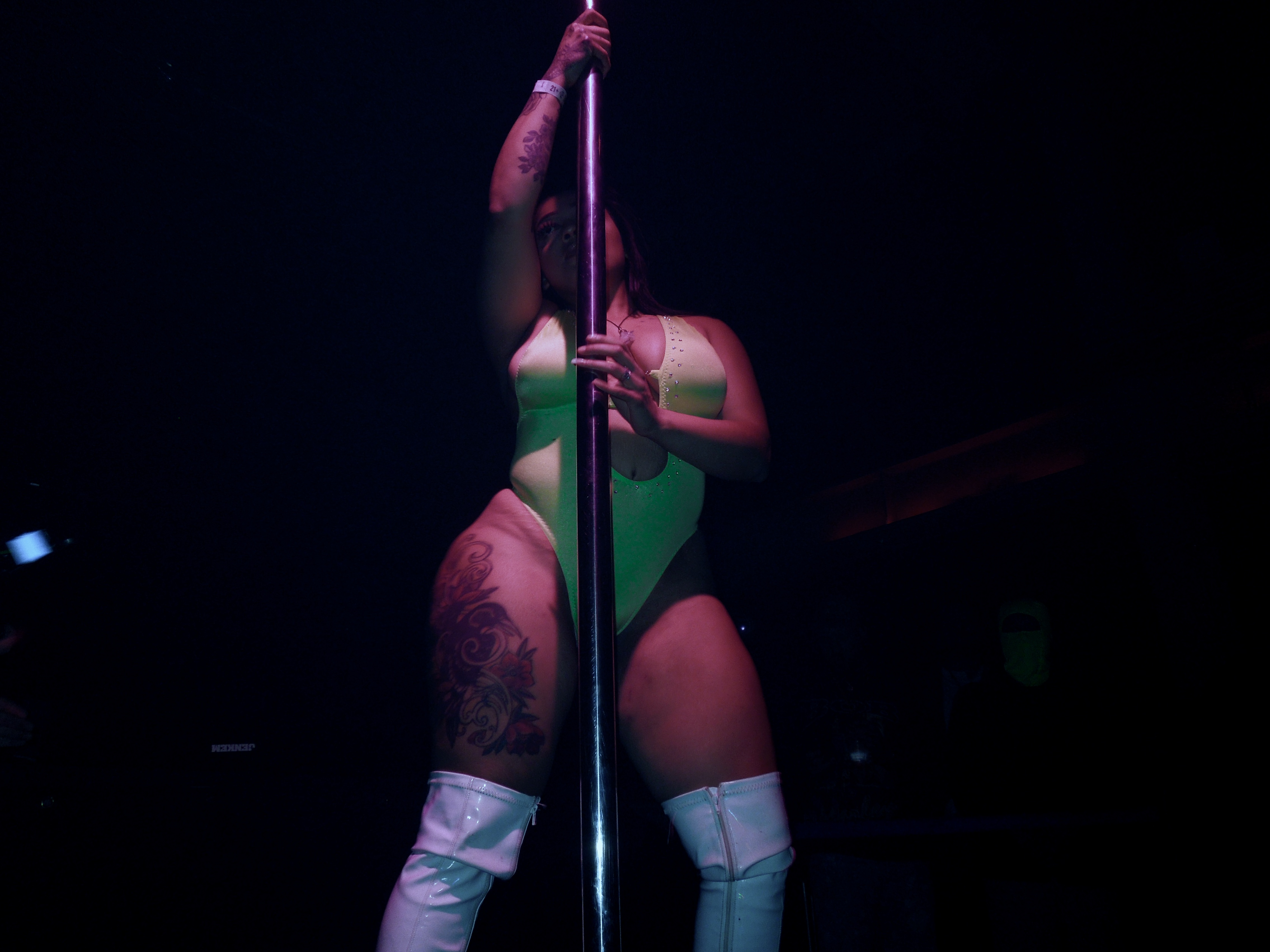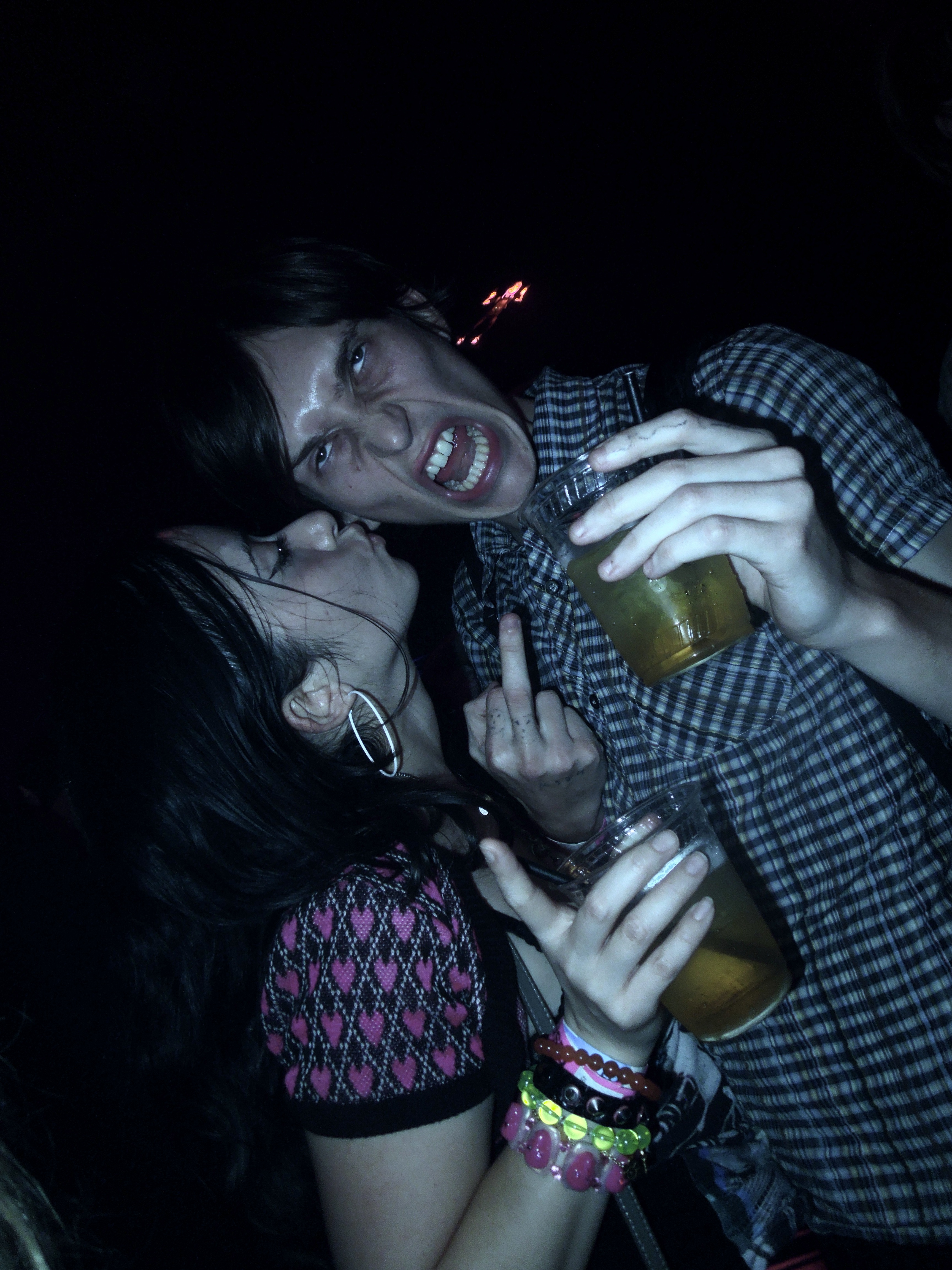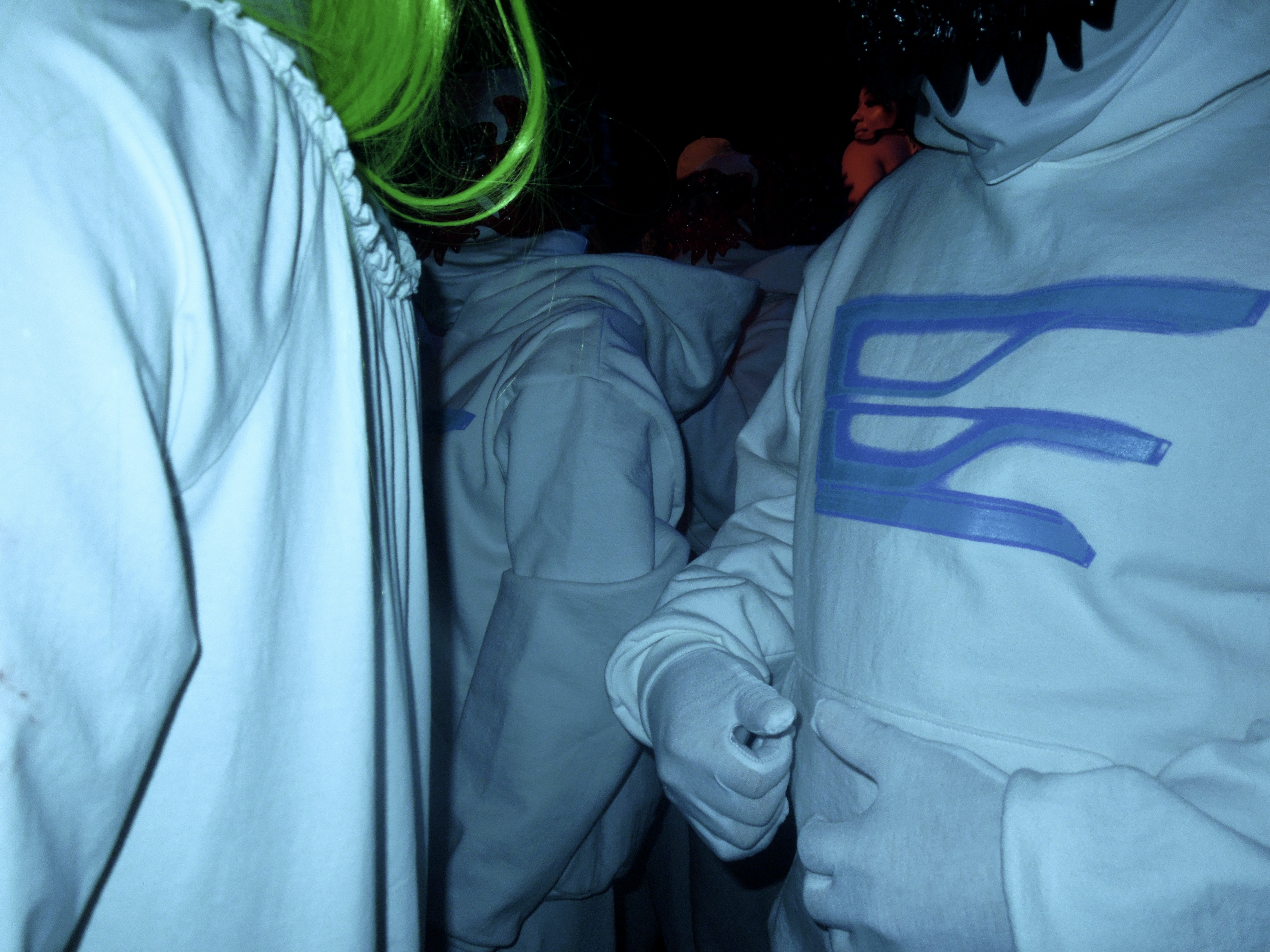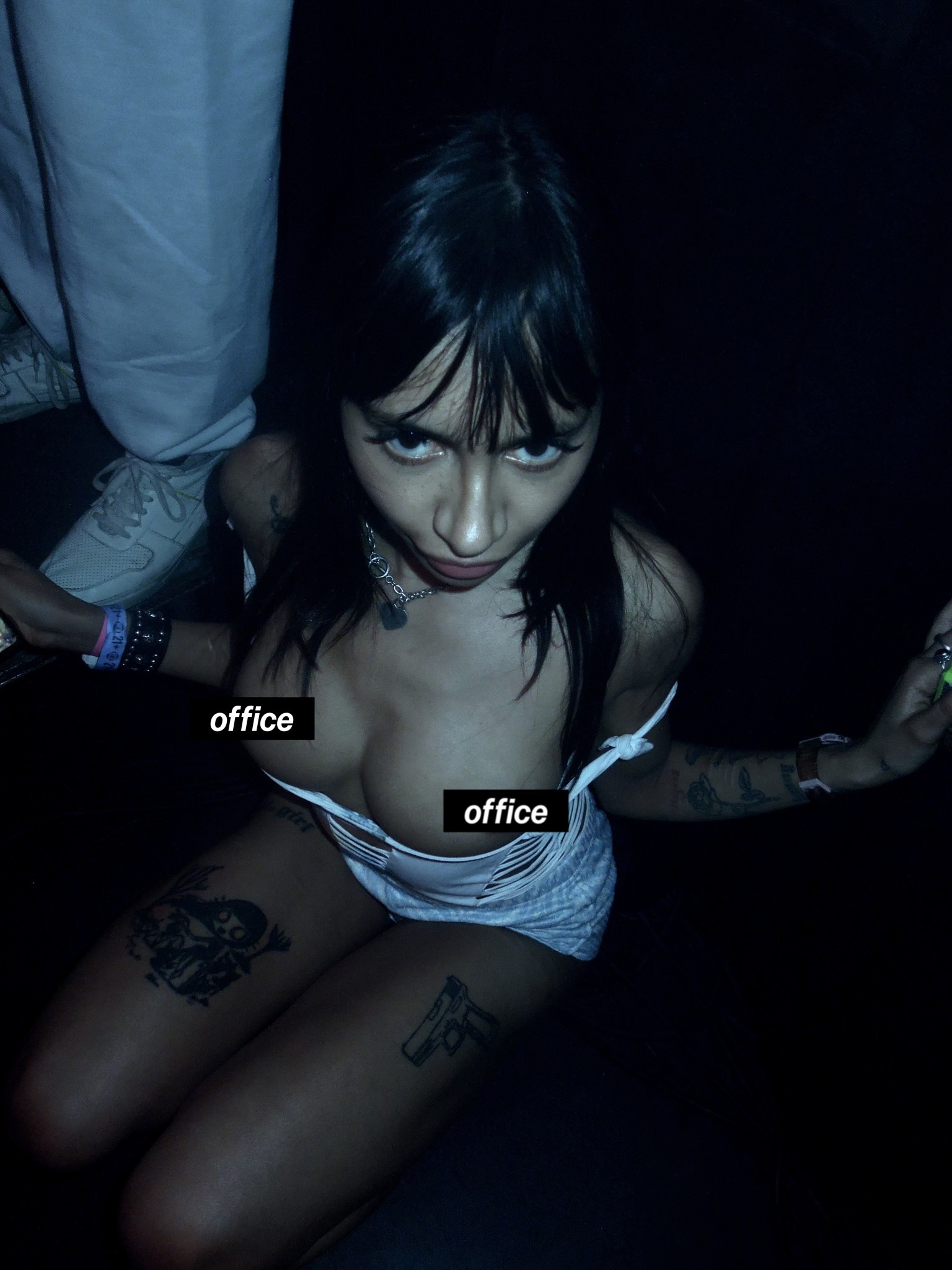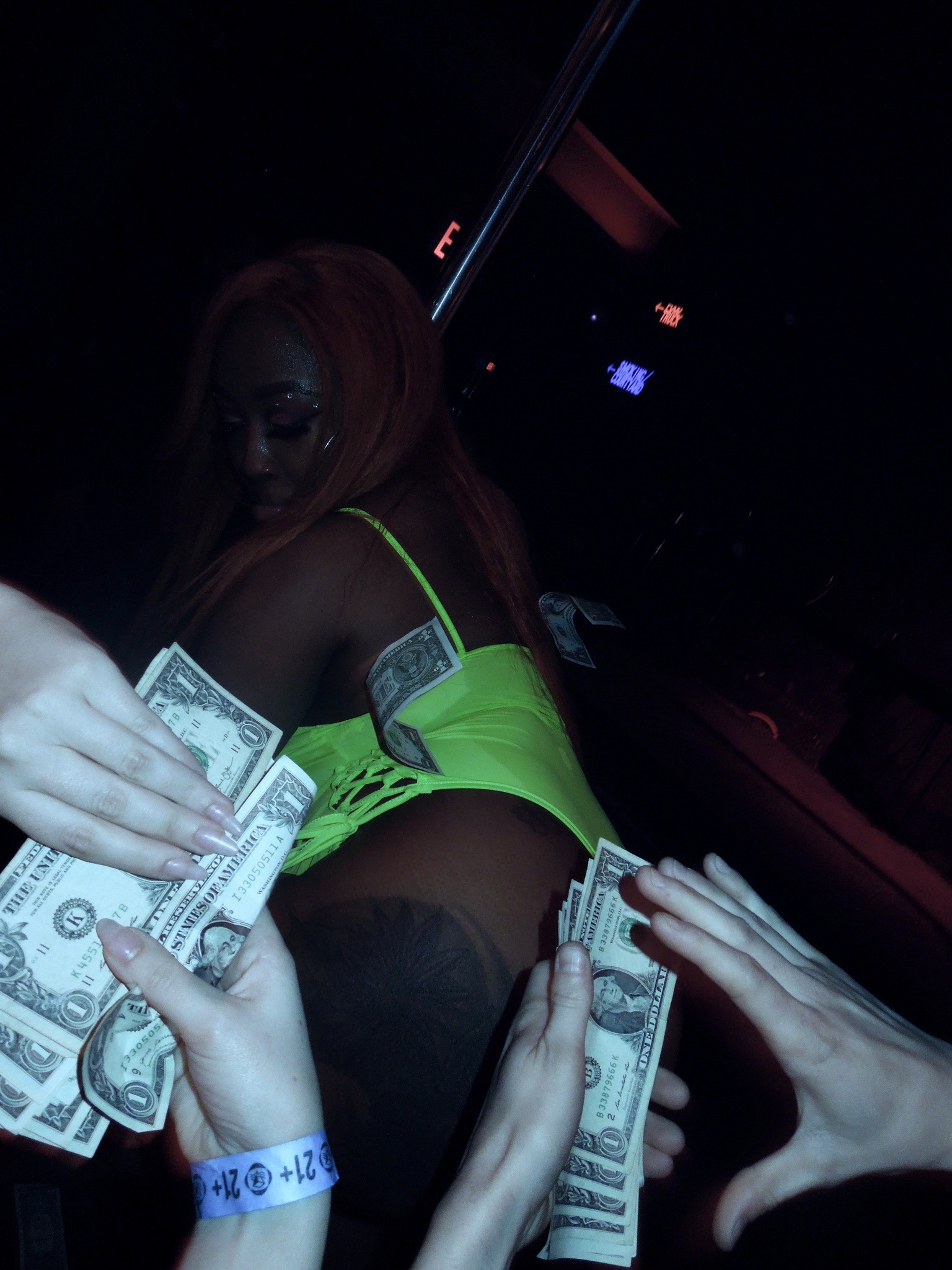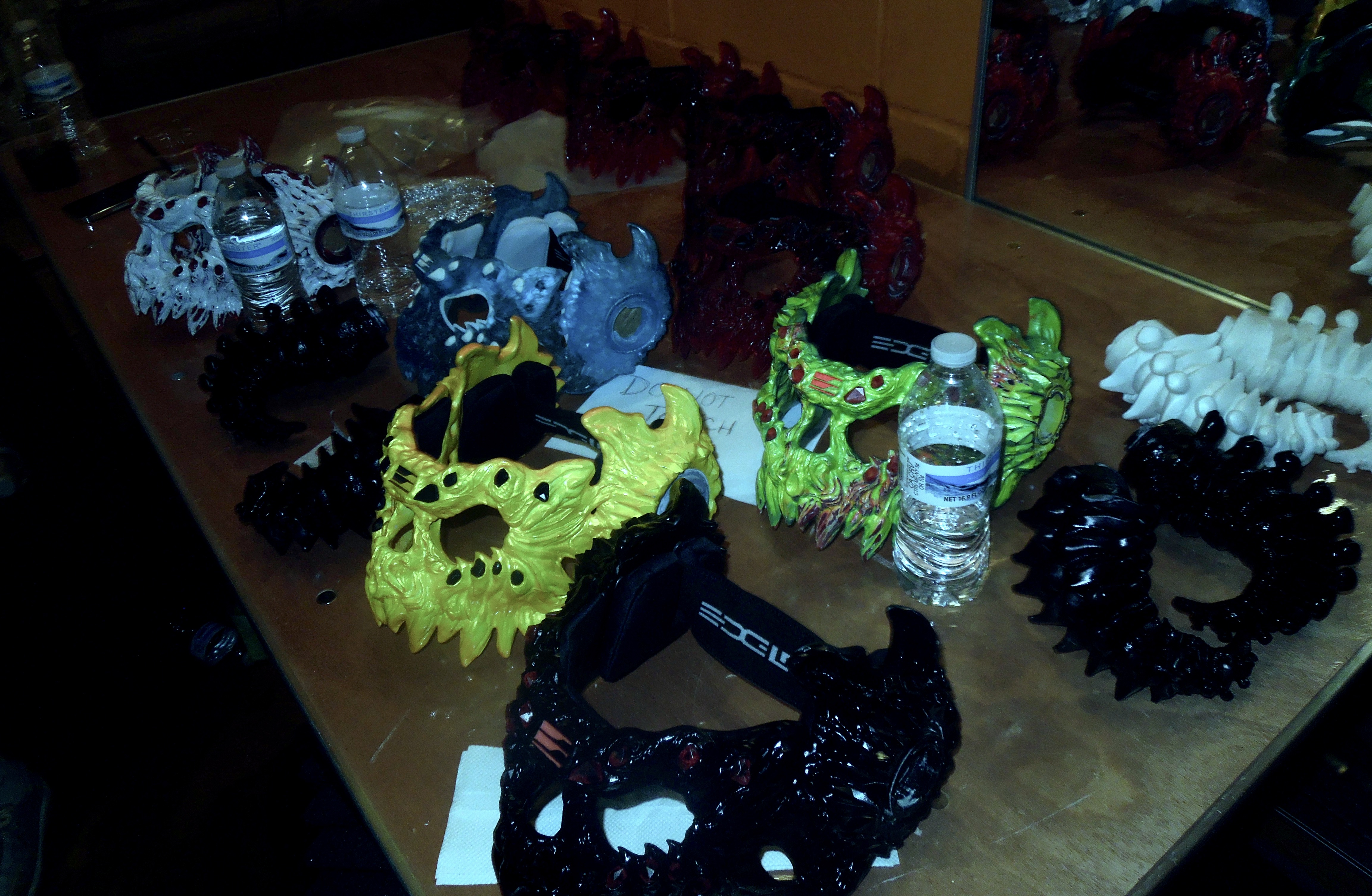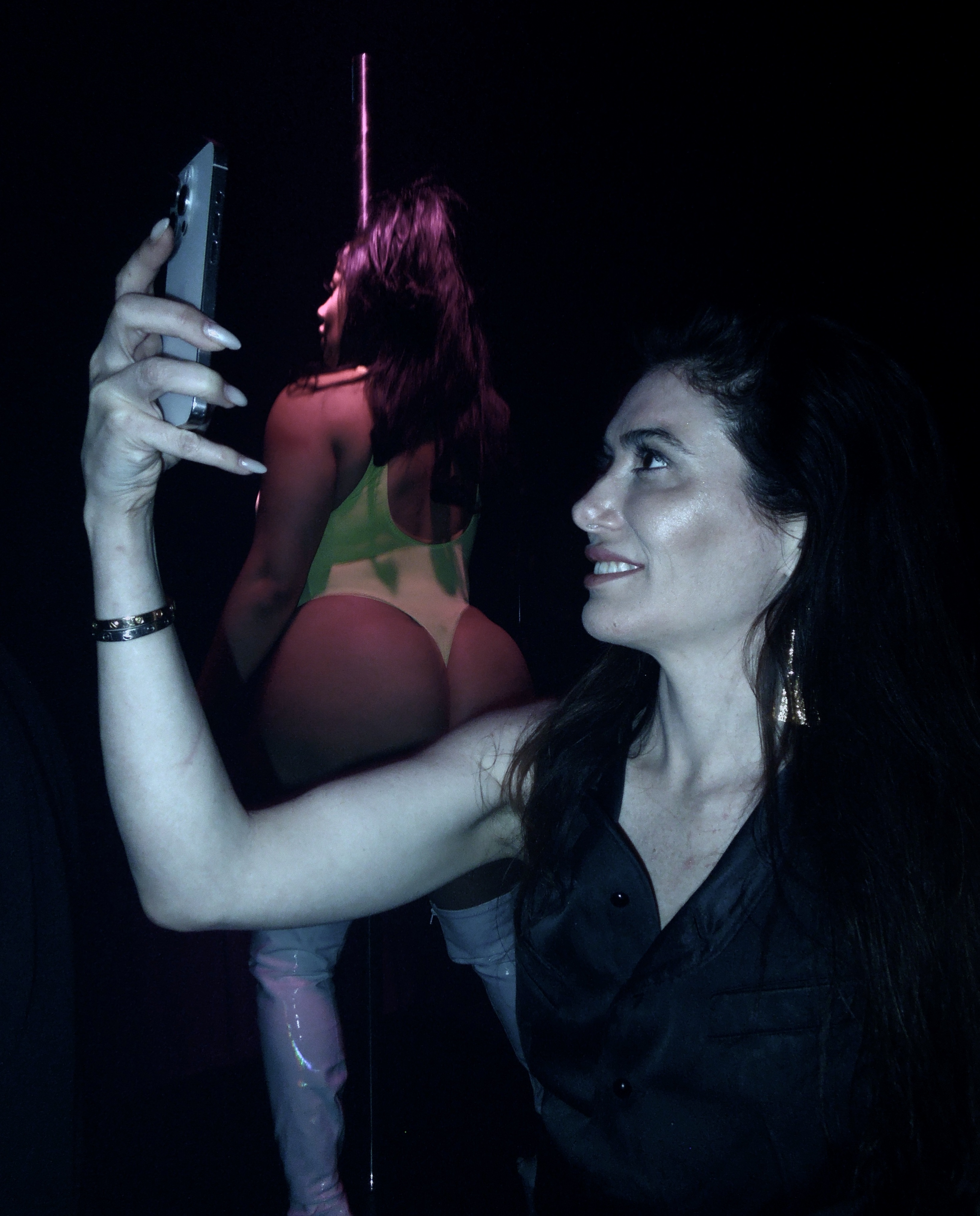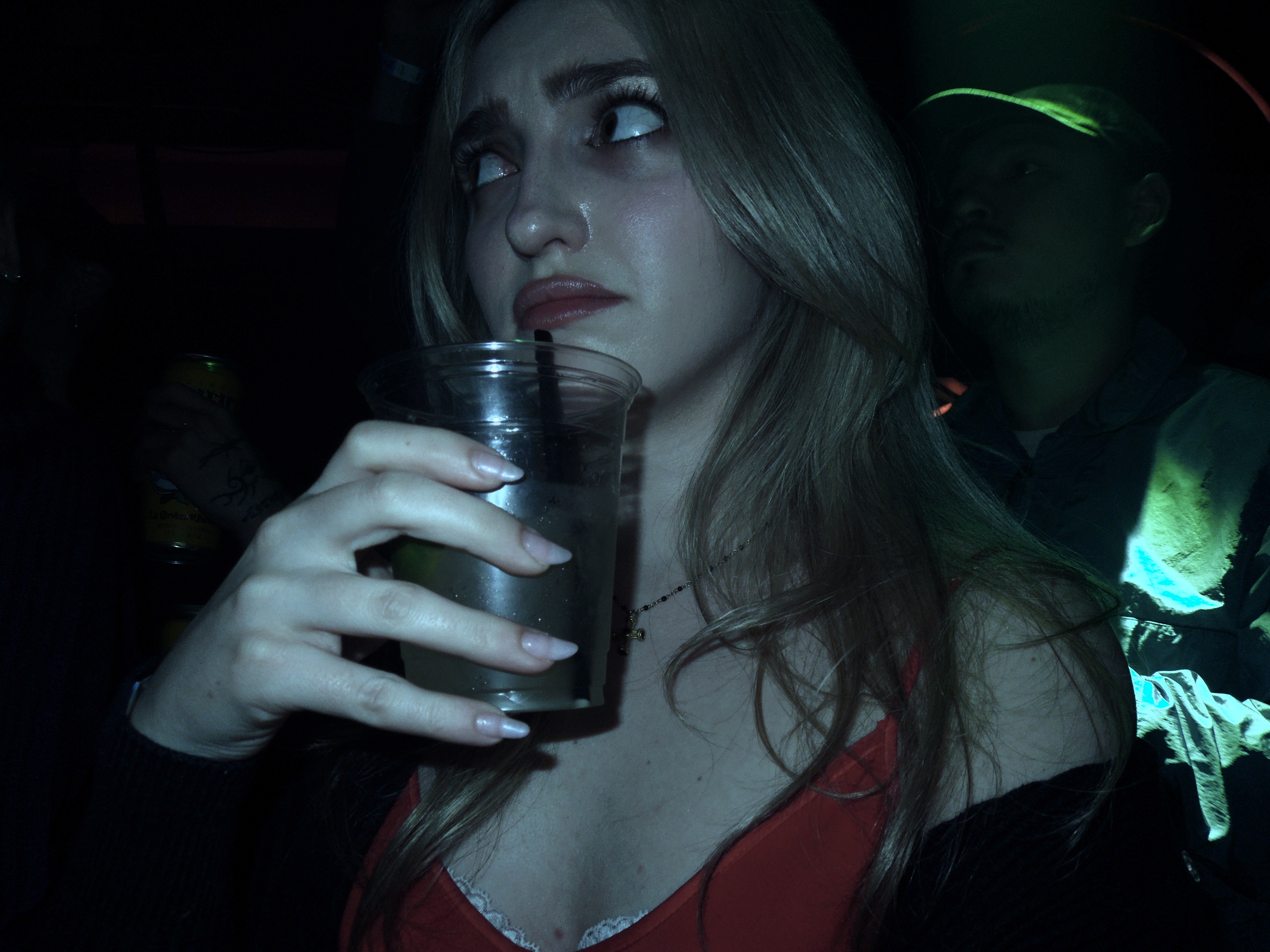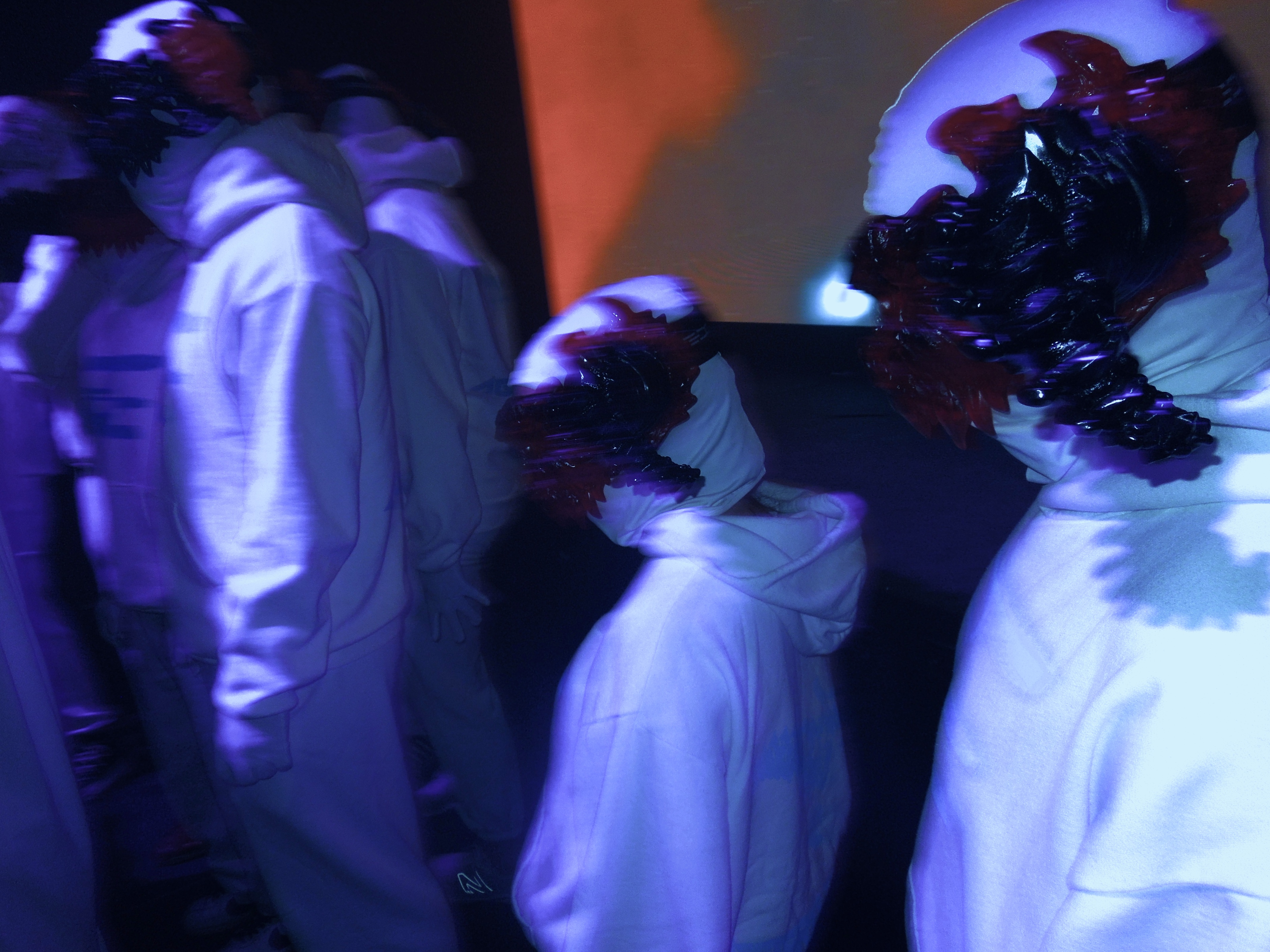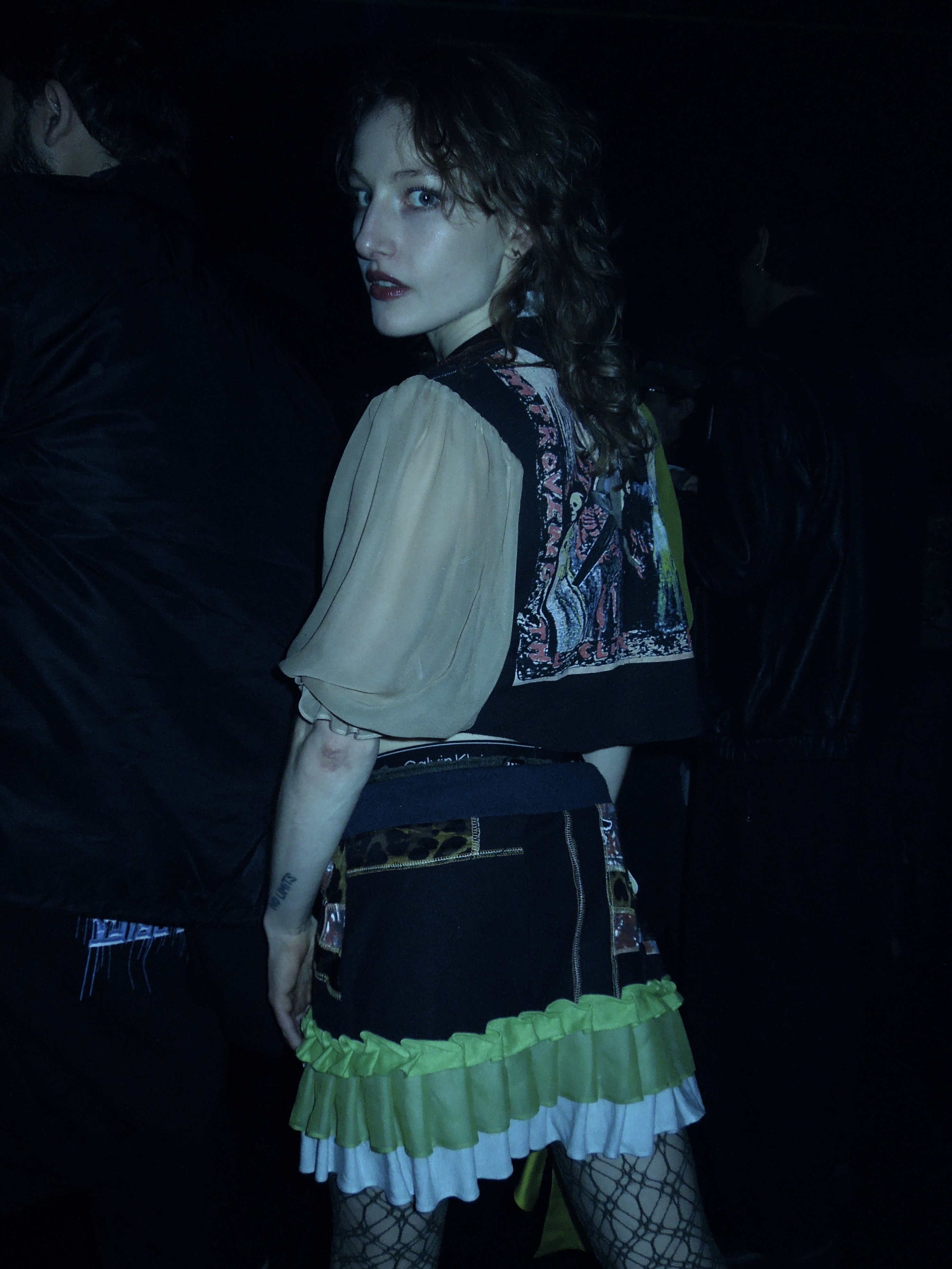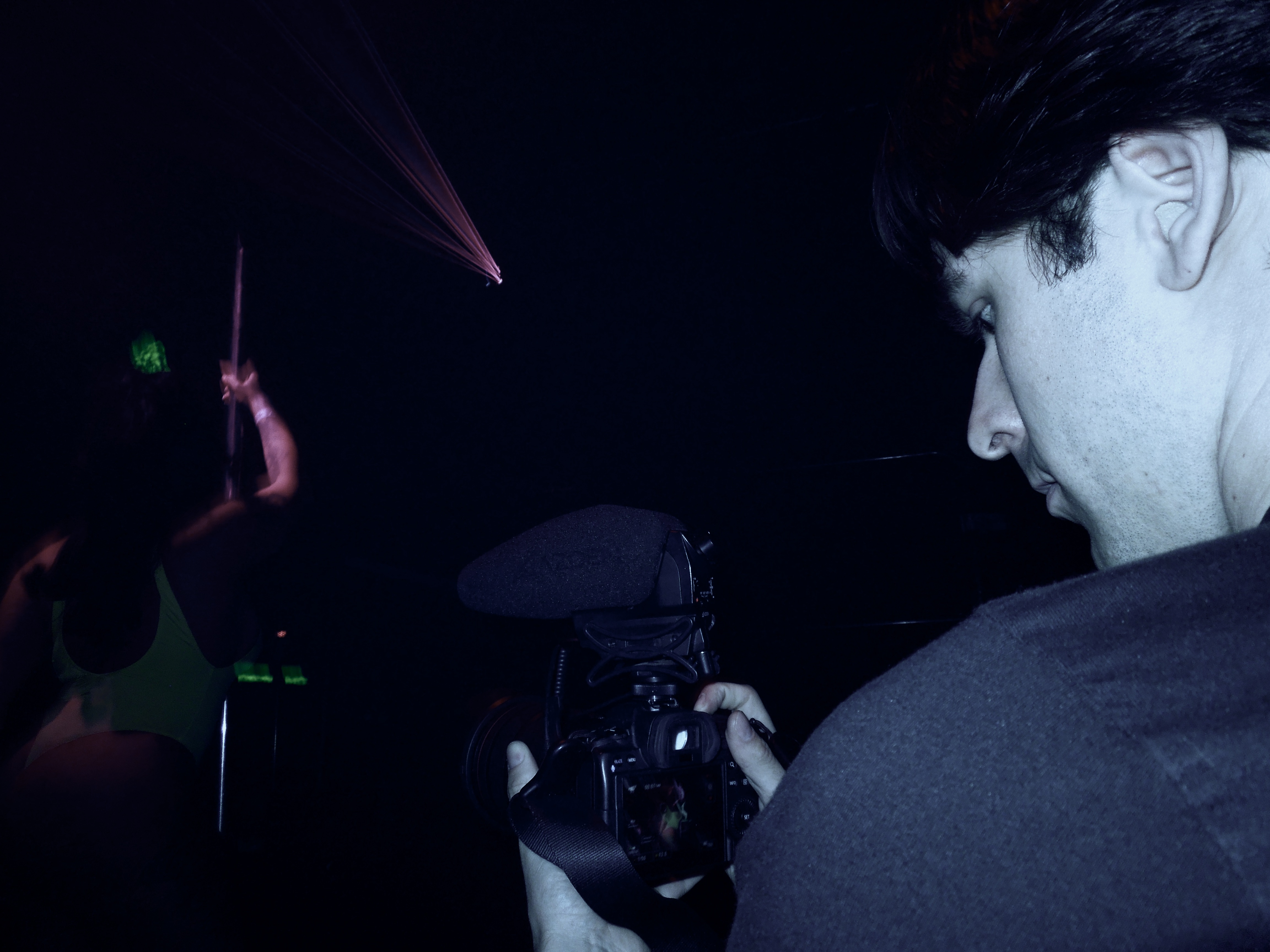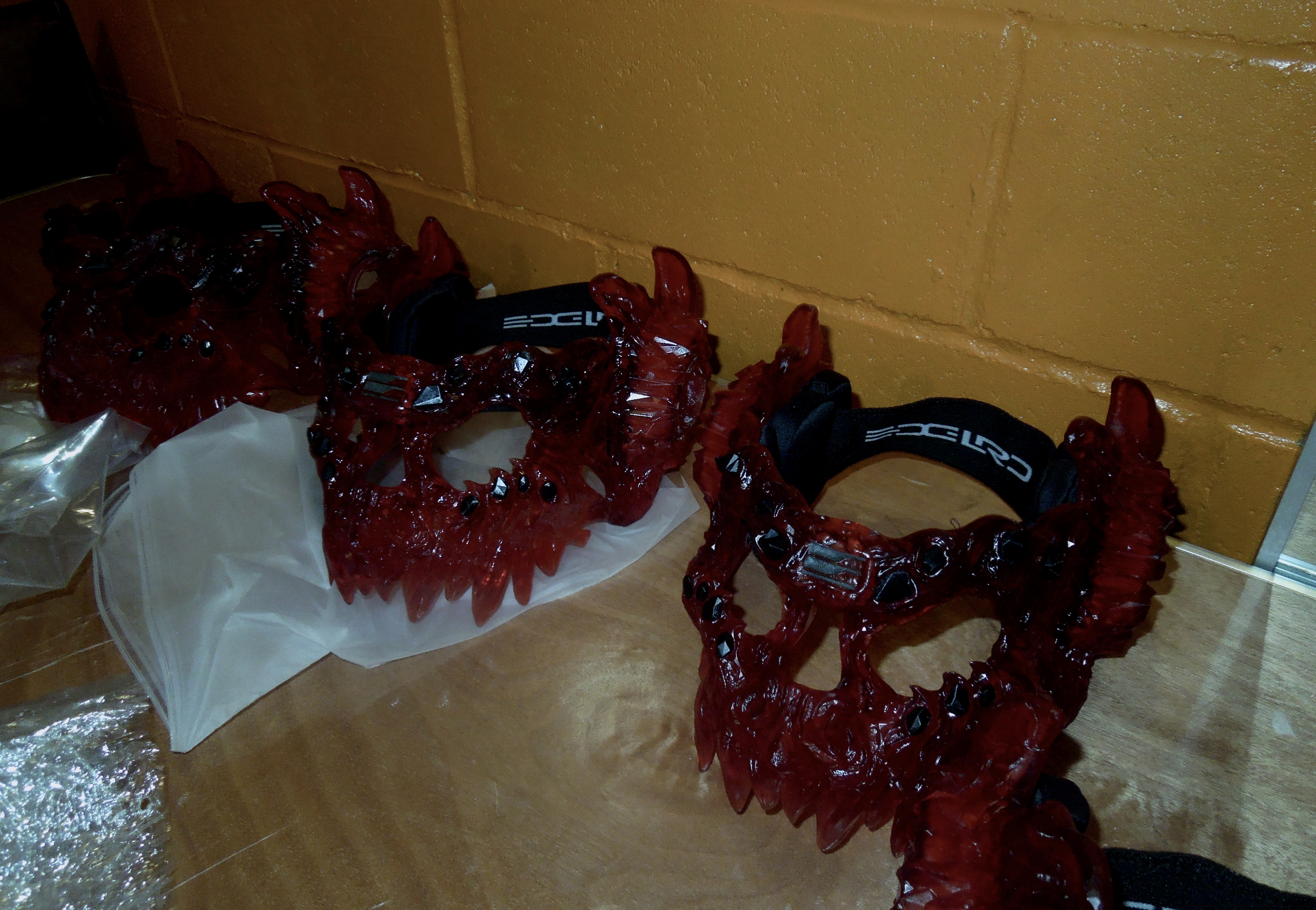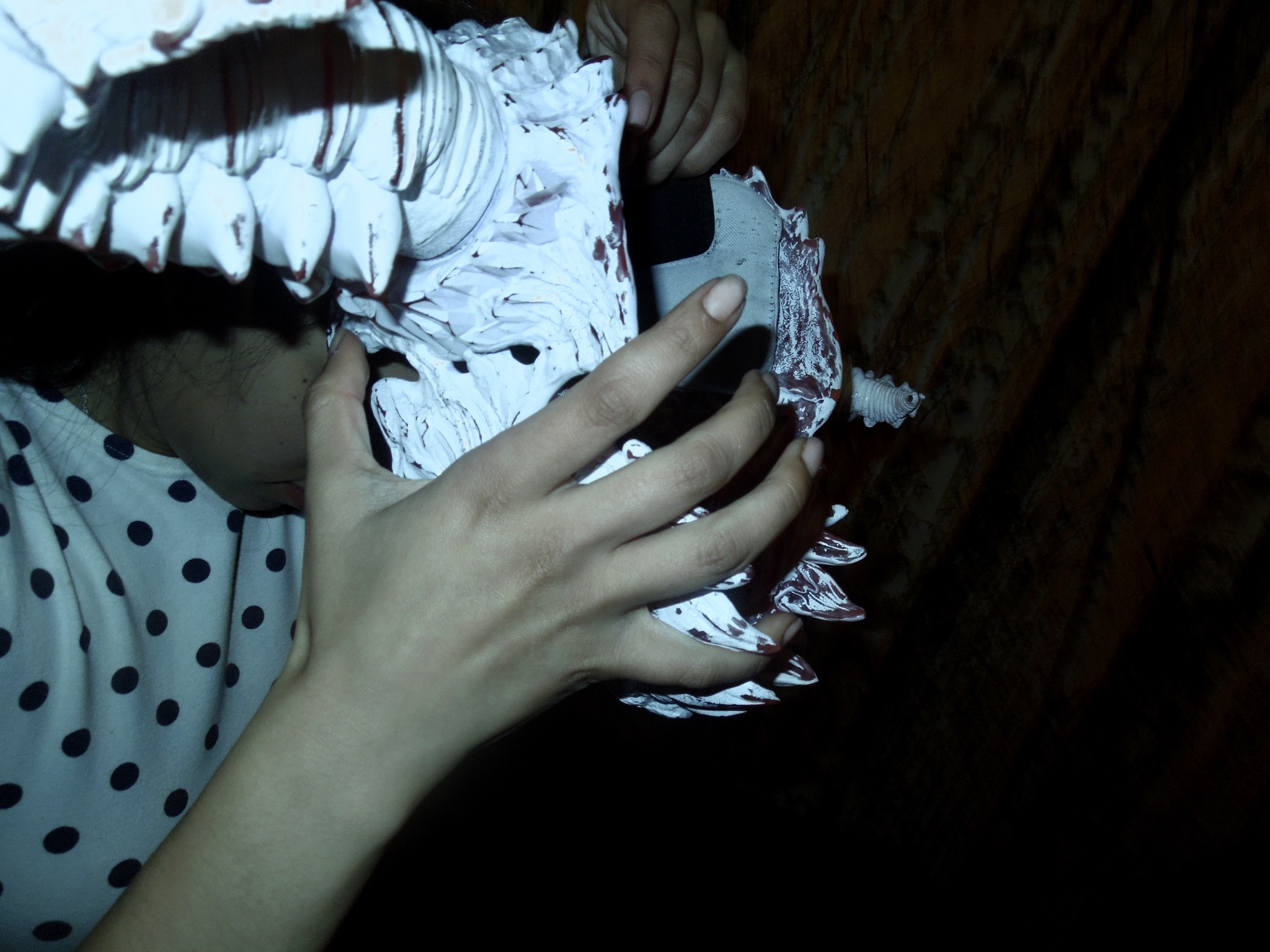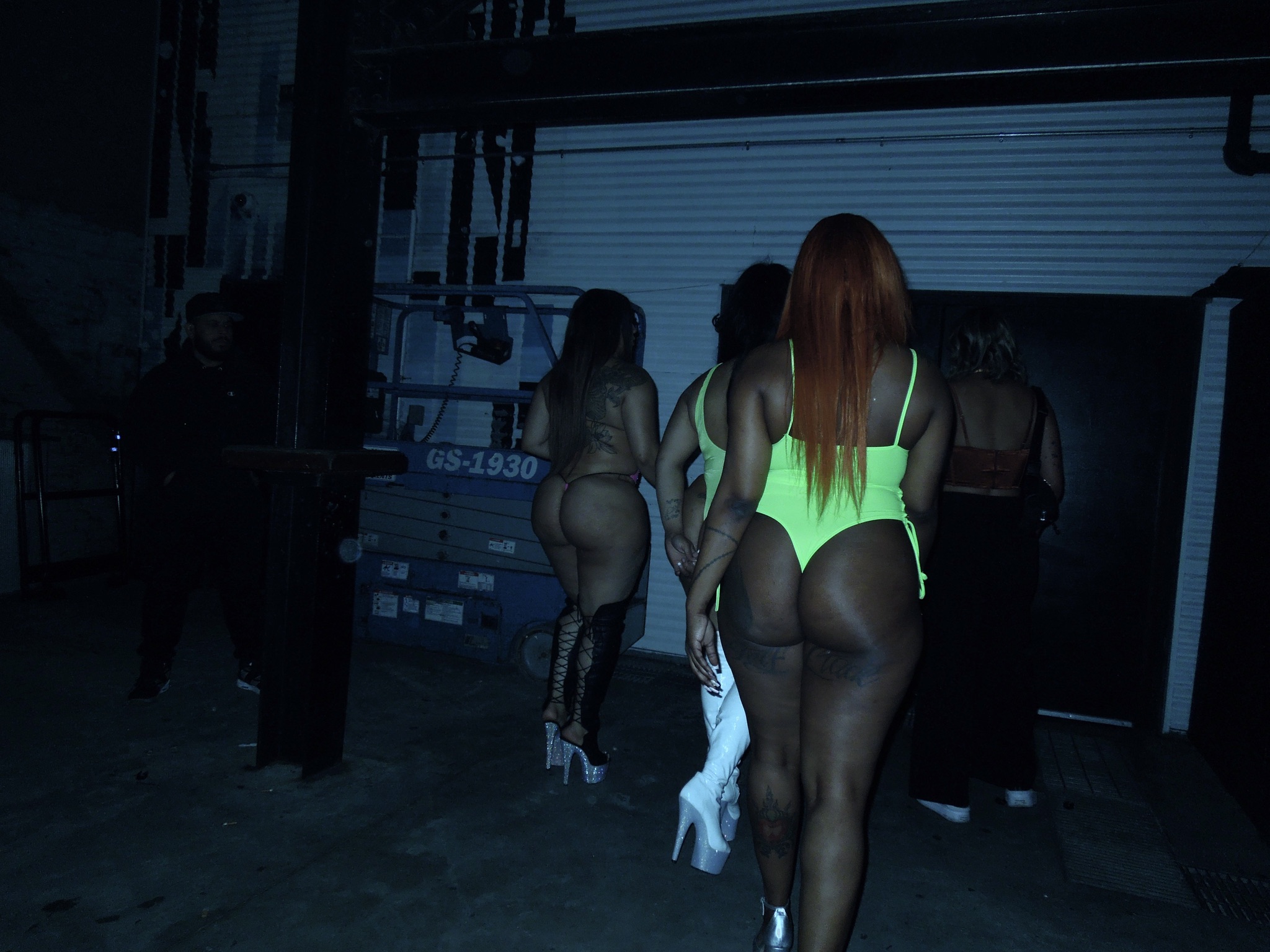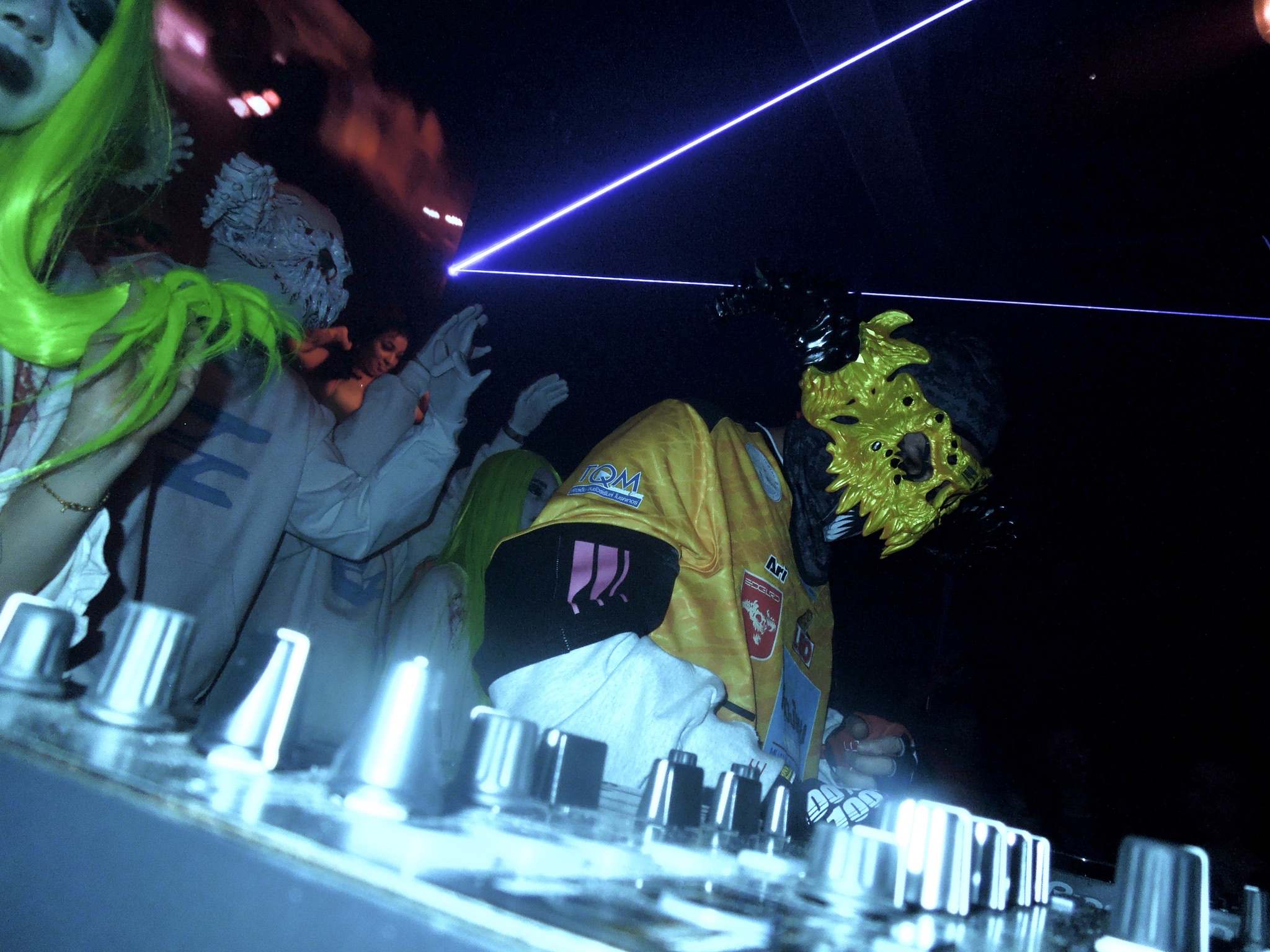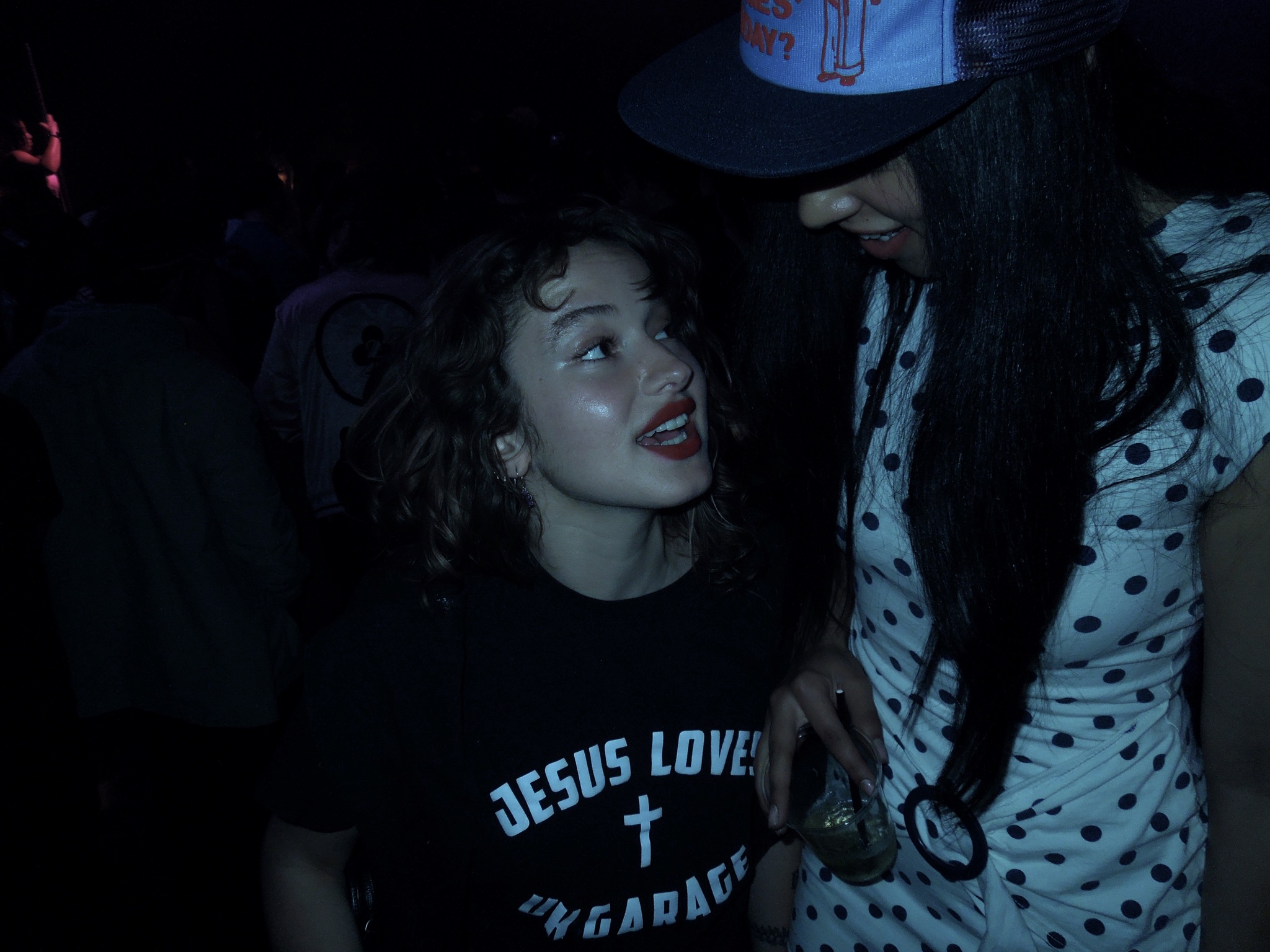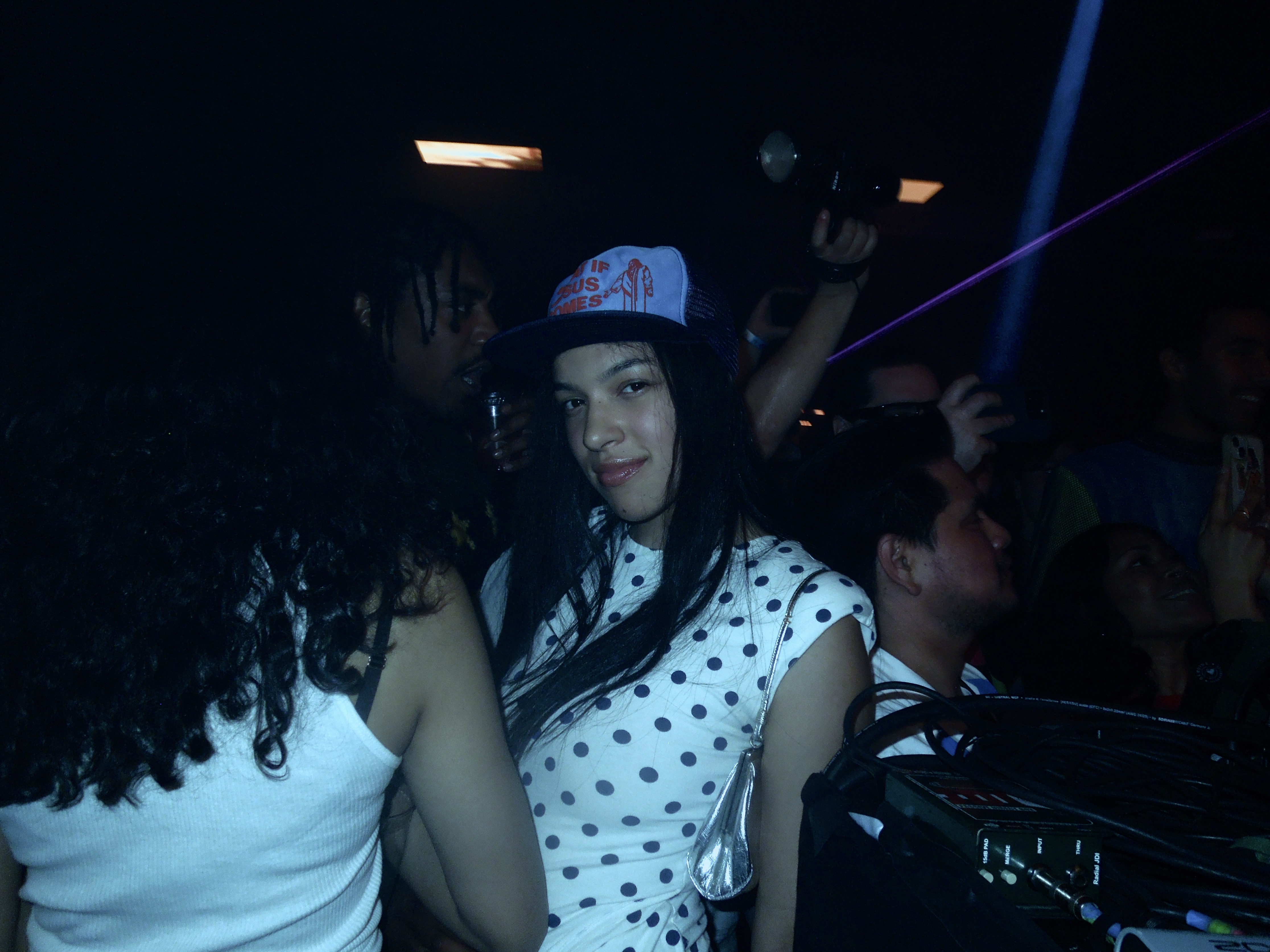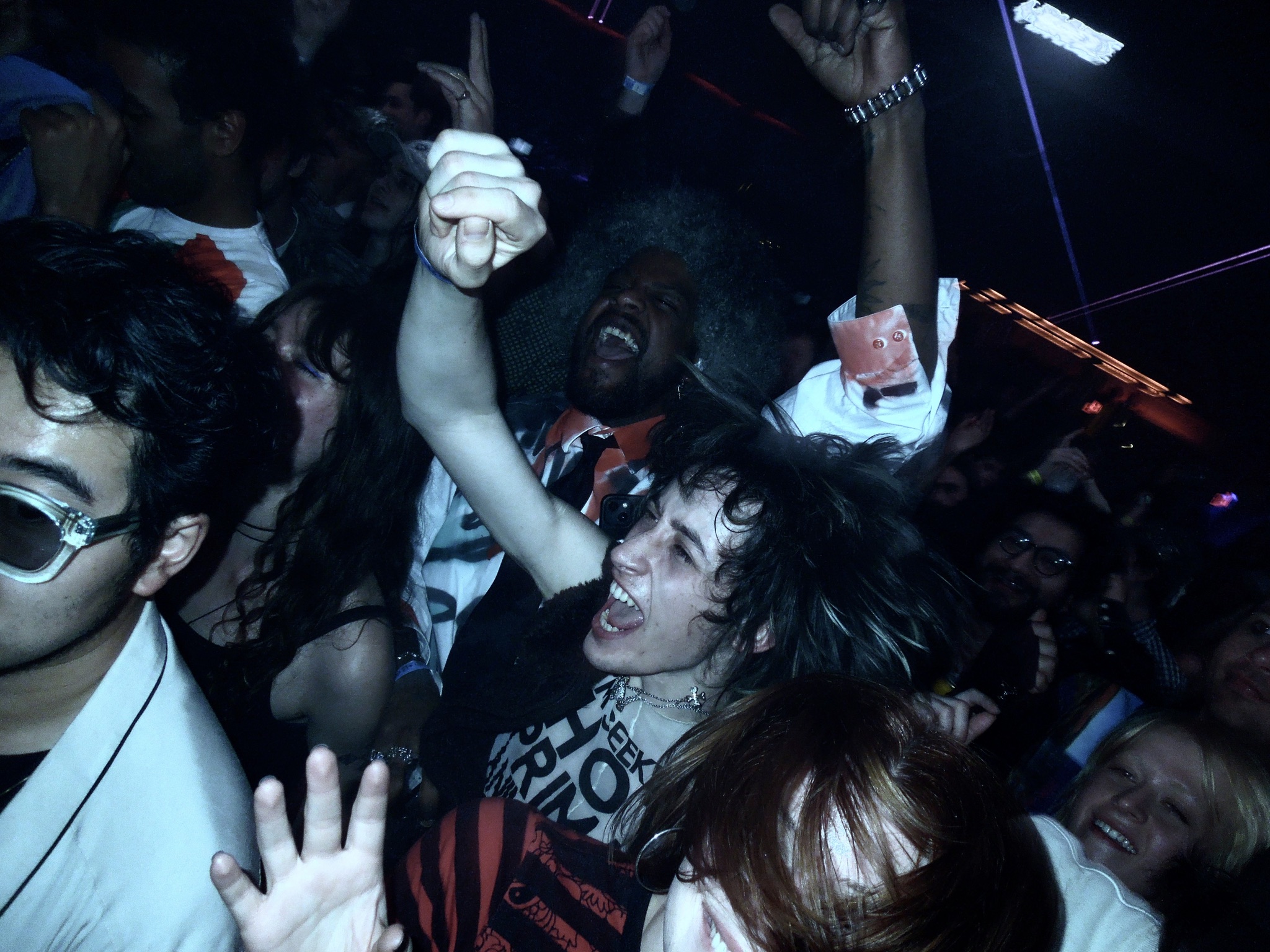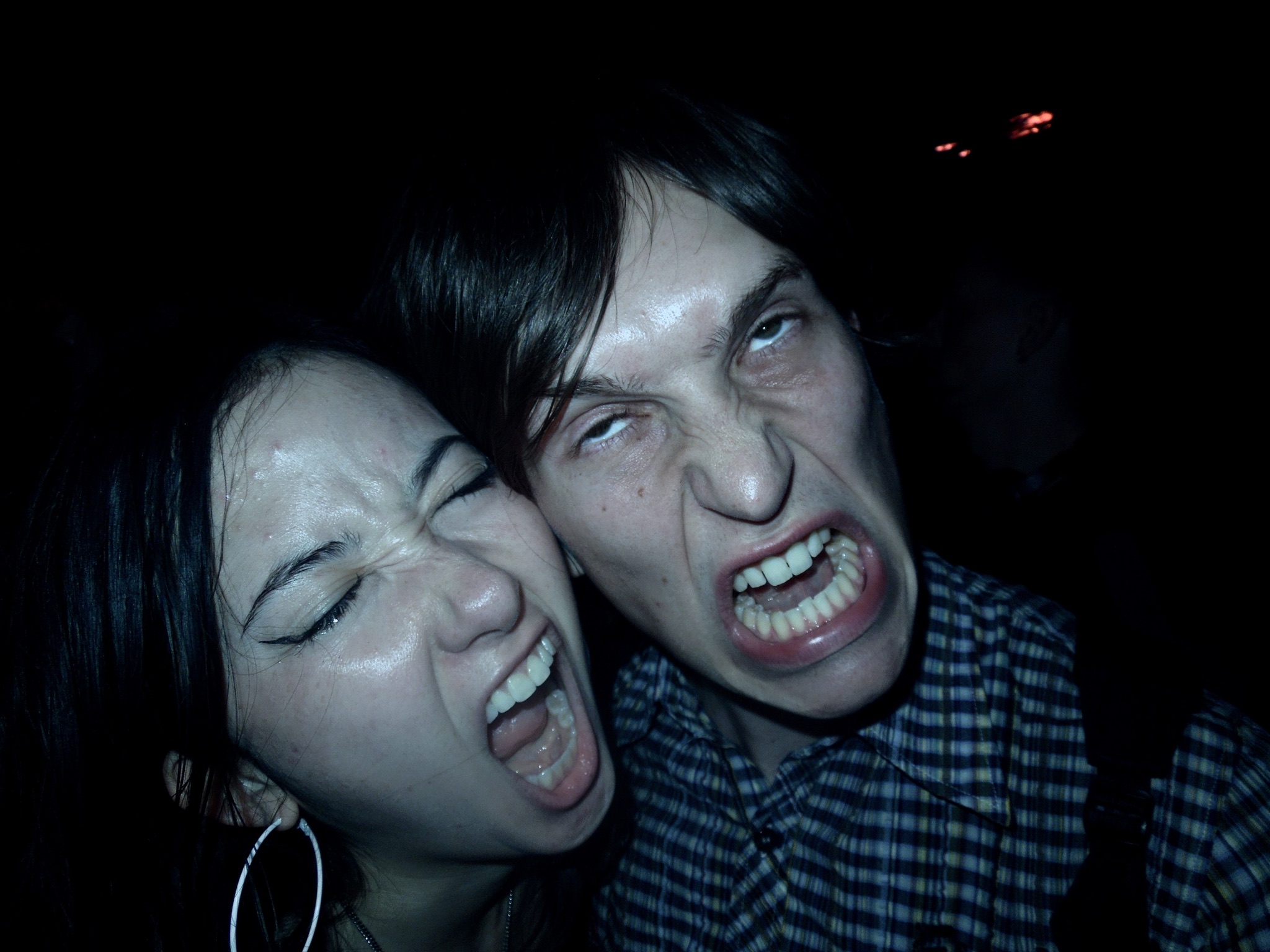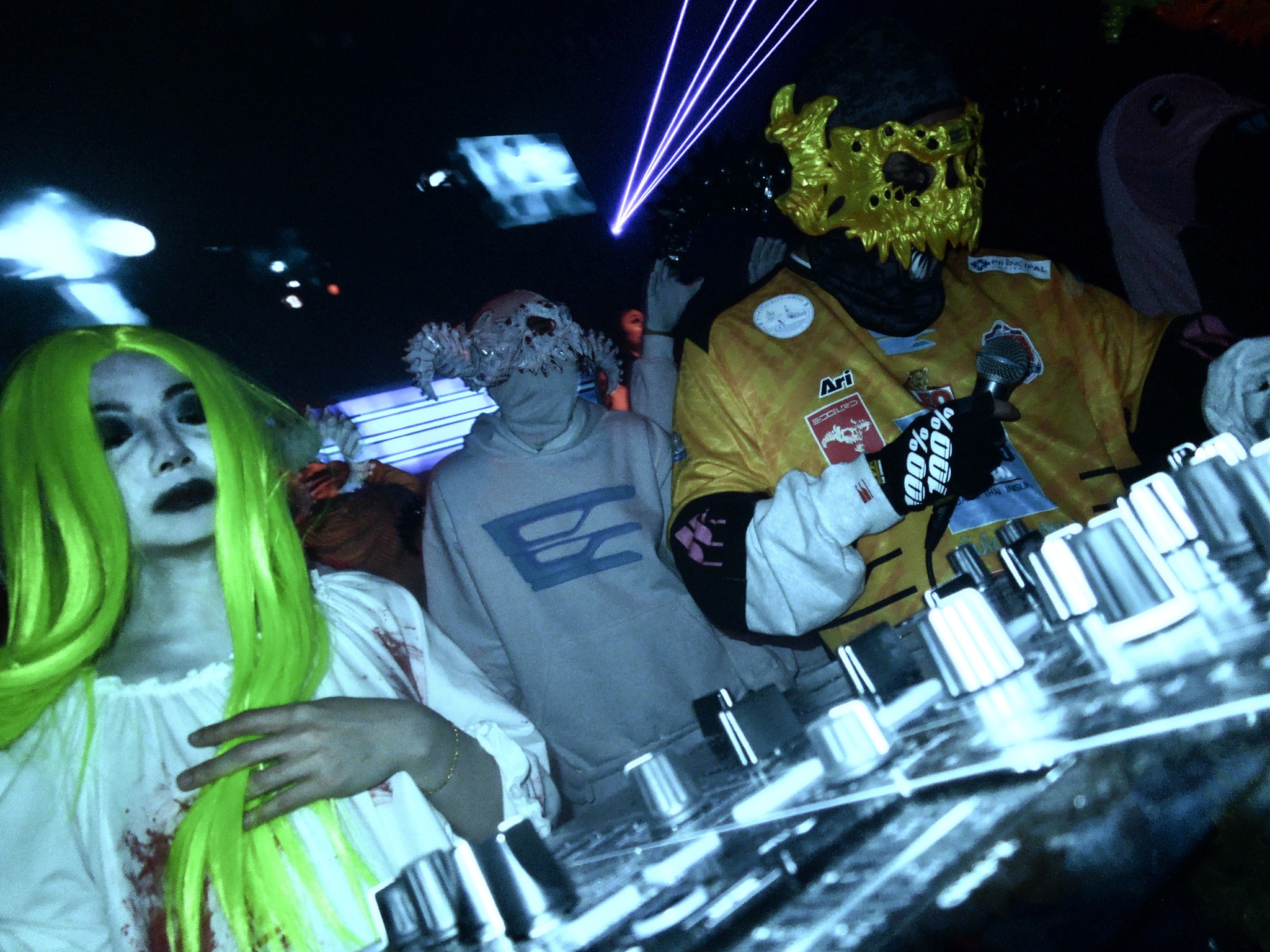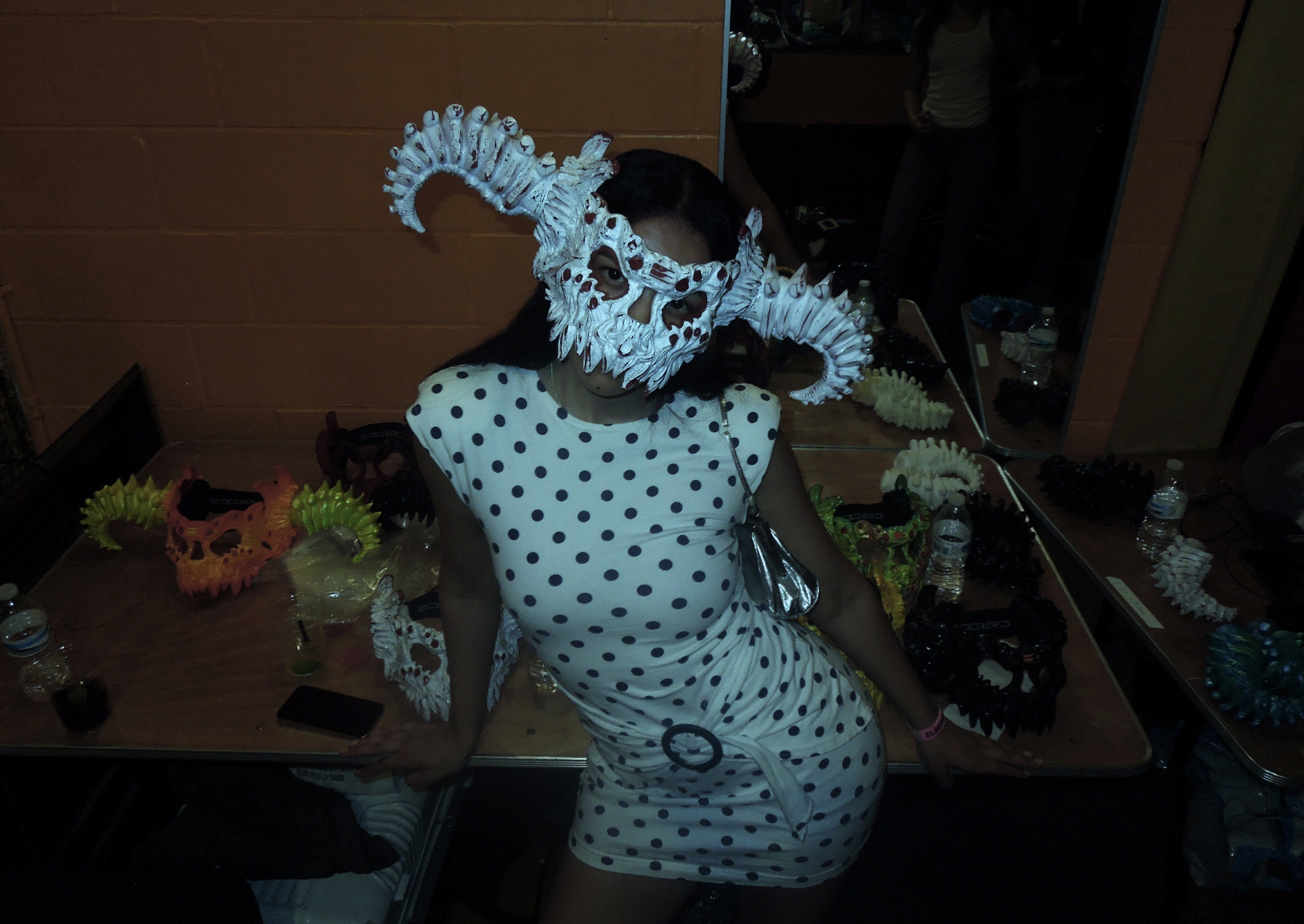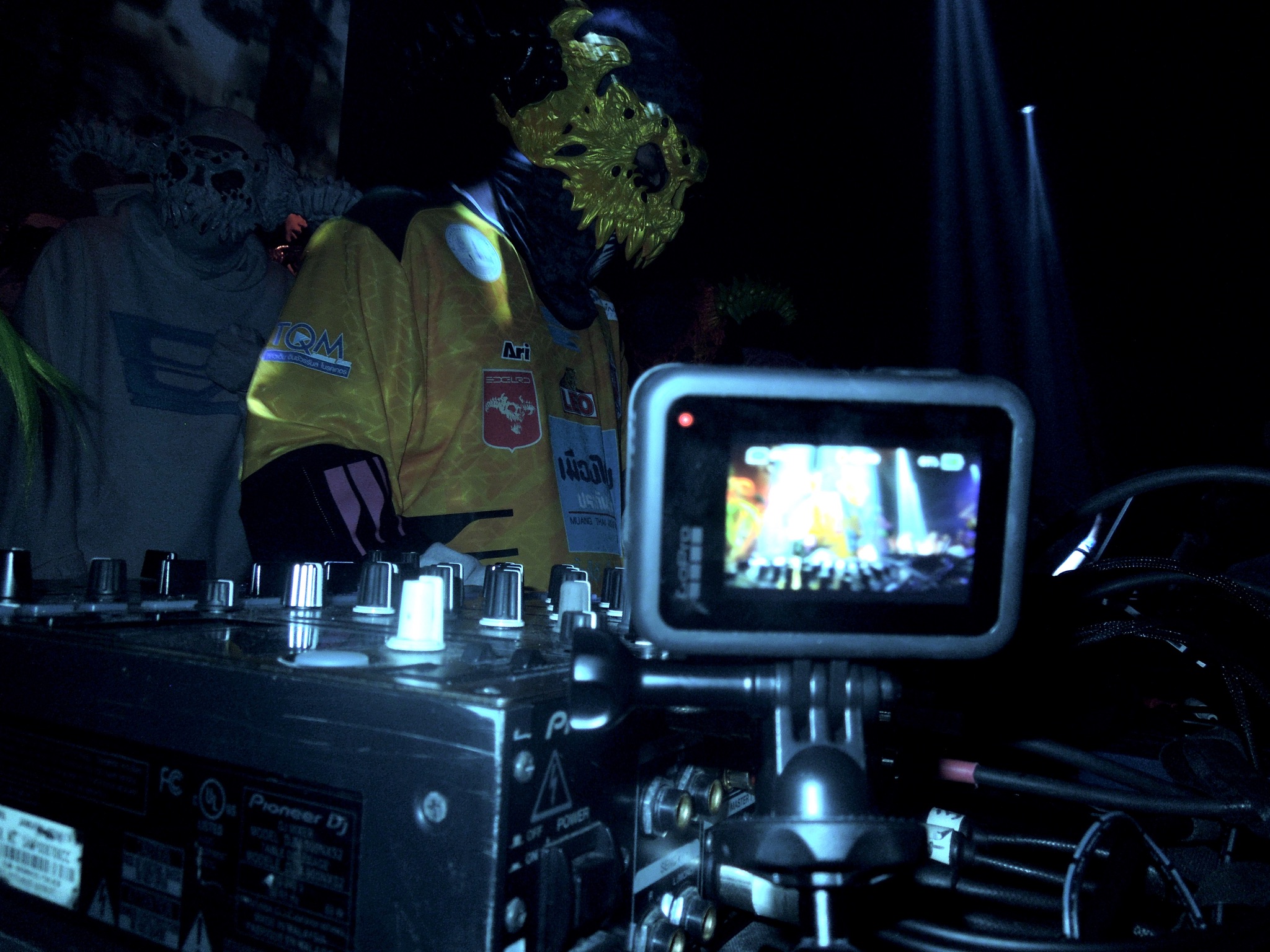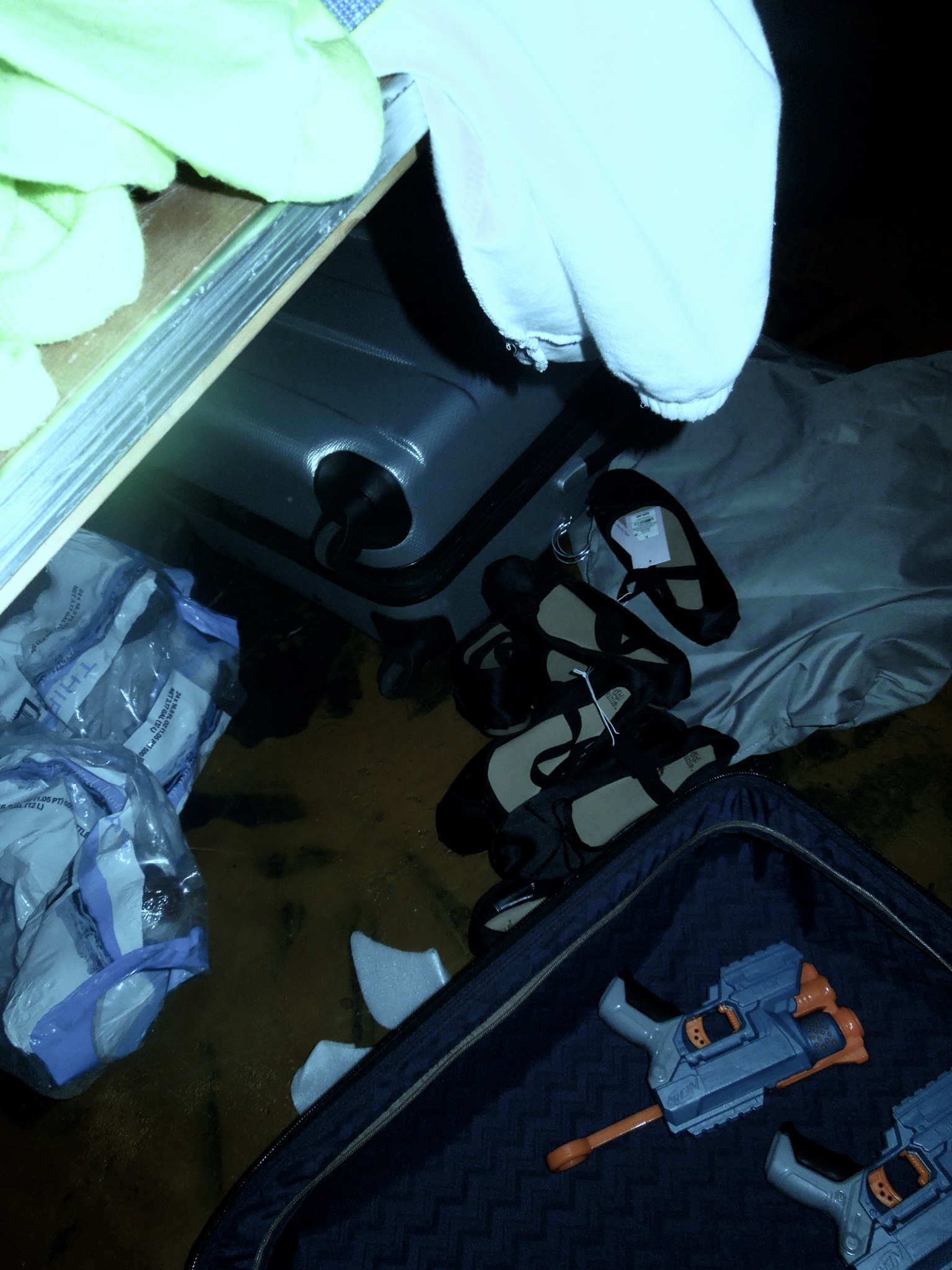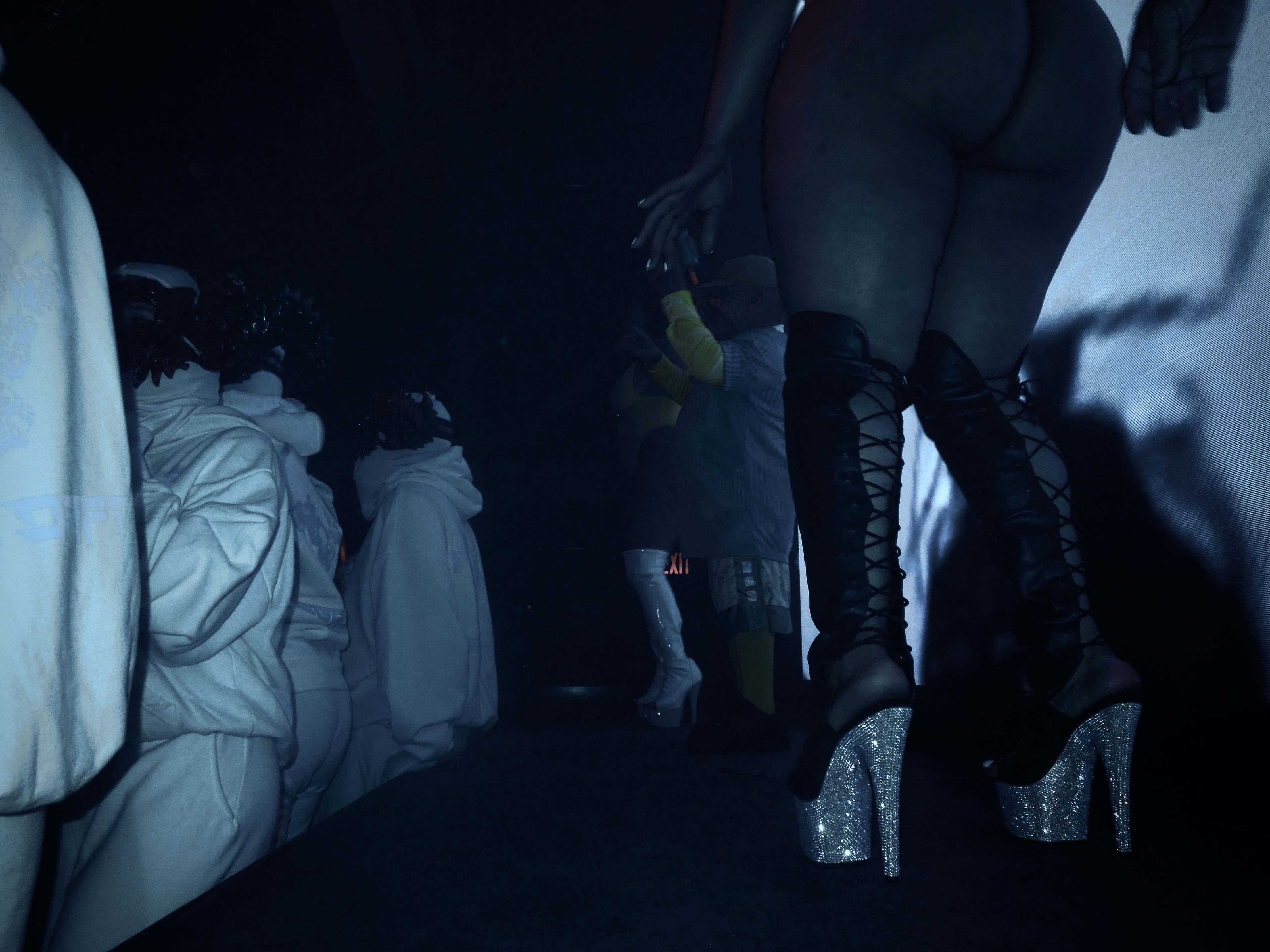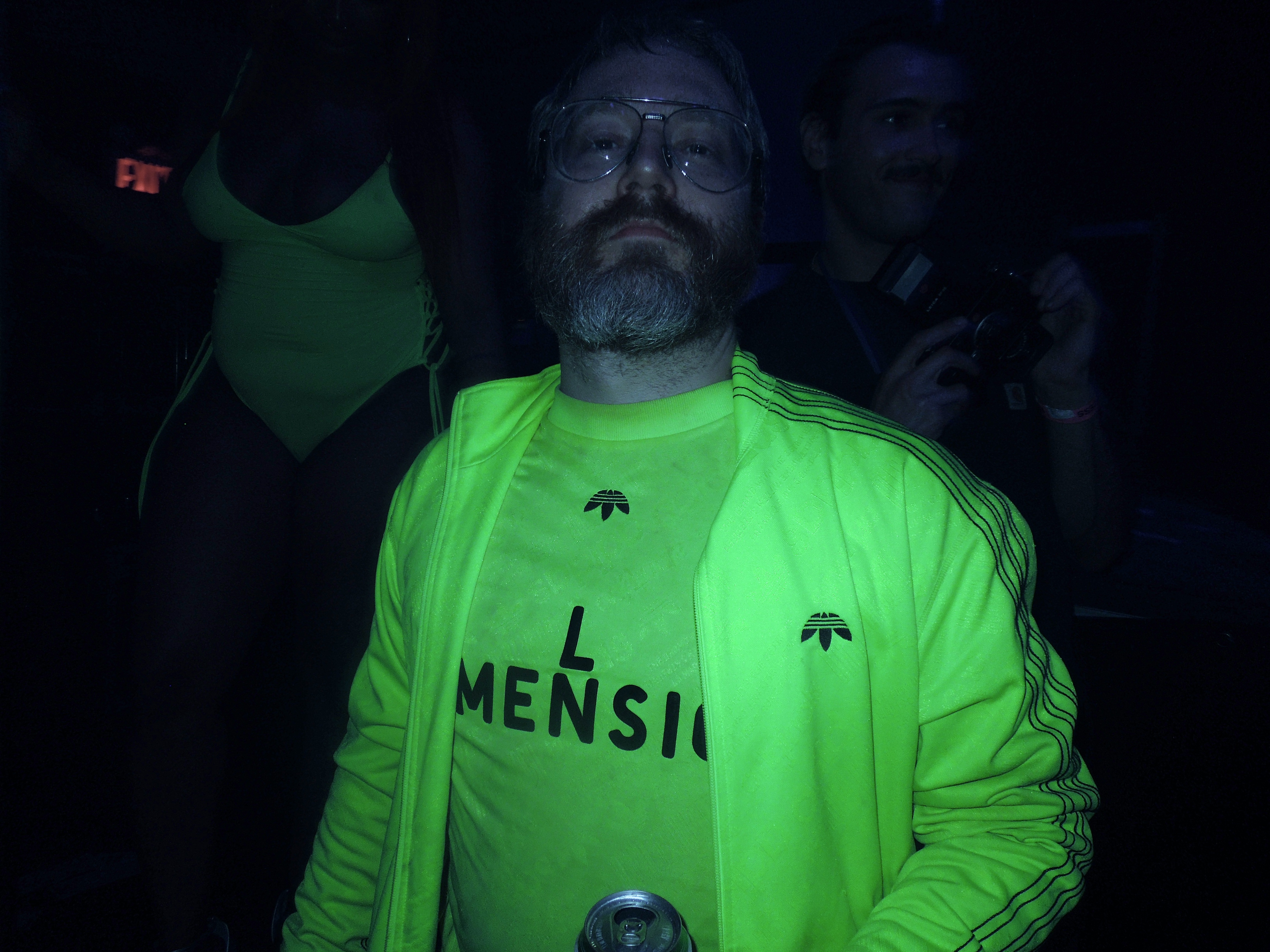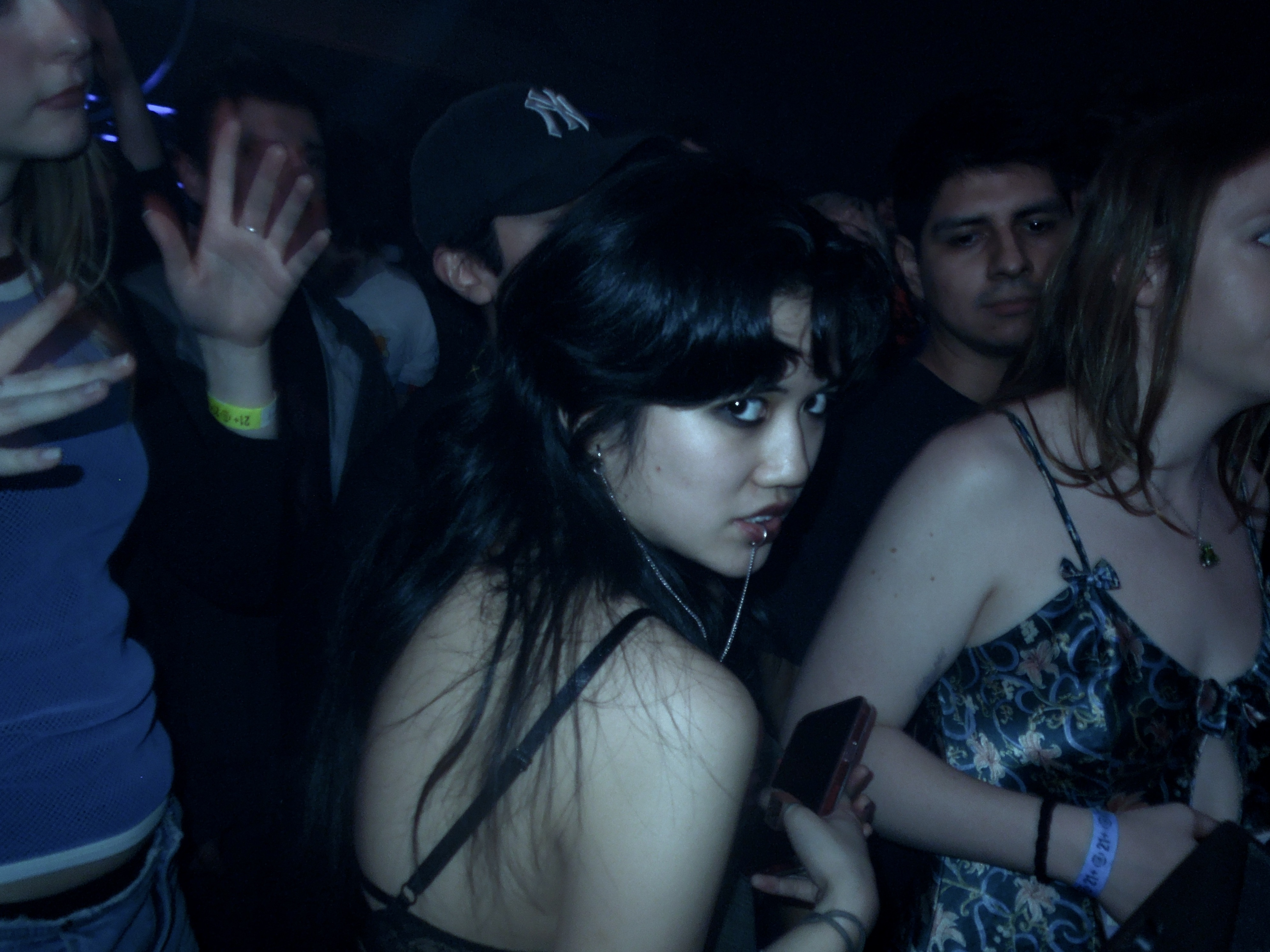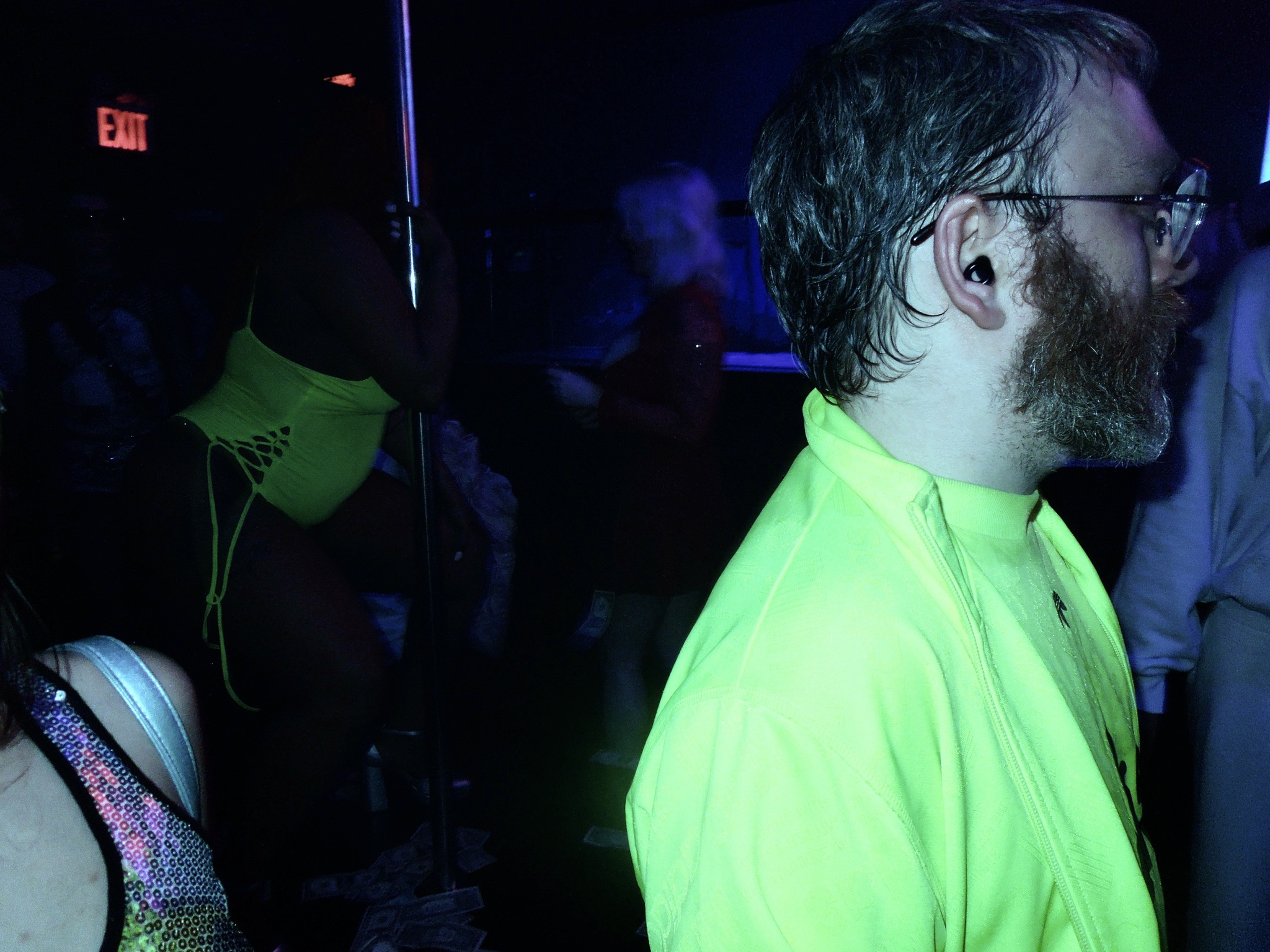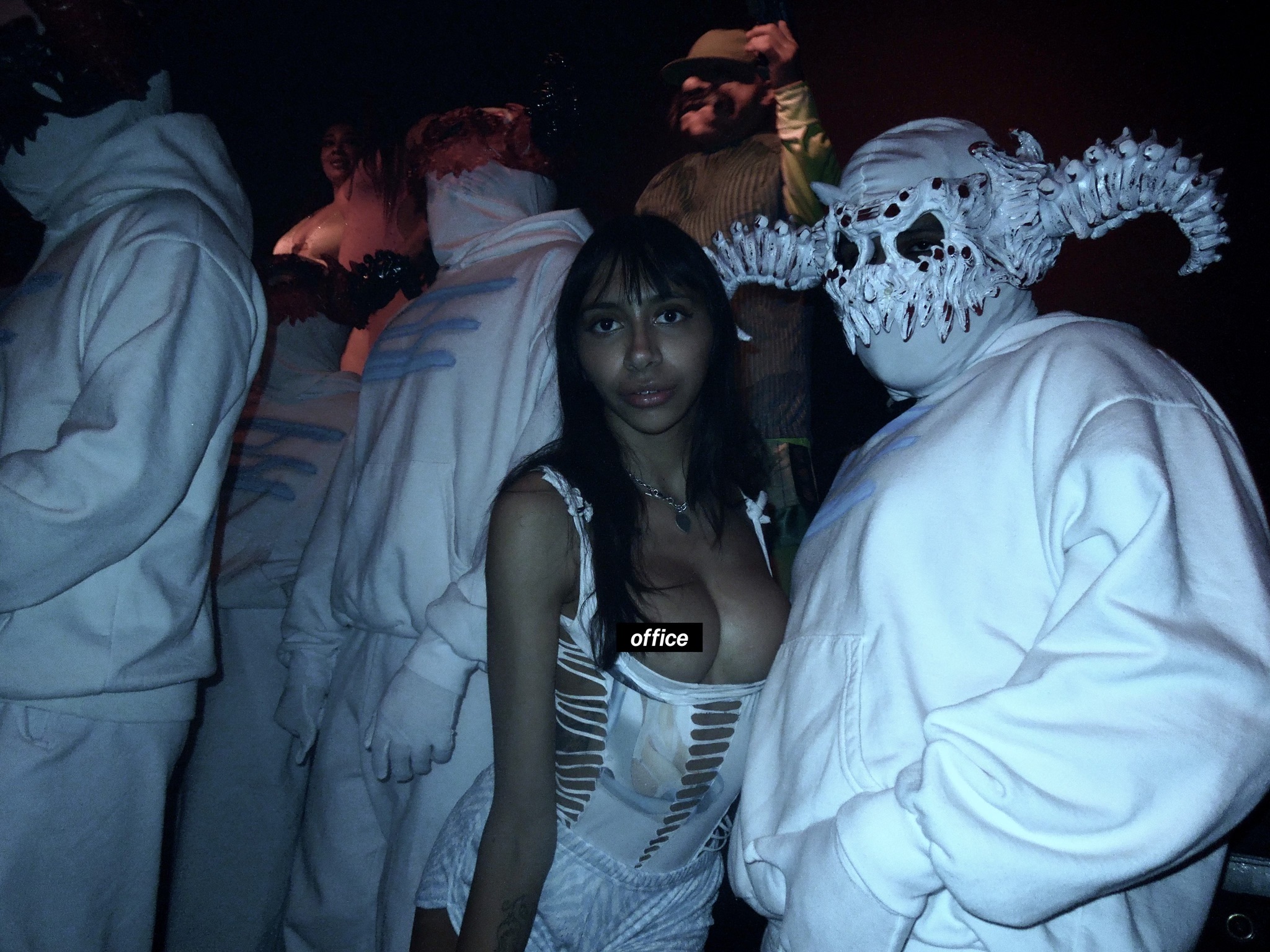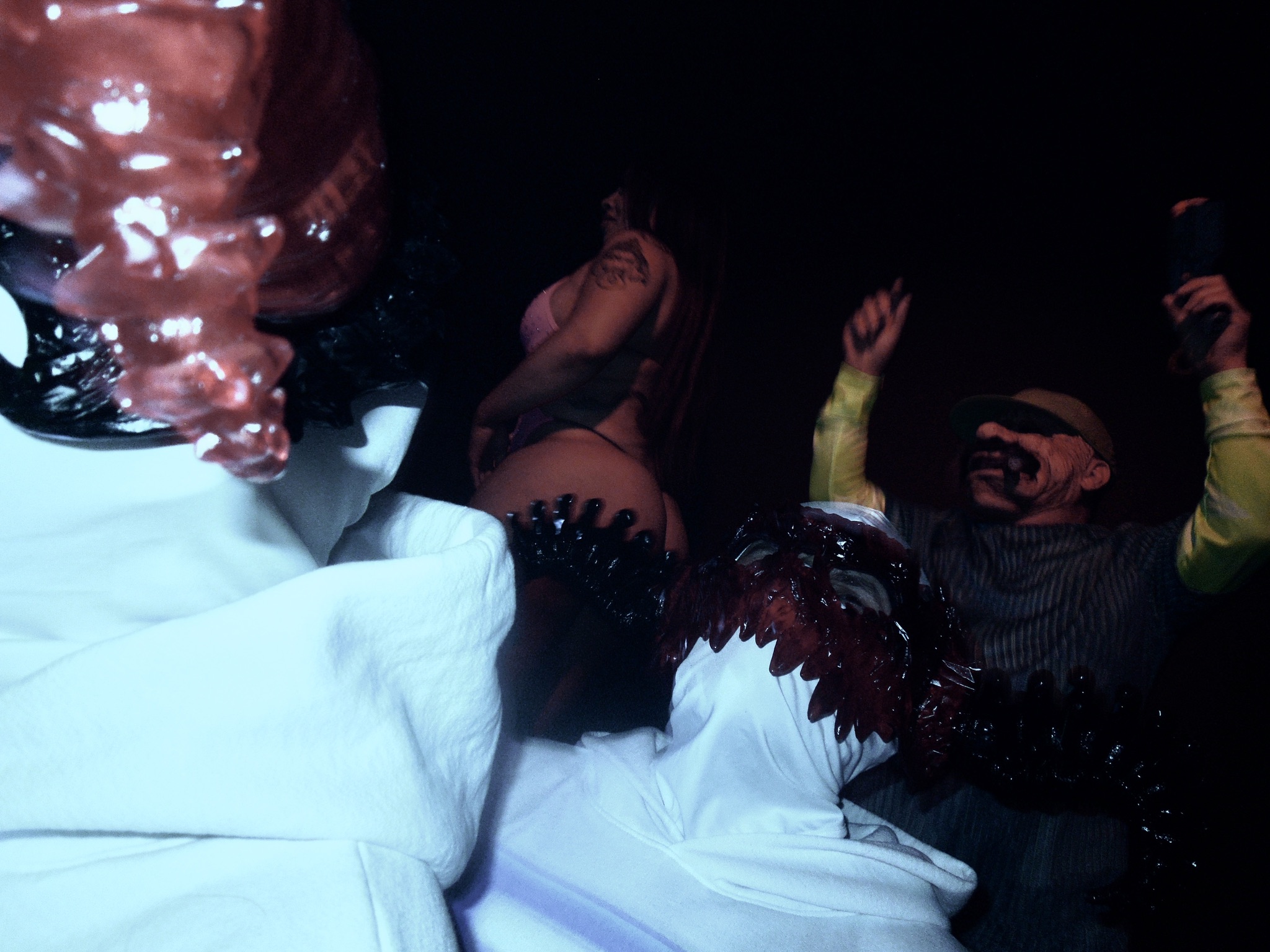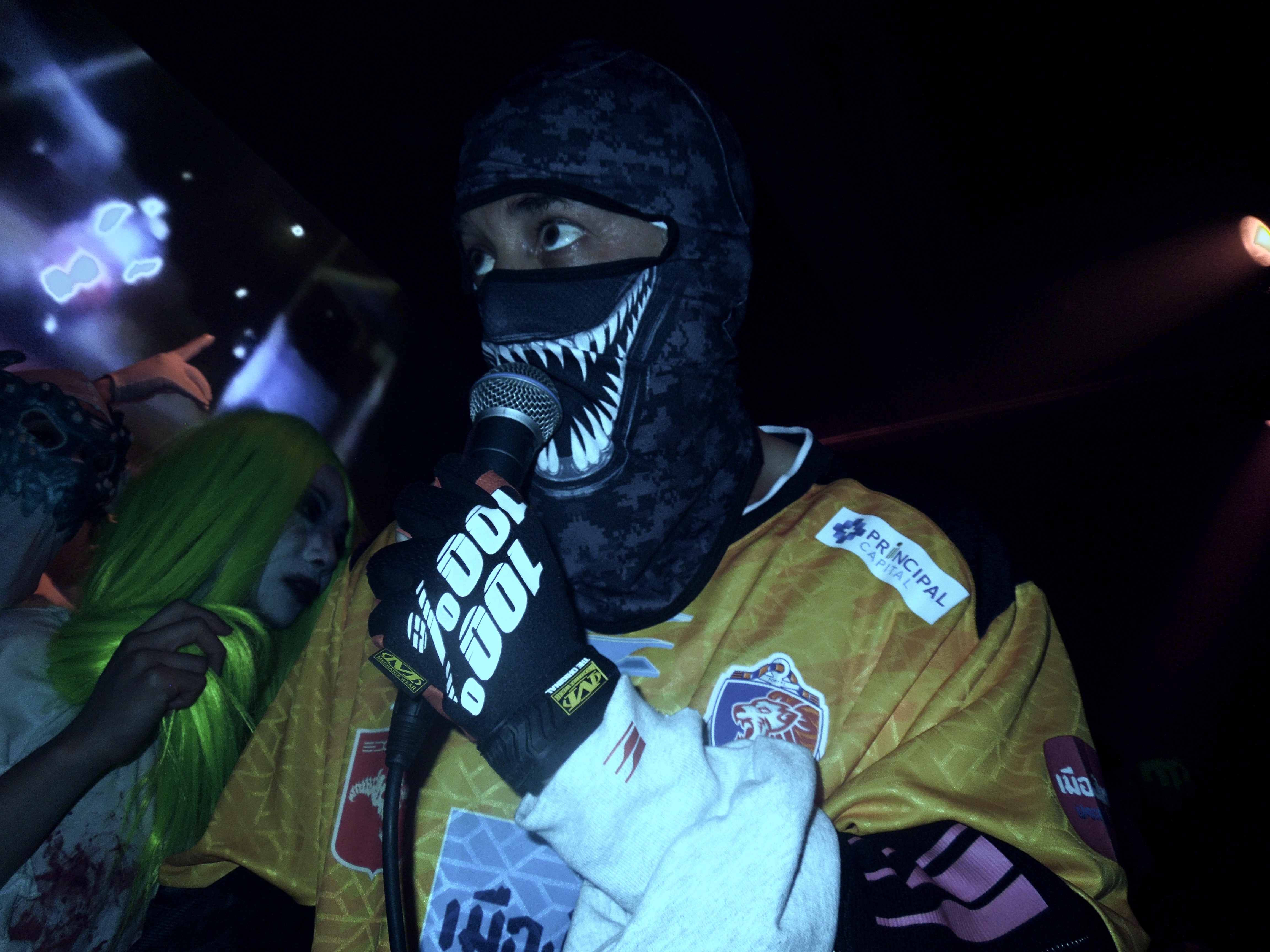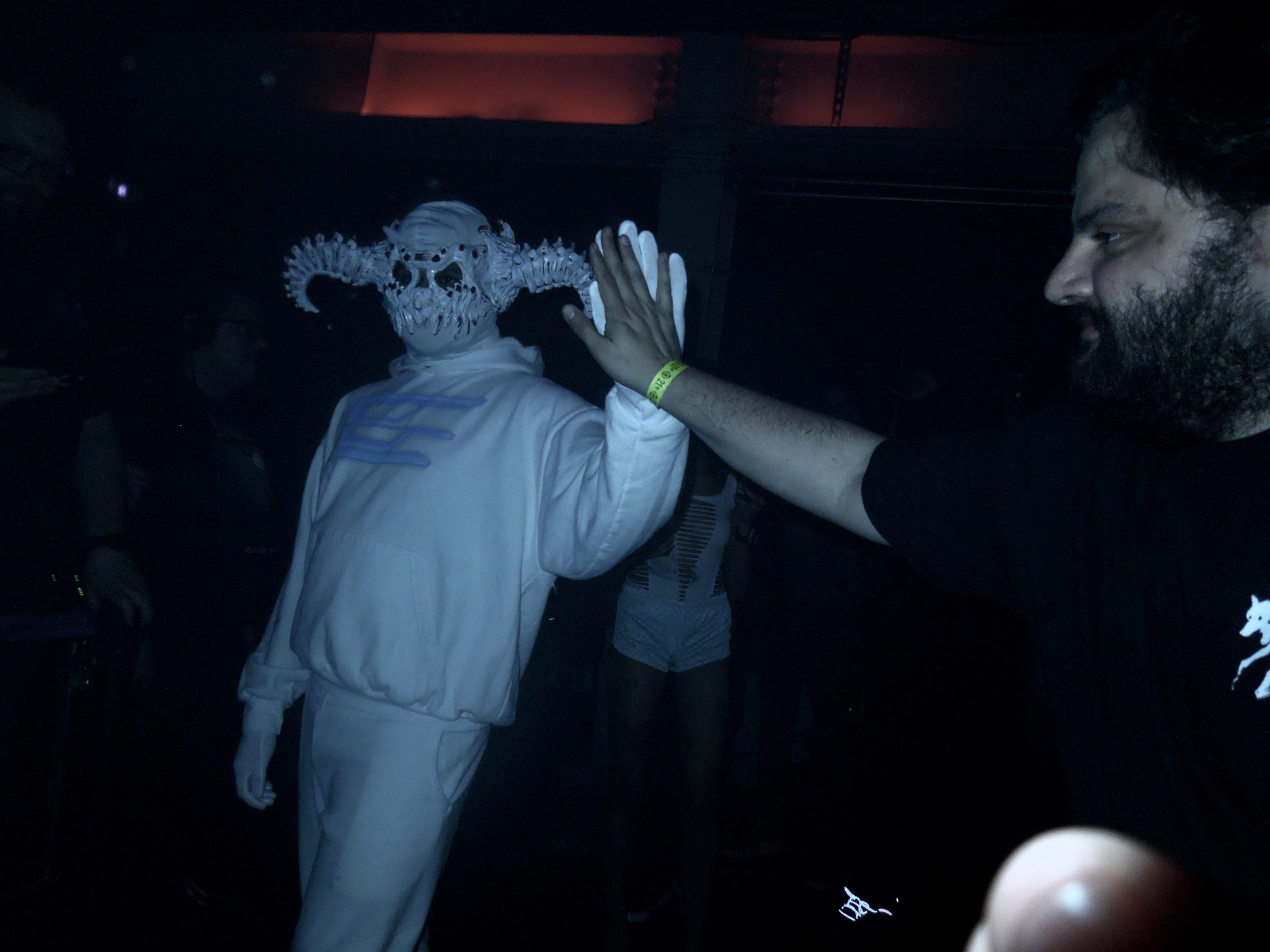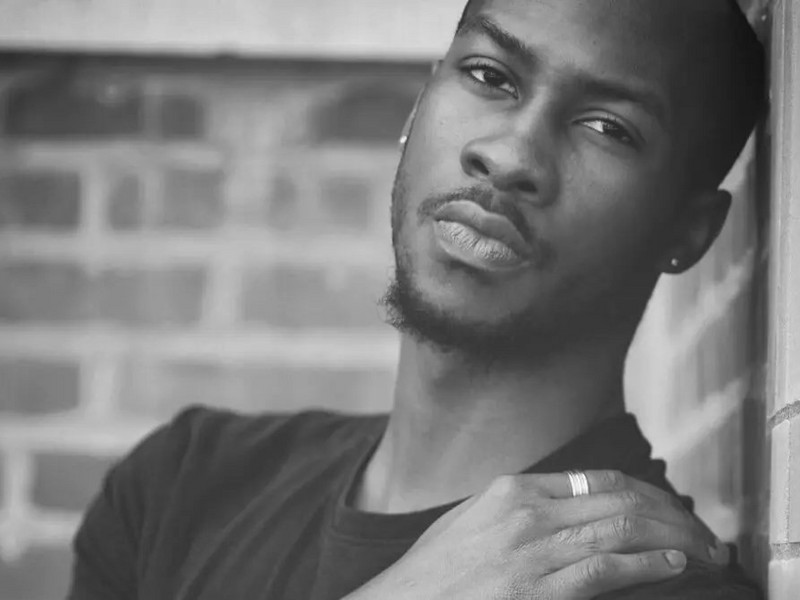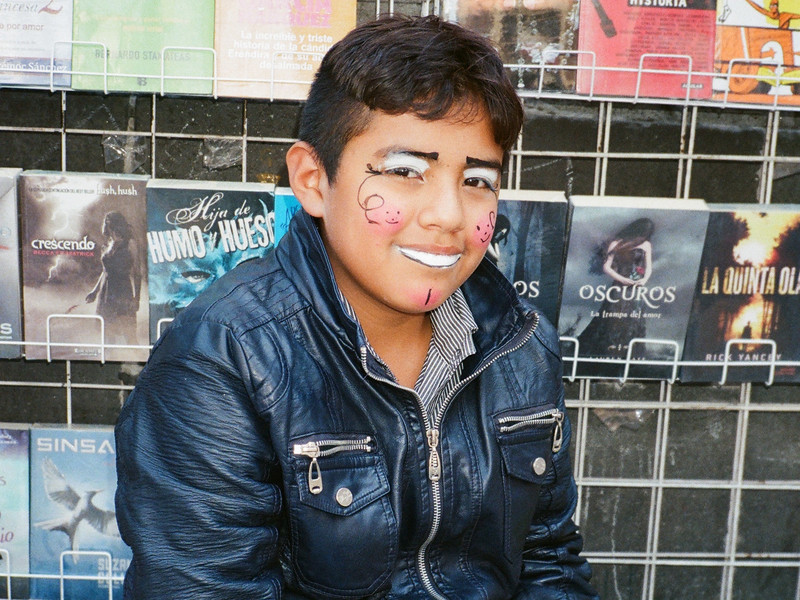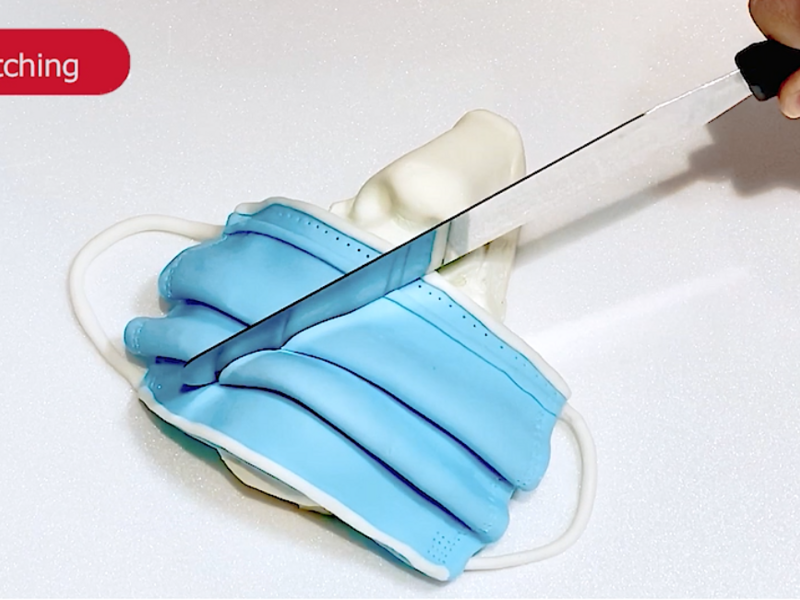There’s A Star For Everyone
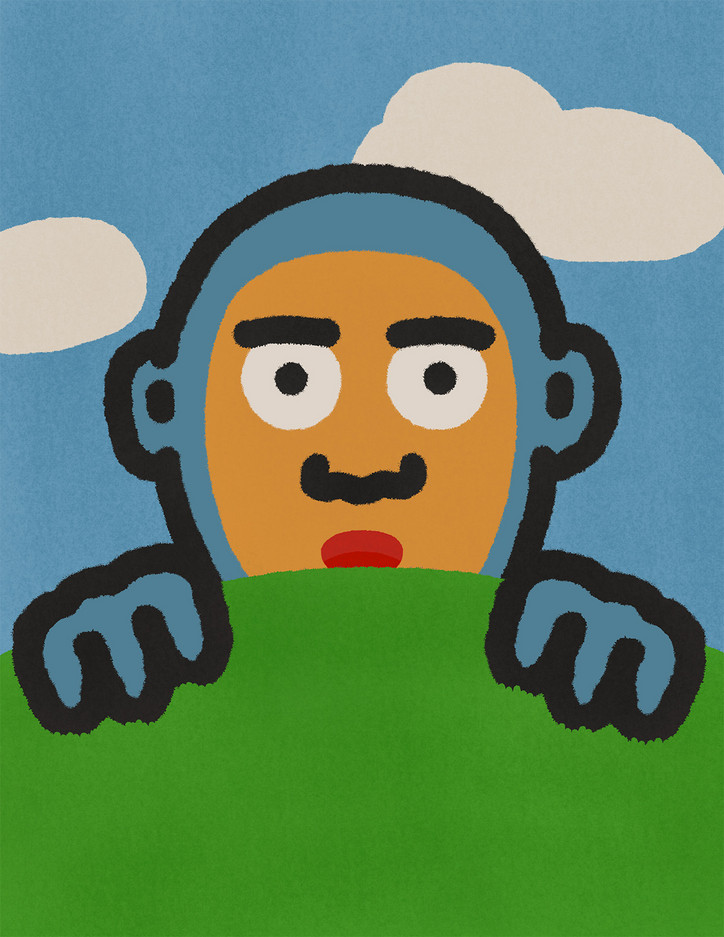
Danny Cole, who lives his life mostly as a partner, son, brother and friend to many, also shares the coveted role of being a highly disciplined and multi-talented artist. The self-taught creator was scribbling on school tests before committing to the studio where he could draw up a microcosm of his wildest dreams that he had been visiting since he was in preschool —a colorful universe he’s titled The Creature World. The artist who strives to actualize his imagination has successfully done what many have thought of pursuing—making your thoughts into an intangible reality for all, to be experienced through sensorial affection and interaction. A community, as he might put it. Across his oeuvre, Cole paints creatures from his own world, figures that are abstract and unstructured in shape, carry energy in their size, and are vibrant in color and pattern. His body of work remains staggering, child-like in mind, but intricate on paper.
With early success in art performance and gallery showings, he's also translated this world digitally, most recently in the space of NFTs. Unlike most, The Creature World creator sees Web3 as a means of servicing humanity, as he is not motivated by the attention—or money—but roused by the idea of creating change for the better. As we've seen the world fall apart during the pandemic, the glue that has held together communities has been a voice in the act of art. So, when COVID hit, it silenced the voices of many and Danny found partners in Jacob Tran and Jake McEvoy, the co-founders of Creature World NFT, and has since been able to grow a legacy in limitless exploration. Through Danny’s sheer courage to “look through the door” of life and create a path for himself, he has been able to uncover what’s behind the entrance, and leave the door cracked for whoever else wants to travel with him.
Shorts SUPREME, sunglasses NIKE
So, we’re doing this for office Magazine.
Yeah, to me, the great honor would be to see the Creature on the cover, because the Creature’s like… Such a symbol of the place that I want to take everyone to, but it’ also –
World-building.
Yeah, exactly. But I do understand that people connect to people, and at this point in my life, I am going to have to go out there and be a representative for what I love.
It's funny because you're almost a character that represents the Creature, as opposed to the other way around. It's almost like the Creature is the person. Instead of like, Oh, this is Danny, this is his thing, it's like, This is the thing, and this is the thing's person.
Yeah, exactly. In an ideal world for me, I would love to be able to send the Creature out into the world and just get to be one of the people that experiences it.
Is there ever a way in which you just interact with the Creature in a way you didn't control it? Almost like a bystander?
Well, I guess I think a cool starting point is like, Let's have our little dictionary. Let's align on what even is it that we're talking about. So, right now, my name is Danny and I'm in Los Angeles. I just turned 22. I remember making my first few paintings in my room. I’ve been drawing pictures my whole life. I was dreaming. Every kid has their imaginary friends, their imaginary world.
There's going to be a character that they always go to.
Yeah, people bring themselves to their happy place. But the first time I made a painting, I was 17—
Can we backtrack? Because I don't think you're doing yourself justice by starting there. When you came to visit me the last time you were in LA, you were telling me about your childhood and the place you grew up in. And I think that speaks to your creation of this world. So, let’s start from the beginning.
Well, the start of Creature World, to me—actually the start of life to me—is when I was in preschool. I would climb into bed at night and I would take my blanket and kick my feet up so the blanket would go under my feet. Then, I'd take the blanket and wrap it all around me, so I was in like, a cocoon of my blanket. And I would close my eyes, and the moment my eyes were closed, I would see stars and space all around me. And in space, there would be all of these people and objects and components of my life floating all around. I would look forward to that moment every single day. It was my constant—it was my metronome in life. No matter what happened, I knew I would be back in that place. And it was also a sort of way of processing, and learning, and understanding, like, What is life? You're so young and you're just a sponge. You're trying to figure out the world, and I would be there just floating in space. Then I would see an object, a person, a place—whatever—and something would call to me. And I would just zoom into that. At some point in whatever journey or adventure I would be on, I'd fall asleep. I'd wake up the next morning, but I'd remember where I went that night. It was this feeling that I became super, super familiar with. Life goes on and not everything is rainbows. You start to open your eyes to the world that people are telling me I live in. But I knew what the world I was living in was before anybody told me. I knew that the world that I was living in was something amazing and—
Miraculous.
Yeah, absolutely. But the more that people try to teach you, they're trying to tell you that all the magic that you knew was real—that you saw was real—that it might be real. And they can prove it to you! It breaks you down.
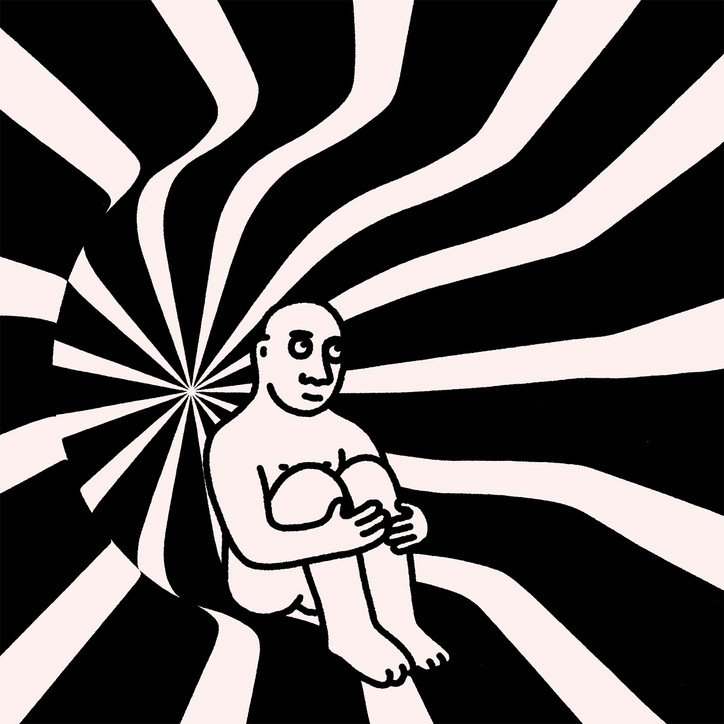
You're being told from people that are older, from multiple people at a time, that this is what the world is. And you're like, But I've seen it this way. And they're like, No, it's this way. It's almost like they're boxing you in.
Absolutely. I'm a really big believer that, as a society, as a species, we're confused about what we're looking at when we look at the world. We look at the world as this entity that we're observing and that we're pointing our finger at. In doing that, we fail to acknowledge that we're a part of it—that every stomp we make, every ripple that we cause, is deciding what this world is that we're a part of. And with that, if I tell you the world is amazing—that the world is magical—and then I do something magical, there's this ripple of magic that makes its way around the world. The world is one more unit more magical. In the same way, when we try to suffocate it, the world's going to be suffocating.
Of course. The emotions transcend in either direction. What's the town you grew up in? DC—I grew up in this town called Watchung, New Jersey. ZB—How many people live there?
5,000 people.
Wow, 5,000 people… And you're yet so close to the greatest metropolitan city in the world, and it's so isolating this town of 5,000 people.
Absolutely. I'm really grateful, though. Growing up in a small town is really reflective of my mother's parenting, because my mom wanted to shield me from the weight of the world. And to let me jump as high as I could.
Before you had to go see the rest of the world, [she wanted] to let you create your own version of it before you were being told what it is.
Exactly. And for that reason, I didn't realize until I was in fifth grade that other kids had friends. Those other kids had friends that they were going and playing with after school. And as a result, up until that point, I didn't live the experience of growing up lonely because I didn't even know.
You just didn't think of it.
But you know, you wake up. I remember waking up being like, I think I'm scared. And I think that life is not as harmonious. The world might not be as much of a playground as I would hope it would be. The thing that I'm looking to encapsulate by sharing this is—
How you were seeing the world, how that changed, and what led you to create this new one.
Yeah, the process of separation with perfection—divinity you might call it. And I don't say that in a religious way, I just don't think we have better words. When I was 17, I wouldn't have even been able to tell you that being a kid, being in my blankets, going to space mattered to me. I wouldn't have even been able to remember it.
Really?
Yeah because it never stood out as –
Significant?
It was just another thing. I had no reason to go back to that memory. There are things that pop up. I remember I went to a summer camp called Camp Harmony when I was very young.
I went to Camp Harmony!
Are you fucking kidding me?
Yeah, I went to Camp Harmony when I was really young.
Holy shit! I went there and I remember during that time period that I would count all of my steps, and that was very important to me. I was looking for order. I was looking for things to make sense. I would count all of my steps and I would also count my breaths. I was under this impression that to breathe in, you were taking in whatever you were looking at. So, I would only breathe in when looking at things that I loved. If I was looking at something that I didn't like, I would literally hold my breath no matter how long it would take. I feel like we start with this really strong awareness where nobody had to teach us how to live.
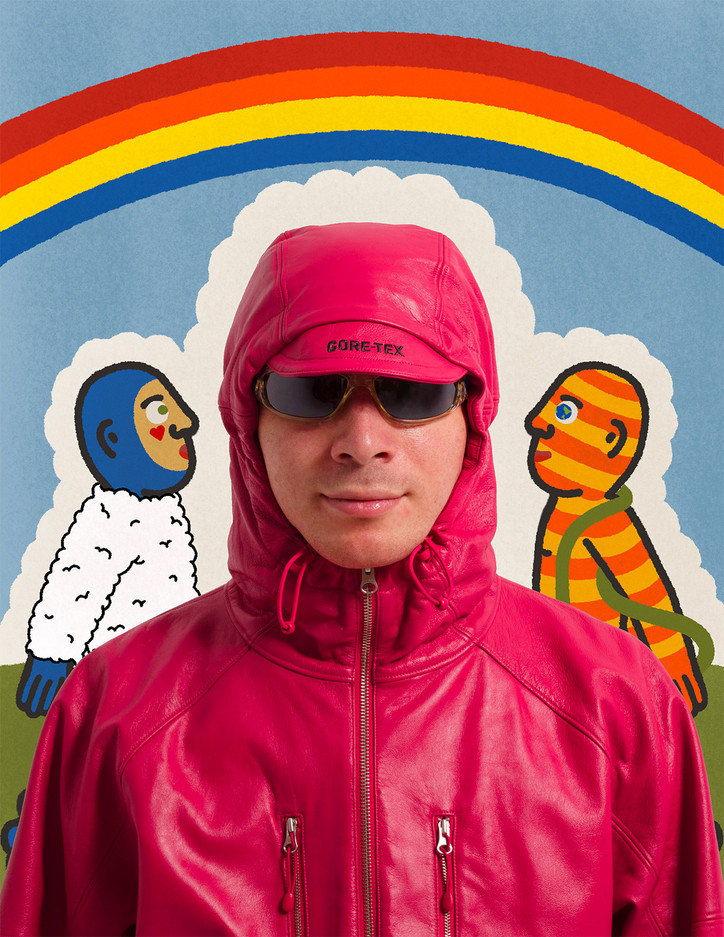
Jacket SUPREME, sunglasses NIKE
You said what struck the biggest chord is that your mom allowed you to live in a way where you could create your own world before being told what the world was, in a sense. Those aren’t the exact words you used, but I think you're right. There are so many things we do as humans naturally without being told. So, prior to the people in different parts of the world communicating with each other—even knowing that each other exists—everyone made music, everyone danced, everyone cooked food, everyone started families… They did things that are innately human. Even if the music sounded different, everyone was doing it, because it's human. And it's funny because you're talking about as a kid, when no one's telling you what the world is, you're creating your own version of it in your head. And that might be the purest version of all.
It's the right version.
I think you're on to something because you know, not breathing in what you don't like—that's also, in a simpler way, don't spend time with people or doing things that you don't genuinely love. And that's a great philosophy.
We need that reminder sometimes.
You were definitely intuitive enough as a young kid to tap into energies and feelings and things like that, without even knowing what they were called.
Well, to take it to the journey that led me right here, all that time from childhood up until I was 17… I went to preschool in the basement of this dusty church. It was called Sundance. And that the activities that we got to do were incredible. They had us finger painting. And they put this canvas in front of you, and they gave you some paint. I looked at it and the first thing I drew was myself. Skip forward a few years, I'm drawing the same thing. Only bit by bit it's changing.
It's evolving.
Until at a certain point, it doesn't really look as much like a person. It looks like its own little being that's grown up on a slightly different path than me, but it's adjacent. We're grown up.
It's grown up with you.
It's grown up with me, but it's turned into something else.
But is that character—is the Creature a—continuation of that kid you were? The one who thought the world was the way it was before people told him what it was?
I don't know, I’ll say yeah.
Is the Creature World that world?
I don't know, but at that point in my life, I was drawing these pictures every opportunity I could get. I started as young as I could draw. Then throughout the years, I'm in school, I'm looking around me, I'm not really that happy. Where am I tuning out to? Well, I'm just going to draw a picture. All my notes at school were really just pictures. My tests were pictures. So, I'm drawing this stuff, but I never thought, This is art. I wasn't trying to make art—I was just trying to be okay. But one day when I was 17, I decided that I was going to try to actually make a painting. I wanted to get lost. I was really fucking miserable. I was lonely. Well, I wasn't miserable—if I didn't think beauty was possible, I wouldn't have been like, I'm going to make a painting. But I was hurting. So, I went to this art supply store, and I got a canvas, and I got some paint. I made a picture and I made these three creatures together. I looked at it and I was like, This is pretty cool. I'm going to try this again. So, I got another canvas, got some more paint, and started making these paintings. And as I was making them, I could feel myself getting lighter. I was getting lost in the image. And as I was thinking and giving myself to it, I could see how it was as if my hand was –
Painting itself.
Exactly. And that the curves and strokes had a mind of their own.
Like you weren't even thinking—it was just channeling through. Do you think all of the things that were weighing were just leaving your body?
I think before, I was resisting—resisting in the way that I walked through the world. I was resisting what a natural flow felt like for me. And to actually lean into what felt right, it felt lighter because I didn't have to fight. And as I was getting lighter and lighter, I was sort of entering and dreaming. And while I'm in this state painting, I'm seeing a vision of a dream in my head. And I'm seeing this creature that I'm painting walk up to me and I'm walking back up to it. We look at each other, and my first feeling is, It's nice to meet you. I was so struck by how much I knew this feeling, by how familiar it was to me. And it was this itch where I was like, Where do I know this from? Then it just all came back—being in bed, going in the stars, seeing space. And I was like, I've been here. Like, Whoa, I just randomly reunited with something that was so important to me that I never would've remembered if not for that recognition. It's the same as when people smell something that they haven't smelled in a while.
It awakes memories you didn't even realize you had, or that the memory was even significant.
I believe too that it's very possible, if I were to have taken a different path in life, it would've been another thing that was the important moment that sent me in that direction. But I felt compelled, and was just like, This is where I'm going to go. So, I made that picture and I stepped back from it. And when it was done, I looked at it and I was just like, Where the fuck did this come from?
You're like, I don't even remember painting this.
Yeah, exactly! I was like, I don't even feel like I made this. And then I was like, I'm going to get another bunch of canvases. I'm going to get some more paint so I can do this again. All of a sudden, I'm going to school and I'm not getting in trouble anymore. Before that, I was facing suspension every fucking week. Now, I'm not getting in trouble because I know where I'm going after class.
You have your thing. So, you now have an identity.
Yeah, and I didn't even really care to show anybody at the time. I was just like, I know where I want to go. So, I'm going home and I'm making these paintings and it’s ecstasy. I'm like, Anything I want to be real, I'm going to make it real, because as I'm painting it, I'm going to be there. And it was amazing. But then this feeling starts to come up in my throat, and it's that dread that's never too far behind if you're not running fast enough. And I was like, I have been running away to this place that I love.
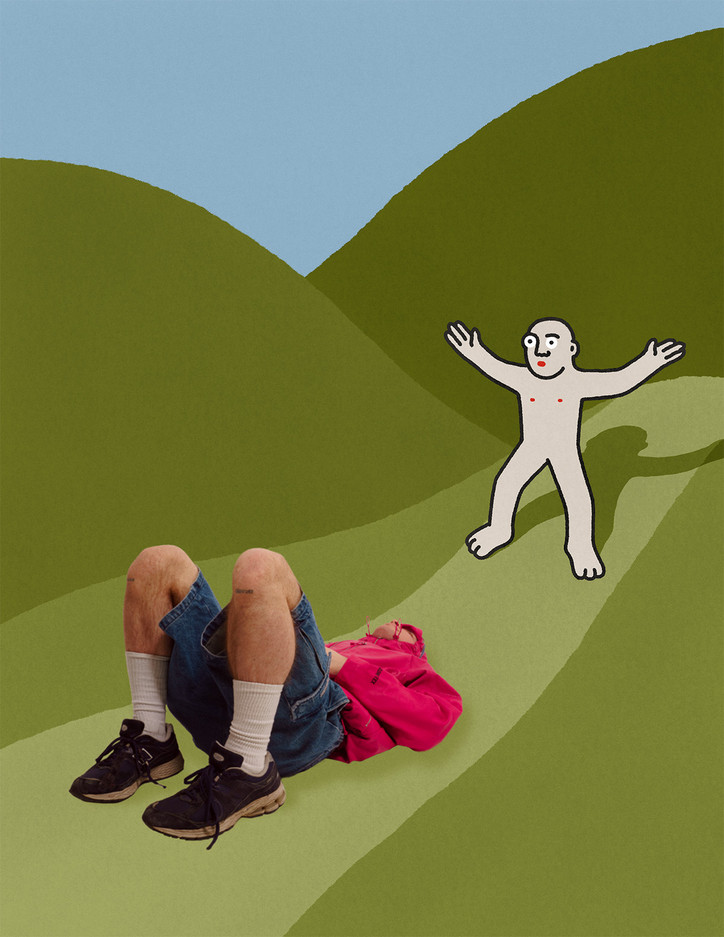
Jacket and shorts SUPREME, shoes NEW BALANCE
Yeah, what's the dread?
It doesn't feel real because nobody else is seeing the magic that I'm seeing. Everybody else is having these shared experiences together. And the experience that I love most is one that I don't understand how it can be experienced together. Because I know if anybody else was feeling this and experiencing this, that we would look at each other in our eyes. It would be this crazy moment of like, Did you just see that? Hear that? Feel that? Like, What the fuck? And we would be like, Wow, this is insane. And then we'd go back to it and we'd keep going on this adventure through planets that we're discovering—all these new things with new beings, and life, and infinite possibility. But I was all on my own.
You were constantly battling with doing things on your own. So, the next mission is: how do you create community and shared experiences around this world?
Exactly. I called a dear friend of mine before I came here today, and I was like, ‘I have so many different opinions and things that I might want to talk about. What do you think I should talk about for this with Zack?’ My friend said to me, ‘You’ve got to talk about community. Zack is the epitome of what it means to bring people together and unite them around electricity. That's your biggest shared ground.’ And it's funny, I didn't even have to say it because you arrived there on your own! So, for me, it was like, I have this world that I've been going to. Let's all go there together.
Were you still living in Jersey at the time?
Yeah, I put my stuff in a U-Haul. I remember calling some kid in my neighborhood and I was like, ‘If you help me pack up all my shit into this U-Haul, I'll give you a little painting.’ And we made that trade. So, he helped me load up the U-Haul, and I didn't really know anybody in New York. I knew, like, maybe three people. But the visual in my head was kind of that there's a dark place and you have the opportunity to let there be light. You know, you have the opportunity to build up the bonfire that is keeping you warm, and it's warm enough that it can keep a lot of other people warm if we can just all convene around it. So, I get to New York, and the thing that made me go there was I was like, I want to bring what I'm doing to people. There aren't that many people where I am. I’ve got to go where the people are. Then I got there and I was like, How do I reach out and be like, ‘Hello people?’
Right, like You want to be part of this?
Yeah. So, the first thing I did was, I got a bunch of squeeze bottles of paint, and I just went outside and started putting creatures everywhere. I would put them on the sidewalk because I was nervous when I would go outside, so I would pretty consistently be looking down. And I was like, All these spots on the ground—I'm not the only one that's walking around, looking at the ground. Imagine if everybody that's walking around, looking at the ground, is seeing all these, like fun, whimsical pictures and the creatures could enter their lives in this way. So, I started drawing everywhere. And the craziest thing is, that was the thing that did the most for introducing me to the city above anything else that I've ever done.
How far were you taking these paintings? Where were you drawing?
Wherever. There's so many people to this day, where I'll meet them and they'll be like, ‘You know, this many years ago I saw this little drawing you did on the sidewalk on this exact street. And I remember exactly which one it was and that's how I know you.’
People say that to you?
I heard it this morning!
So, it's having a profound impact.
Well, so my thought was, if I don't believe in this day and age it's realistic to ask people to come to you, to come to the art.
Yeah, you bring it to them.
Yeah, you’ve got to bring it to them. And not just putting it in front of their faces, but also giving them a path to engage—a path to walk down. Like, This is how you can experience the art.
Art is made by anyone for anyone.
Art is the people. I want to make art that is a way to unite all of us in what life should feel like and, as a result, what life will be—that's the superpower.
I want to talk to you about NFTs, but I want to preface with the fact that I wouldn't call you an NFT artist. There's nothing wrong with that, by the way. But let's zoom out and look at things from an art history perspective: it's inevitable that digital art will be a part of our history. And we're living in a place where you're amongst a generation of artists that are creating digital art in a way that we didn't even think was possible, and reaching people in a way we didn't think was possible. So, I don’t think you’re an NFT artist, and what I mean by that is: you’re an artist who has multiple mediums of translating your art, the NFT being one of them, which you marry with your original cause—in-person gathering. In a society where we increasingly share our lives online, it only makes sense that the two would come together intrinsically.
I would say that everything ties back to connectivity—to community—for me. And it's not actually necessarily a matter of bringing people together in person. It's a matter of bringing people together.
Like, how can you connect with someone in China or somewhere else around the world?
It's wild. But there's this thing where, like, we associate screens as a degree of separation. So, I think it's really important for us to compensate for that degree by using these phenomenal tools to get even closer together.
Does that make the translation of the art less meaningful? Is that why you have to go the extra mile? I think that what everyone in the WEB3 space is banking on is, the idea that this next generation of consumers is equally as comfortable consuming through a screen as they are in person—by virtue of COVID, and just by virtue of exposure from a younger age. Like, you told me that you were one of the first kids in your town where everything you'd consume was on the internet—that's 10 times as true for a kid born today! Does that degree of separation get increasingly minimal?
But is it not a degree of separation because this is just life? I got a metaphor for you: [Rapper] Yeat and the people that score a Disney movie are both making music. They’re still very different things, you know? So, the things that I give my attention to in regard to NFTs are, how is this technology going to service the things that I care about? Bringing people together, immersing us into joy, into the best things in life. And those things are not actually what’s most popular in the NFT space. As a result, I'm relatively critical of the space, but that's not going to stop me from saying that I see it as a tool I can use to make something I think is a product worth engaging with.
It's like people use electricity to build homes and people use electricity to build weapons.
It is. The simplest way to put it for someone who knows nothing about this tech is: you own things in the real world. Well, now, you can own things digitally. It is very simply the enabling of possession on a screen of trustless possession.
Of traced, cemented, unbiased possession. The same way you have registration for a car that shows, This car is mine.
But it's more. It's way more. The idea that the best we can do is just that this tech can function as a COA—a certificate of authenticity—it's like, No, no, no. There are plenty of things that we engage with where we engage with them differently because we possess them. And I almost find ourselves veering away from the word ownership and towards possession, because in my head, when I think about ownership, I'm thinking a lot more about a financial aspect to that. It's emotional. But also quite literally, there are products that I engage with differently because they're mine. So, an example of what I built with the first Creature World collection: we were like, We're going to make a collection of artworks where a shit ton of people will be able to have their very own creature. A creature that only looks like this and it's yours. That was a really exciting idea to me. And because of the pioneers that paved the way for us, we were able to do that—both on the side of who invented all this technology, and also on the side of the people, the consumers.
Yeah, the marketplace that has been created by both sellers and consumers.
Exactly. So, the first thing that we sought to do was to make artwork that is able to be really uniquely personal to people—that is able to be really uniquely personal to more people than we've ever been able to do. I'm always coming at art from this perspective of like, How do you experience art and how can we make it so you are able to experience art even more? And the fact of the matter is, when we're starting with art on a screen—and maybe this is not going to be the same for future generations, or for kids now—but for me, if something's on a screen, there is a slightly greater degree of separation. So, it's like, I want to make something that you are going to be able to experience more, not less.
Right, like, How do I go above and beyond?
The box has gotten bigger in terms of what you are able to create when you're talking about what is, and if my limitation is the physics of the physical world versus of what you can create virtually, there's still a box, but it's gotten a lot bigger. So, the first thing that I wanted to do with Creature World was—I was like, When you make a painting, what is the goal of a painting? The goal of a painting is that somebody will see the painting and then go there, go to that place inside of the painting mentally. And I was like, Well, how can I assist them in the ability to do that?
Immersion.
Right, and I was like, What if I could actually just allow them to go into the painting? Because it doesn't have to follow the physics of the physical world. So, what we made was all these art pieces where you were actually able to go into the world inside of your art piece. We made multiple virtual immersive worlds, where with this art piece, you would be able to enter into a world inside of your art piece and find yourself in this other world. And you can explore that other world—there is an adventure ready for you to go on. When you climb out of that world, whatever you did there—whatever you did inside of your artwork—is now a part of your artwork. It's been added. So, what you're going to get out of it is really what you project onto it. When somebody goes to a painting of mine and they say, I know what this is! it's like you've actually learned something about yourself. The hypothesis I'm operating from is that the more we learn about ourselves, the easier it is for us to connect with each other. So, how do we aid people in going on these introspective journeys while simultaneously uniting them together? That’s what we’re trying to do. There’s a very interesting thing about this new world of digital goods which is, like I spoke about earlier, that we're sort of spoiled in this day and age and shaped to expect the things that we engage with to really cater to us and come to us. In this world, and in the world of NFTs, a transaction is very different. Like, I sell you a painting, Zack. I say, ‘I'm going to give you this painting. You give me a hundred dollars,’ and I hand you the painting, you give me a hundred dollars. But in the digital world, it’s like, you buy this thing from me, I give you what you have purchased, and then you look me dead in my eyes and you say, Now, what are you going to give me? And the answer cannot be just the art. The answer cannot be just what I told you I was going to give you.
Yeah, because when I buy you a painting, it doesn't give me access to a live event.
So, I personally dislike that idea—there’s this hot, hot thing in all these products where people are always like, Utility, utility, this thing has utility.
You know why? It's because it's a quick money play and everything's been commodified. We're living in the most over commodified time in history, where watches are four times the price, cars are three times the price—things that have historically lost value almost immediately after purchase are now twice as valuable, because of shortages, because of trends, because of business opportunities. So, everyone's competing in this hyper-competitive space, where WEB3 is not nearly as big as it's going to be. But the consumers that are in it now are like, How do we cater to this community of people that are willing to spend money on this? And they're all undercutting each other with, like, How do we add more value to this image?
It's not a long term vision.
Of course not. It's very short term, and that's also what's given the space a bad rep.
Oh totally. The space does have a bad rep, and it deserves to—like, aggressively deserves to. But there's also a lot of amazing things.
Of course. That's what's allowed people who have had seemingly no platform or prior access to bring pieces of themselves to the world overnight.
One-hundred percent. But so the idea of like, Well, what is this thing that I own going to do for me? I think a lot of this question comes from a place of confusion. It’s like, Okay, I got this art piece now. But literally everybody else can view it, and they're viewing it identically to how I'm viewing it. With art, you're supposed to view it. So people are thinking, like, What's actually happening for me? And a lot of people have come with these early answers of, Well, this is actually your access token—it's really this other thing. And it's like, if this is a key to a club, if this is a key to a festival, why does it even need to be art? If I'm making art, I want that art to be the key to the art. I want you to possess that art to allow you to engage with it, to experience it more, because it's yours. So, I've been building so many new ways of engaging with my work, and it's really fun to be doing it in a lot of these digital ways, because it's so exciting. It's new. It’s shit that's never been able to exist before.

